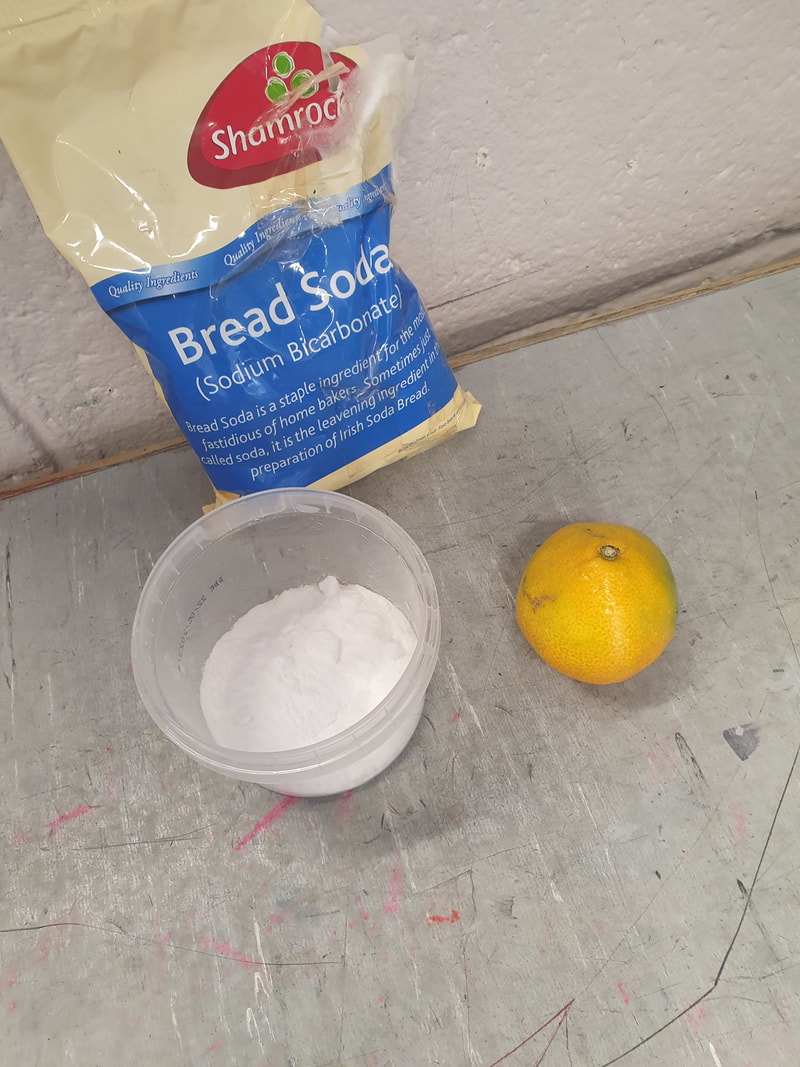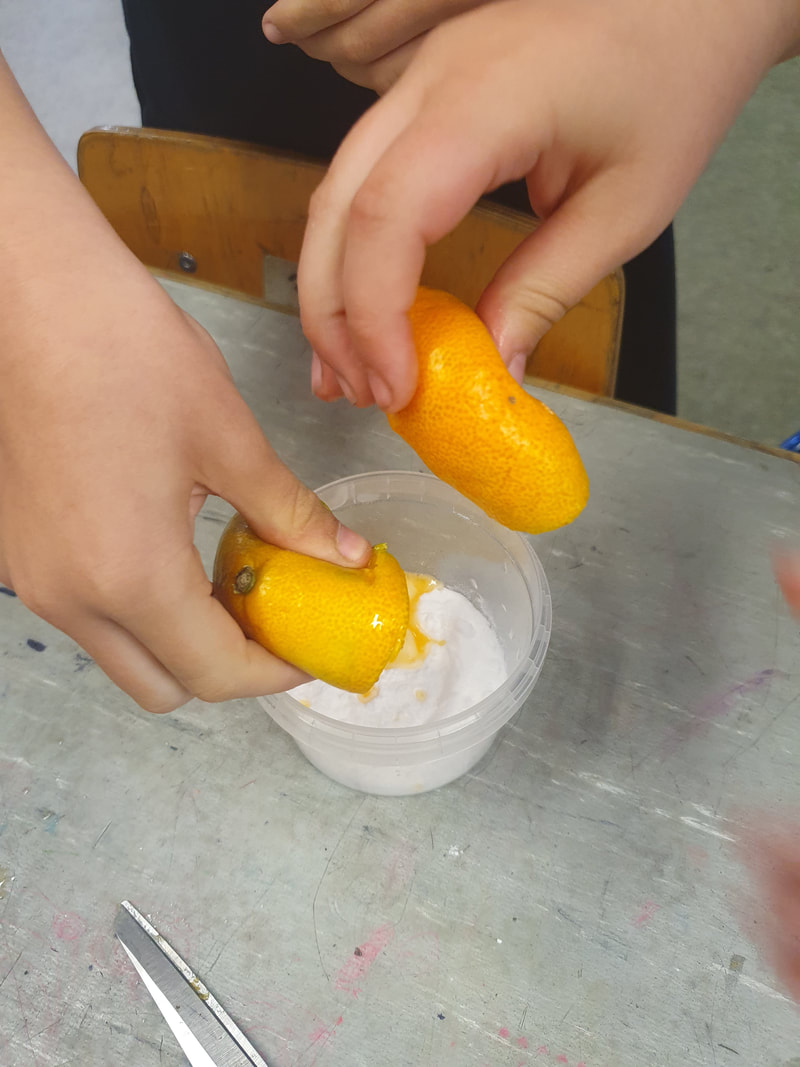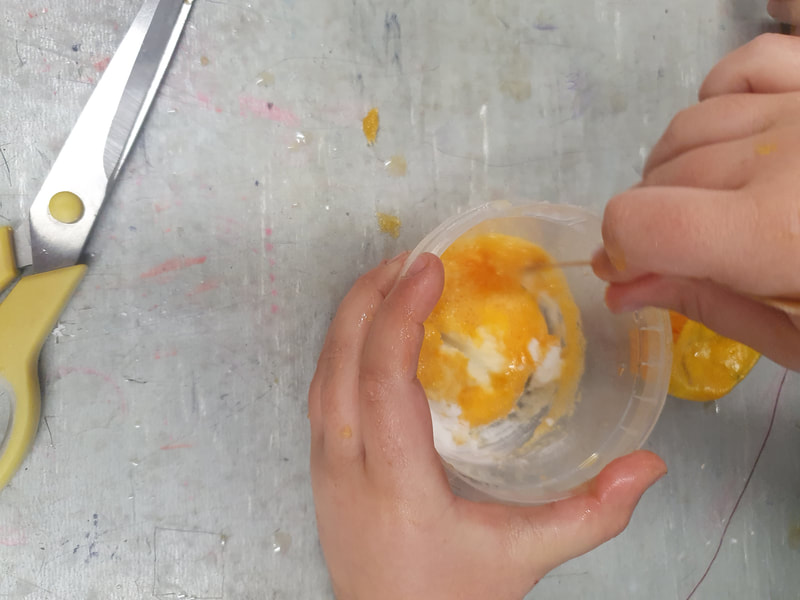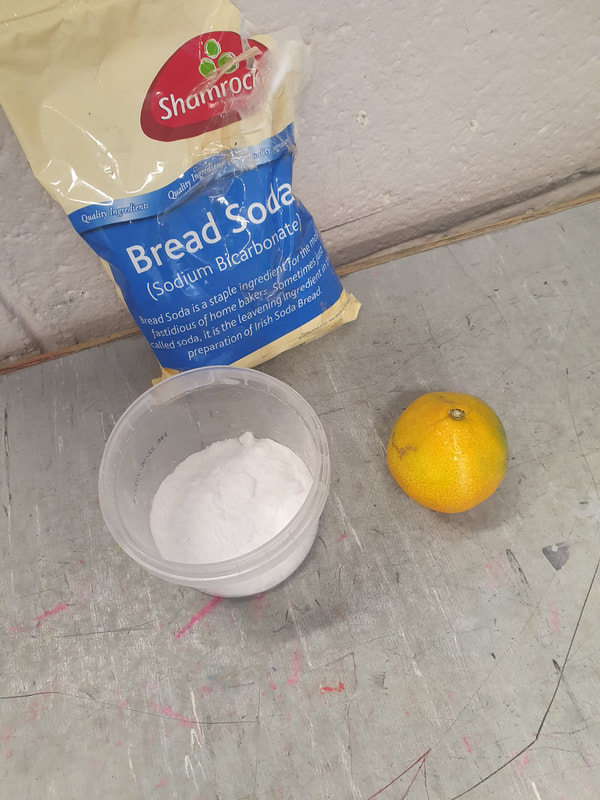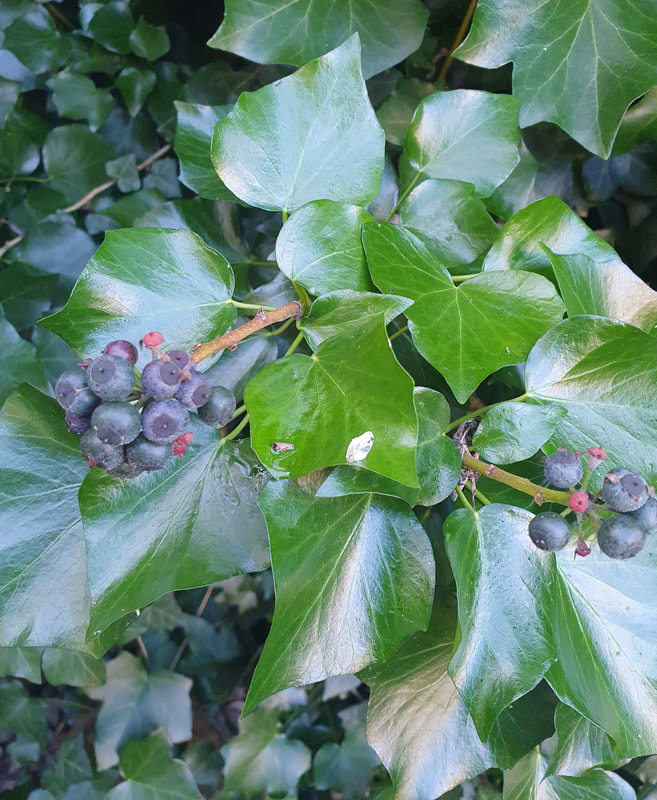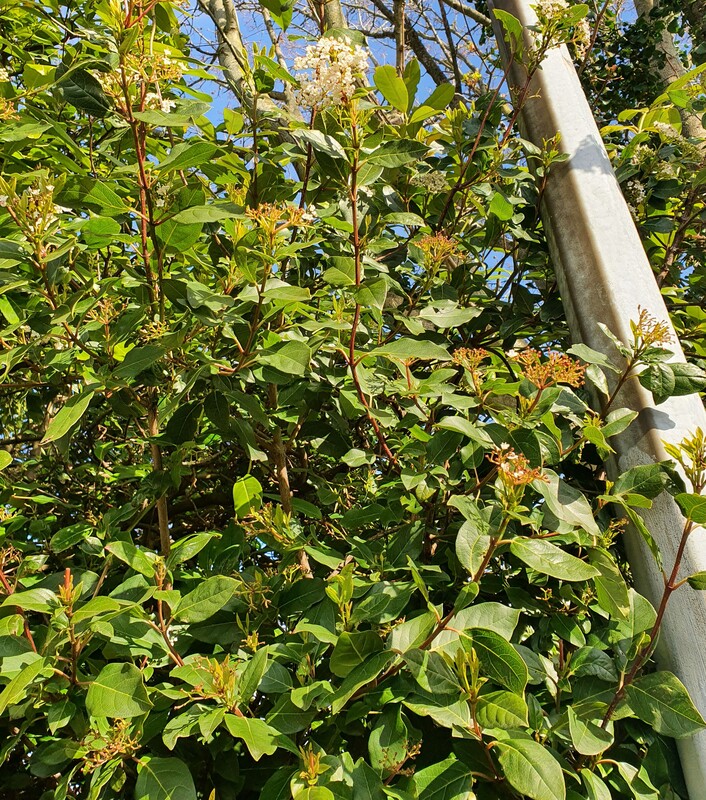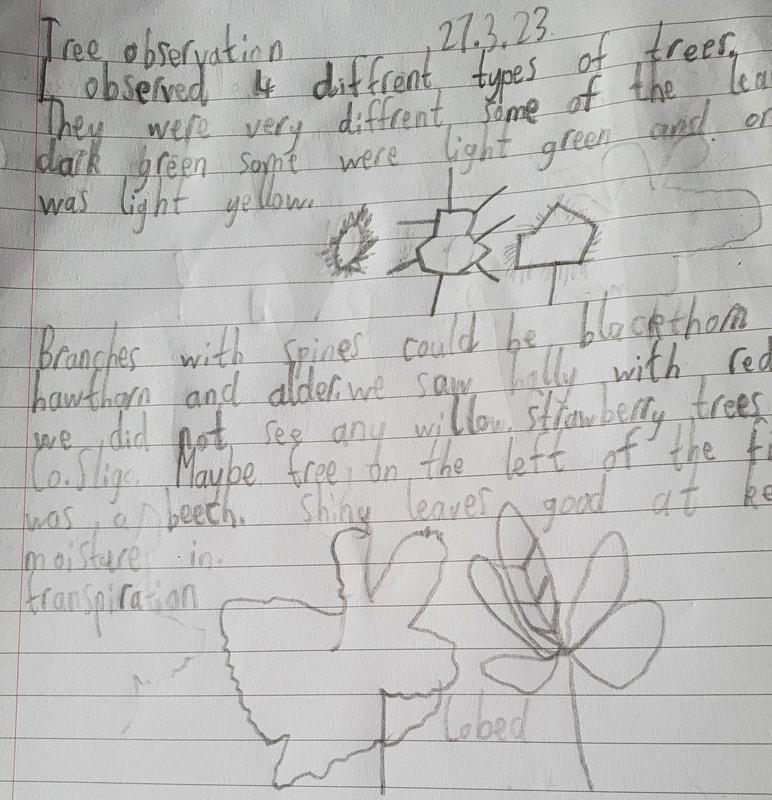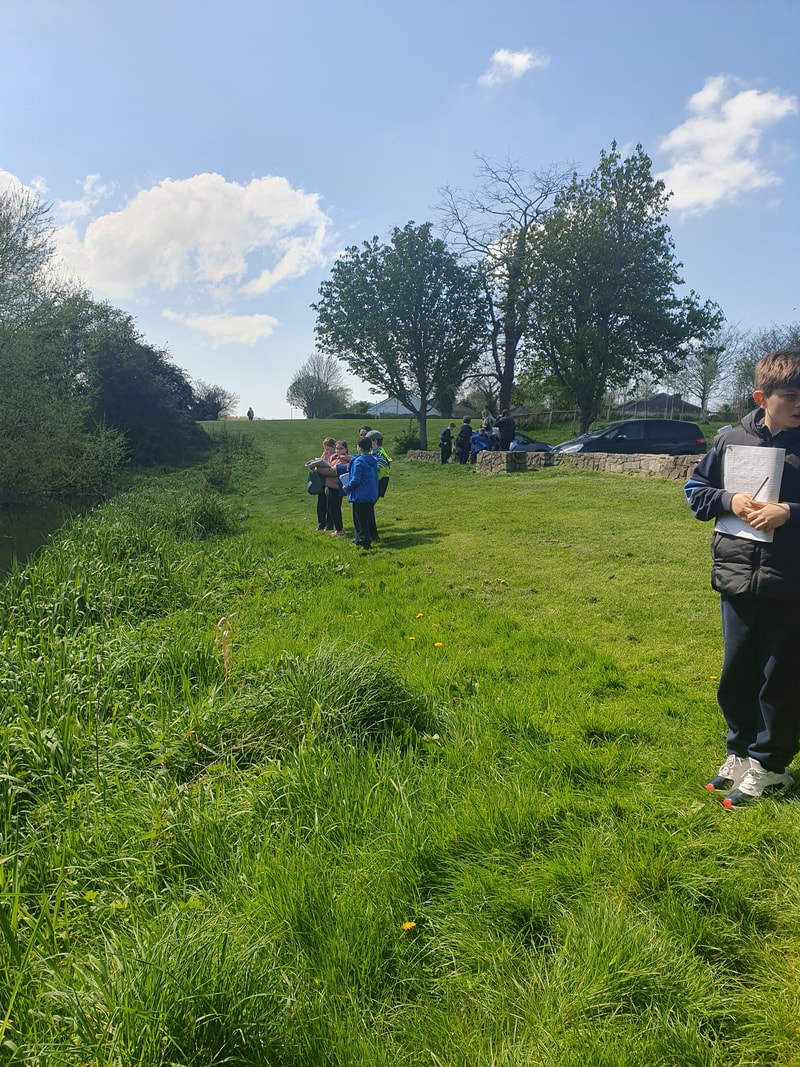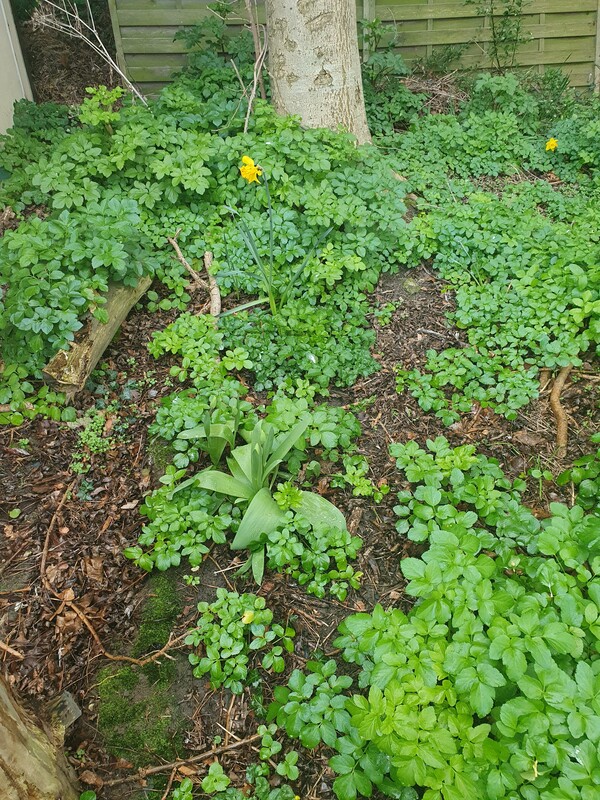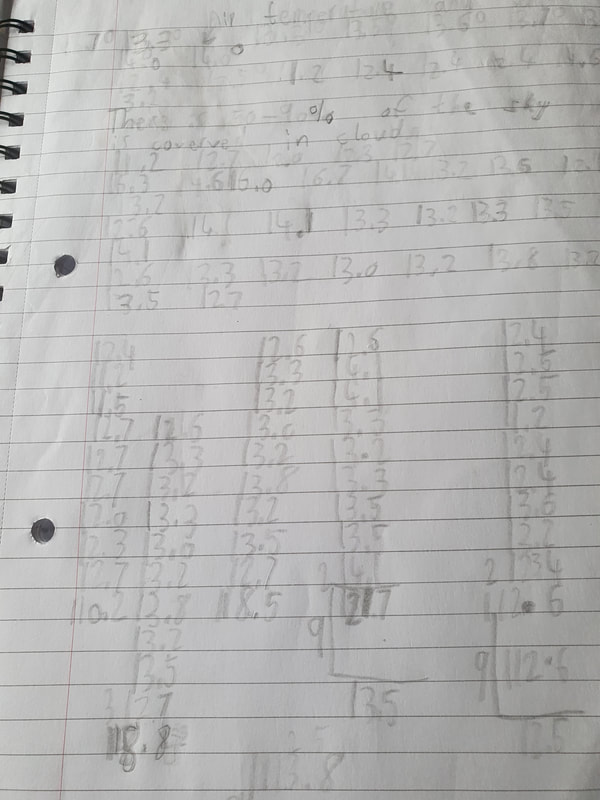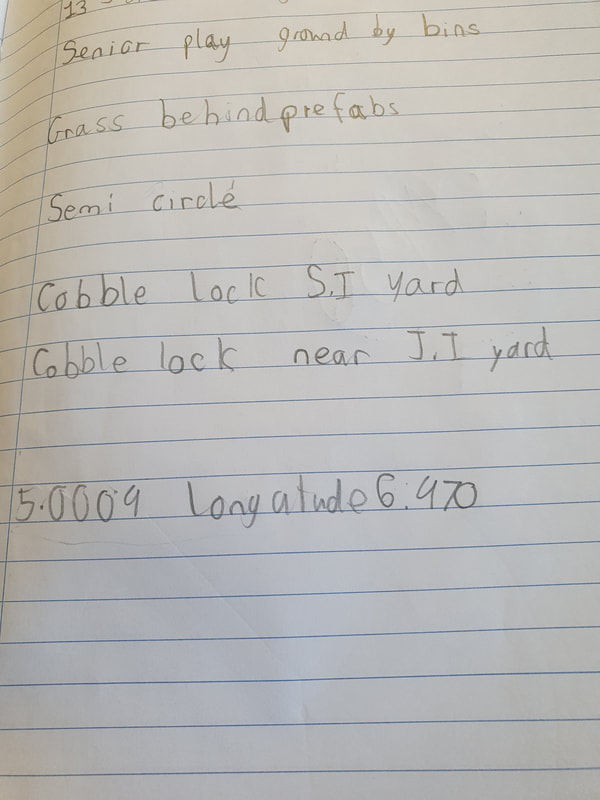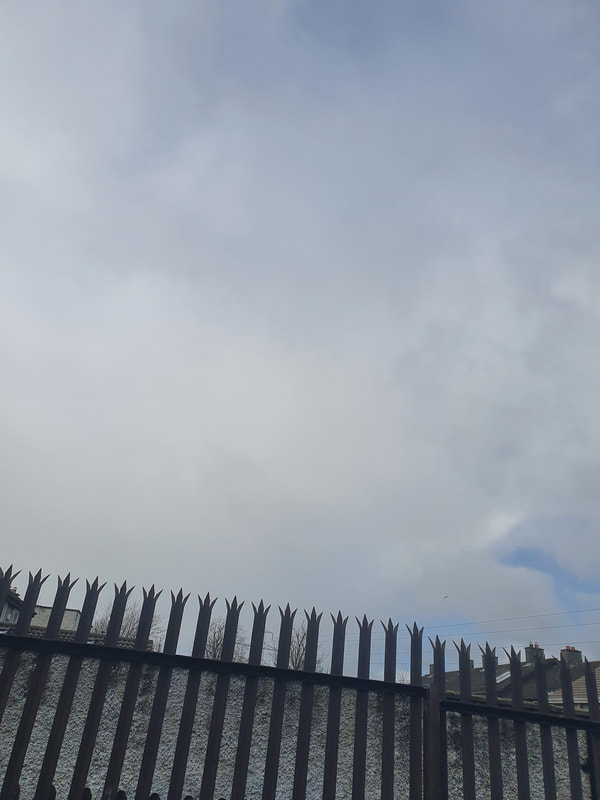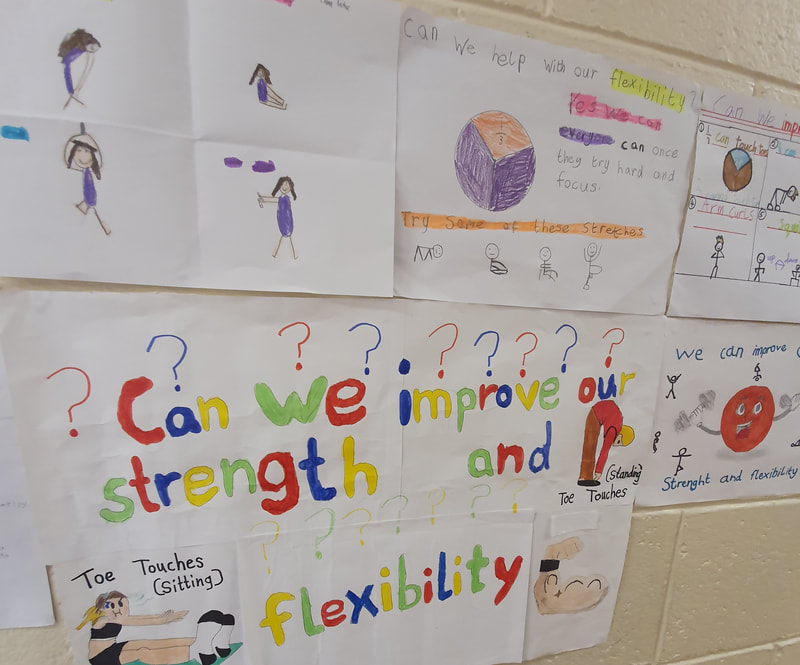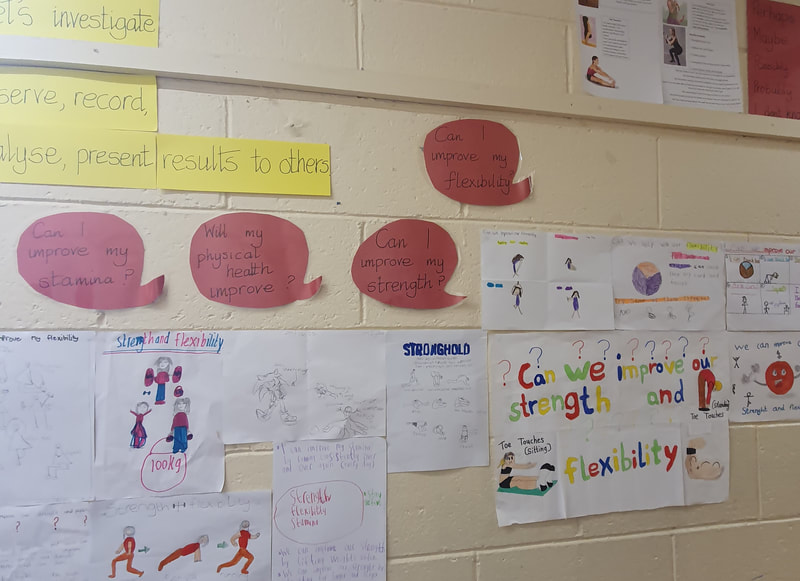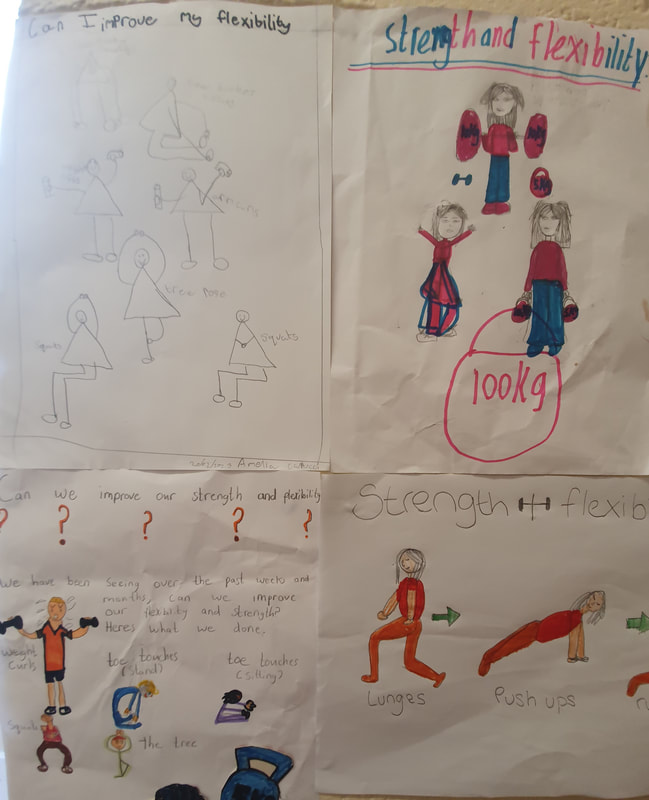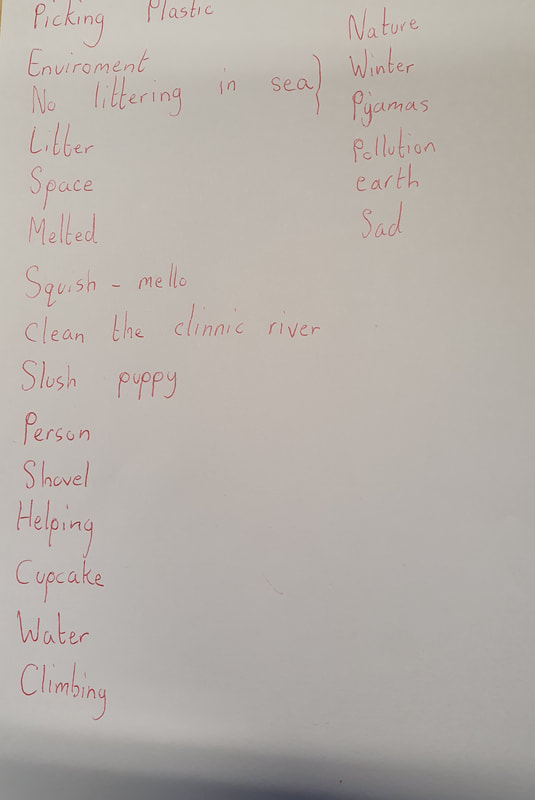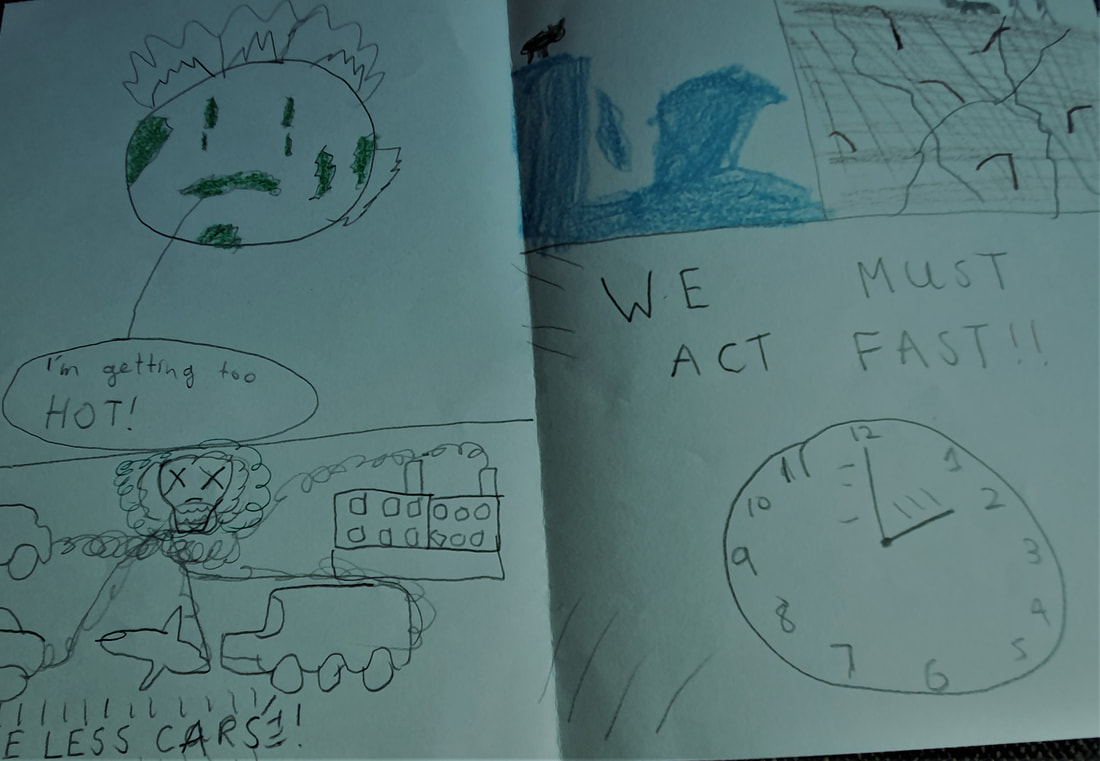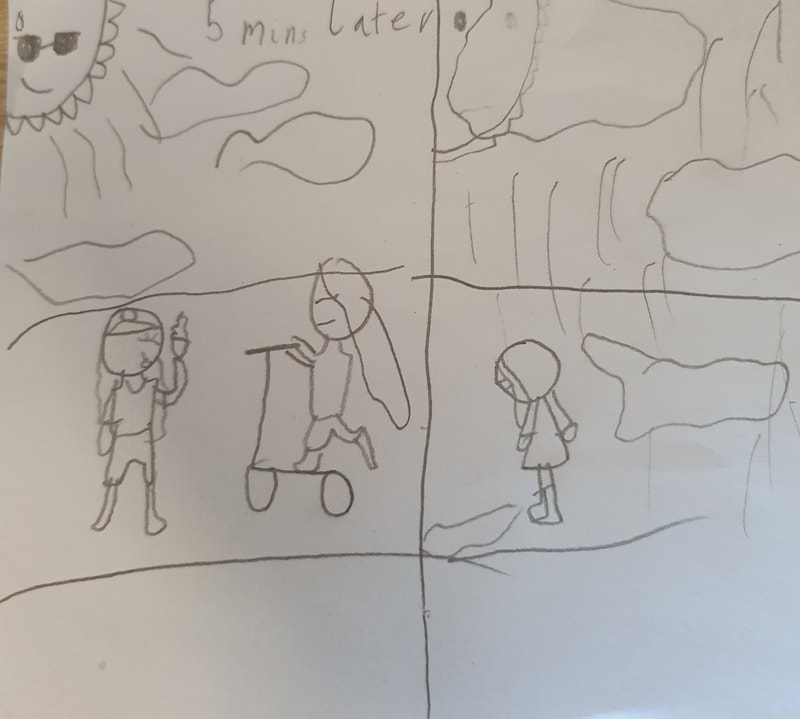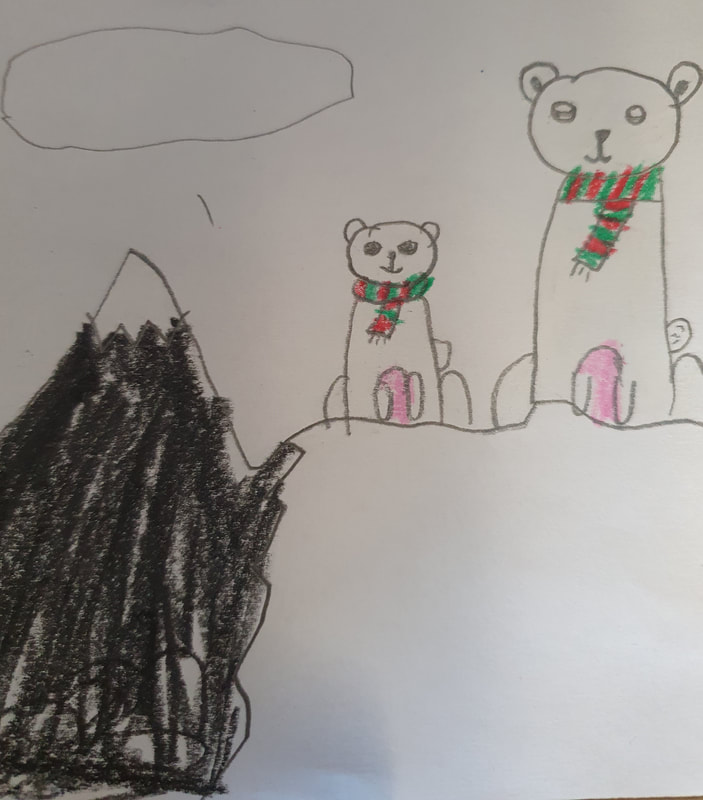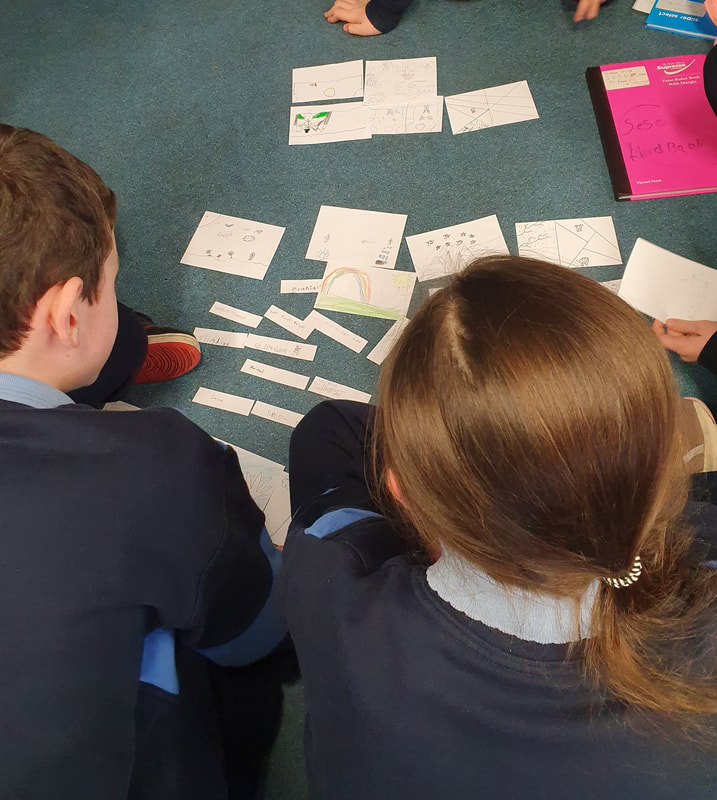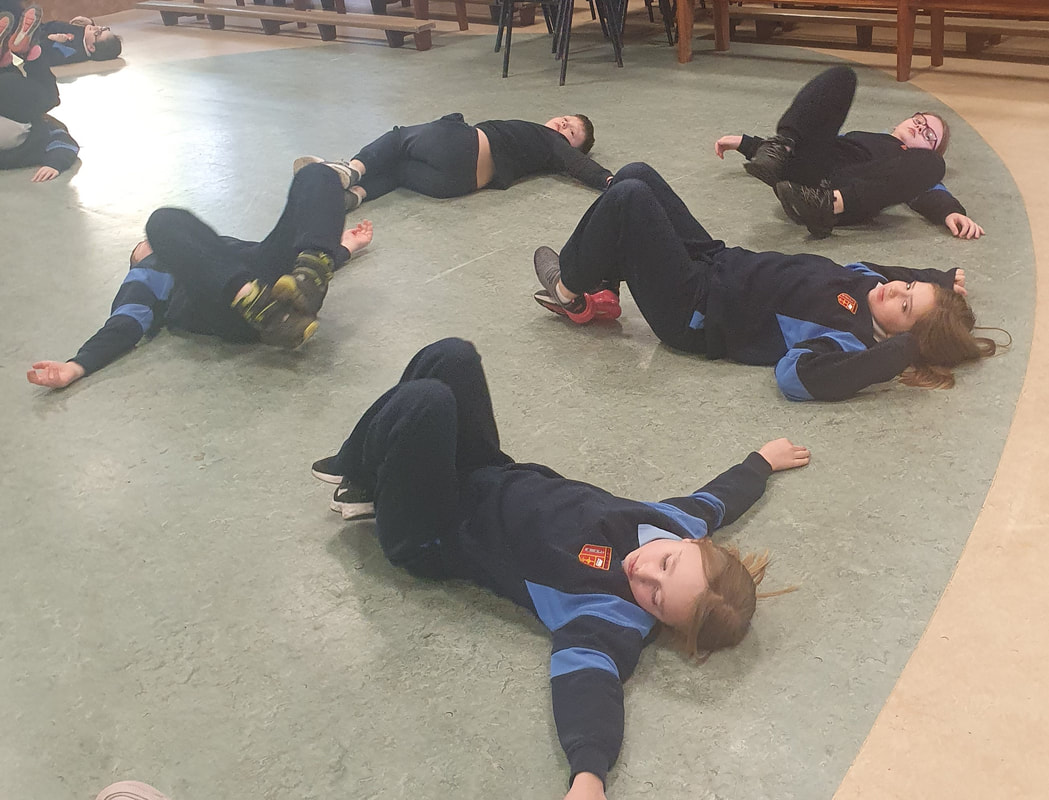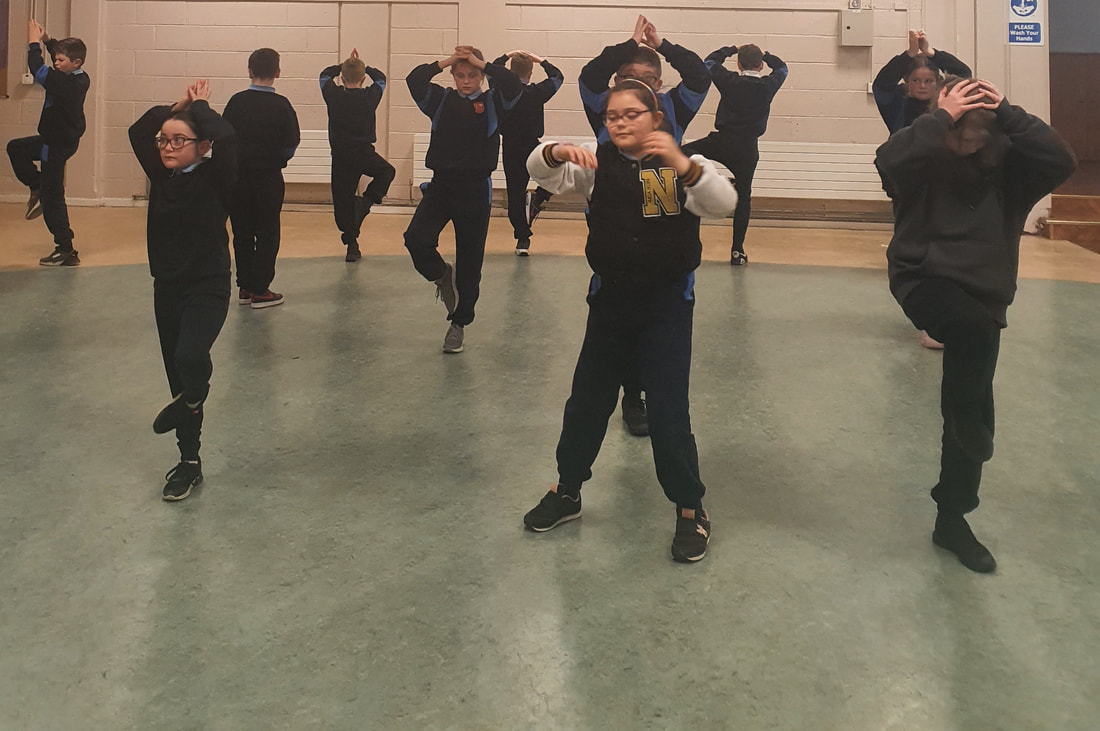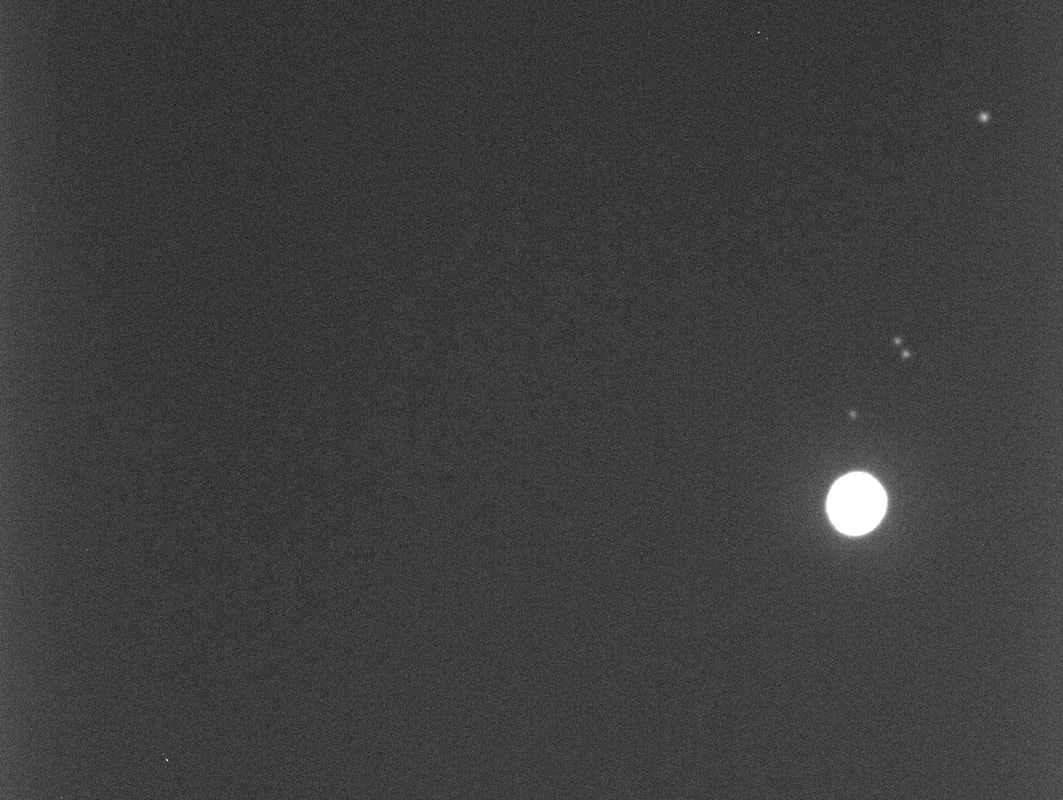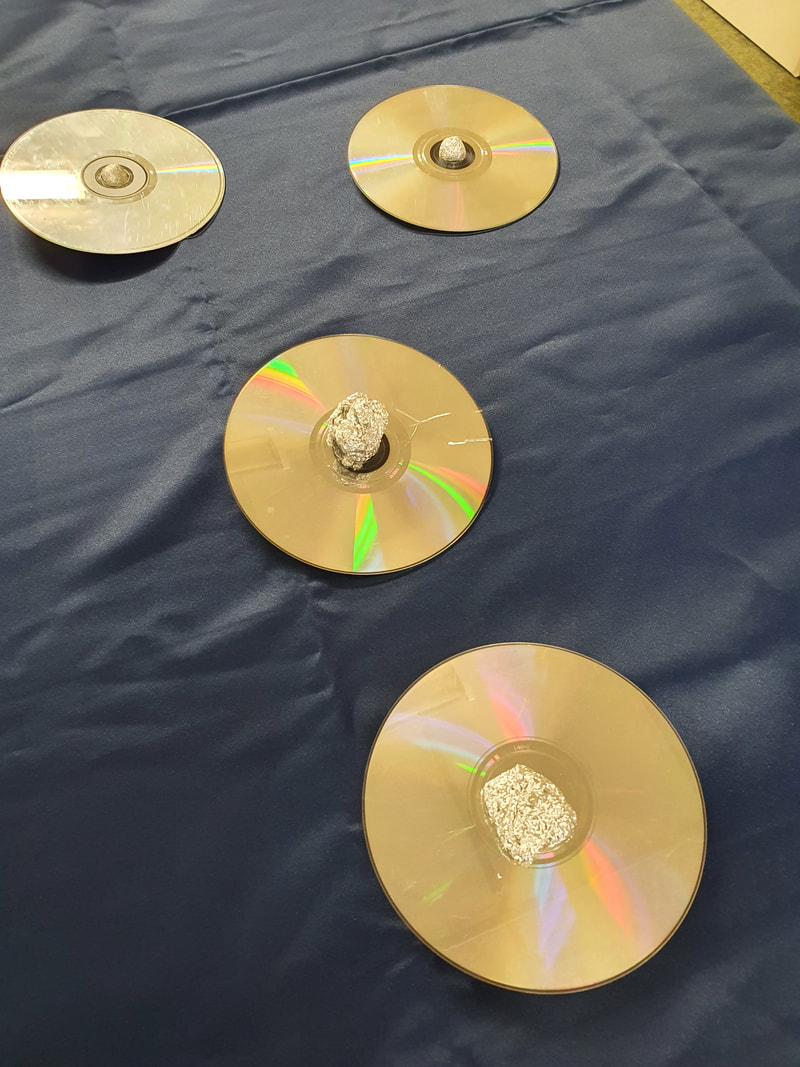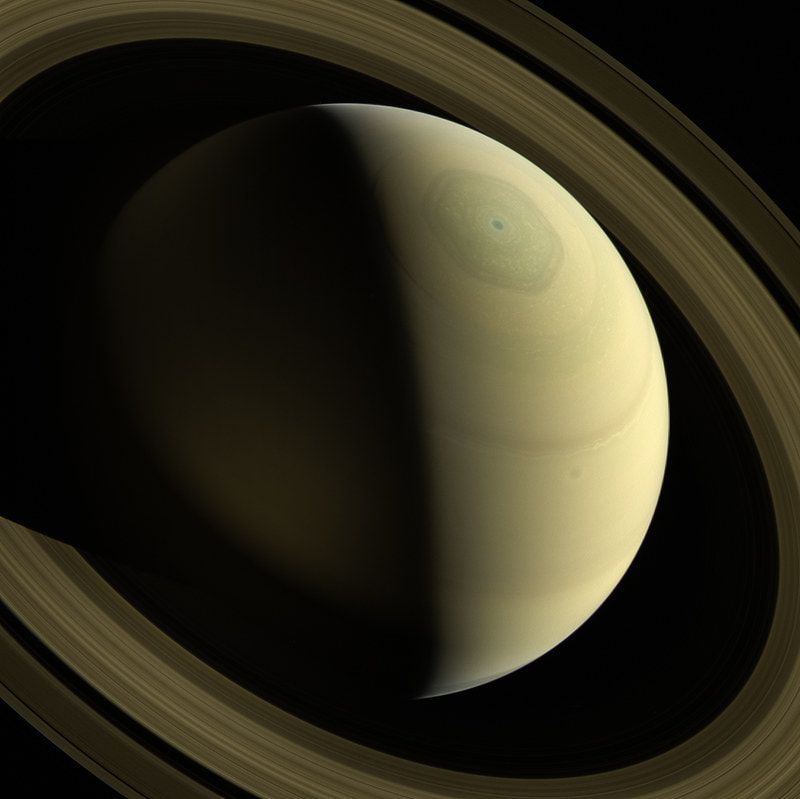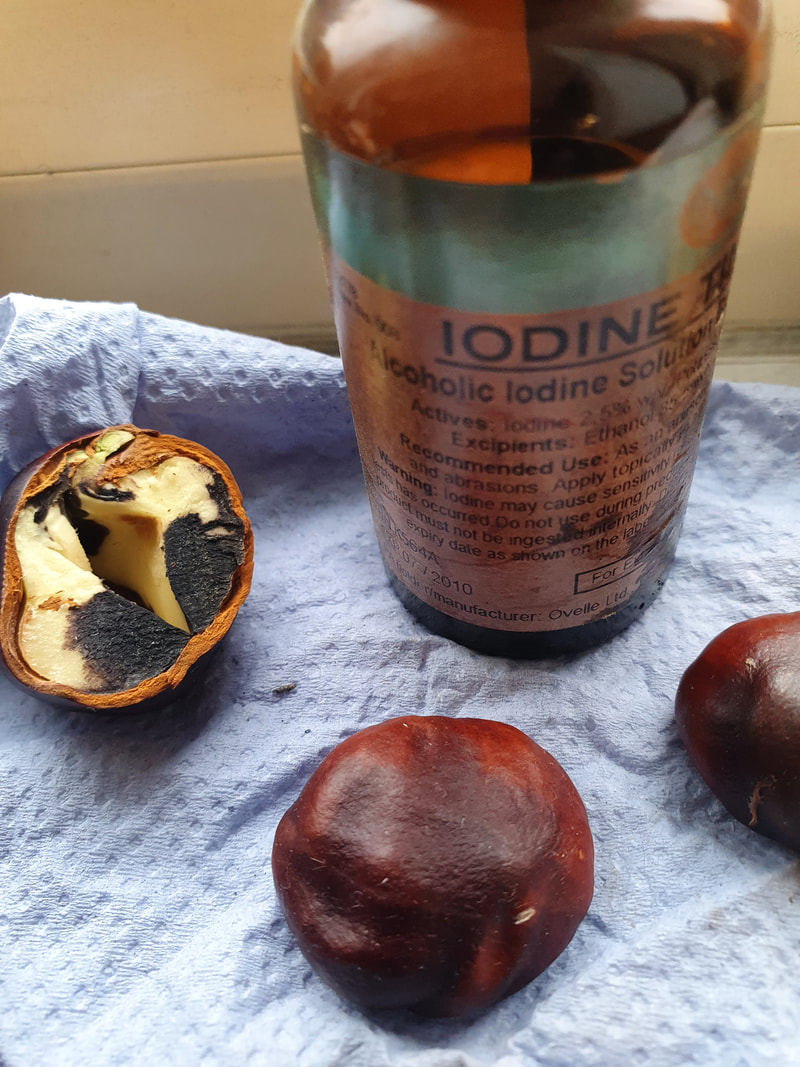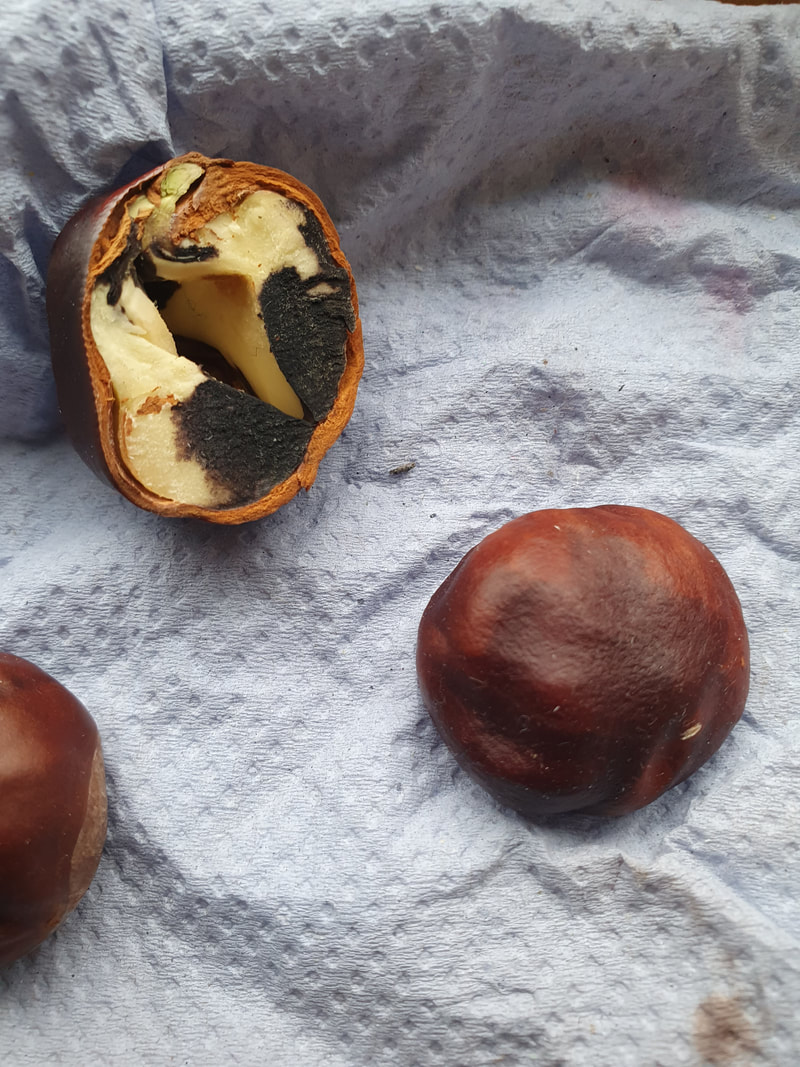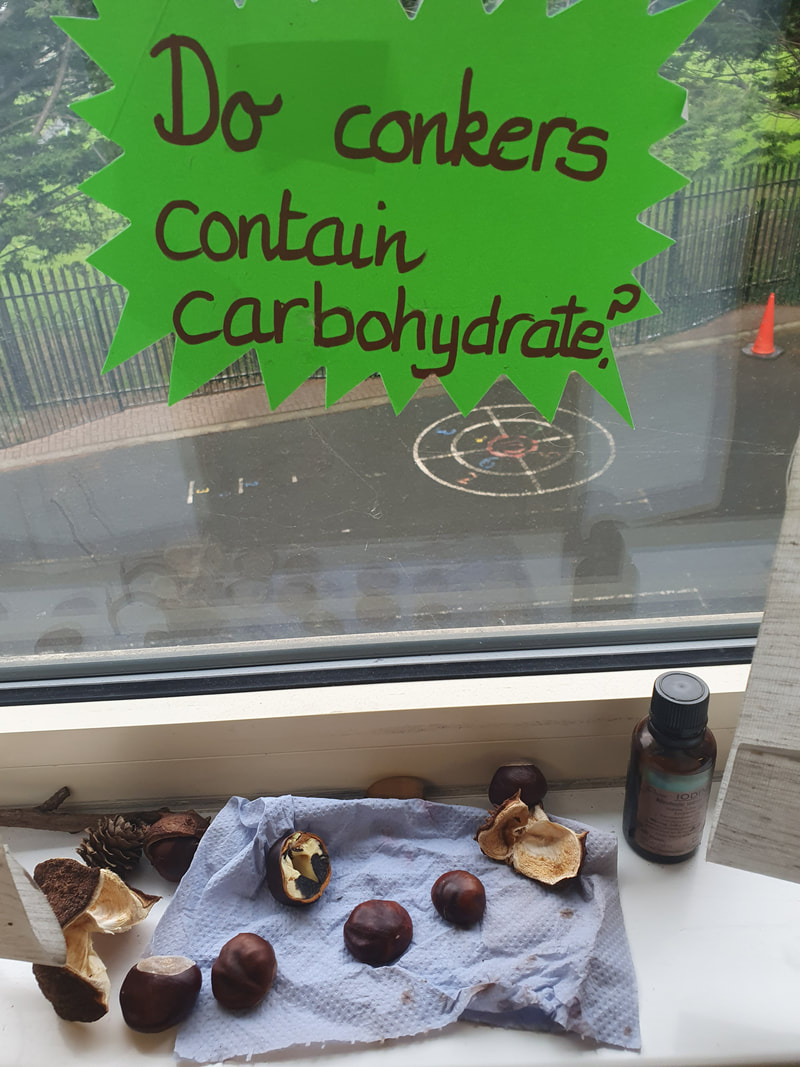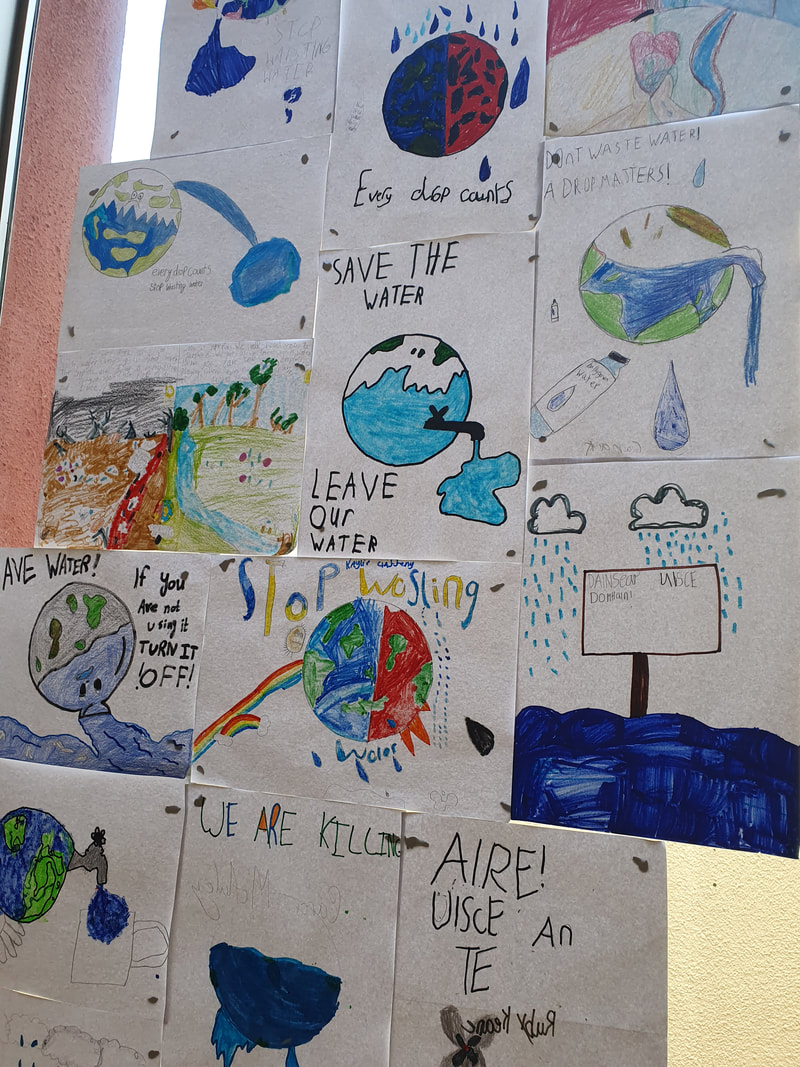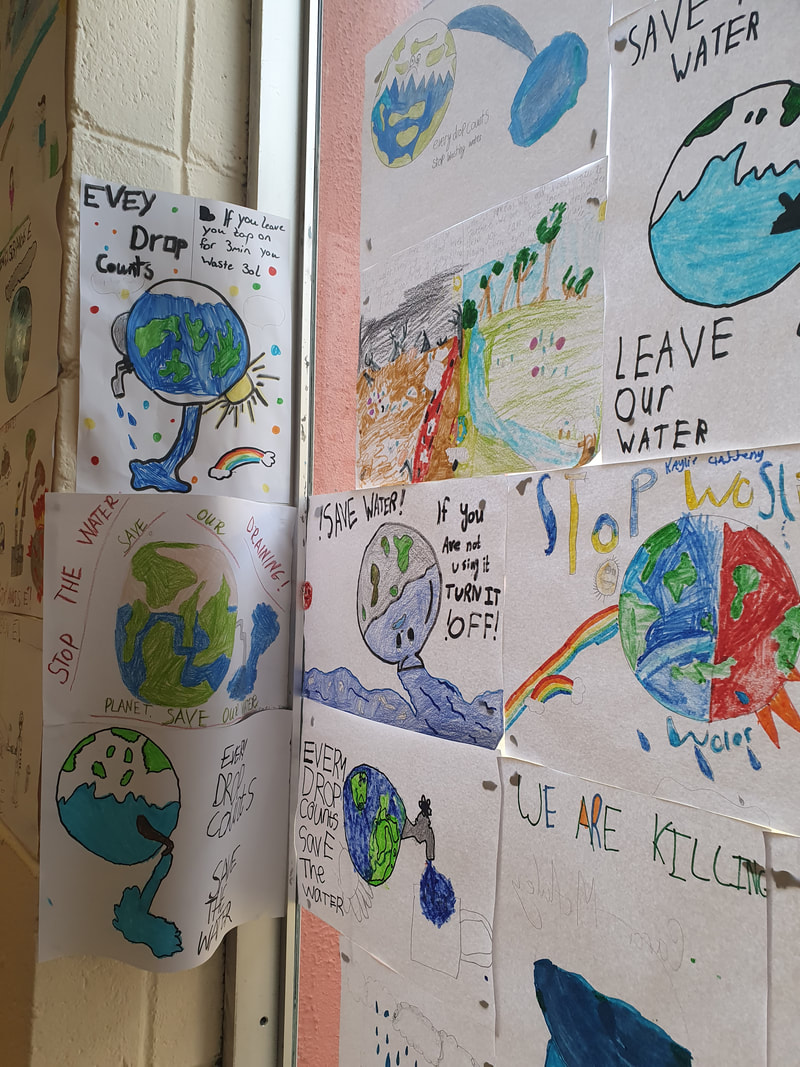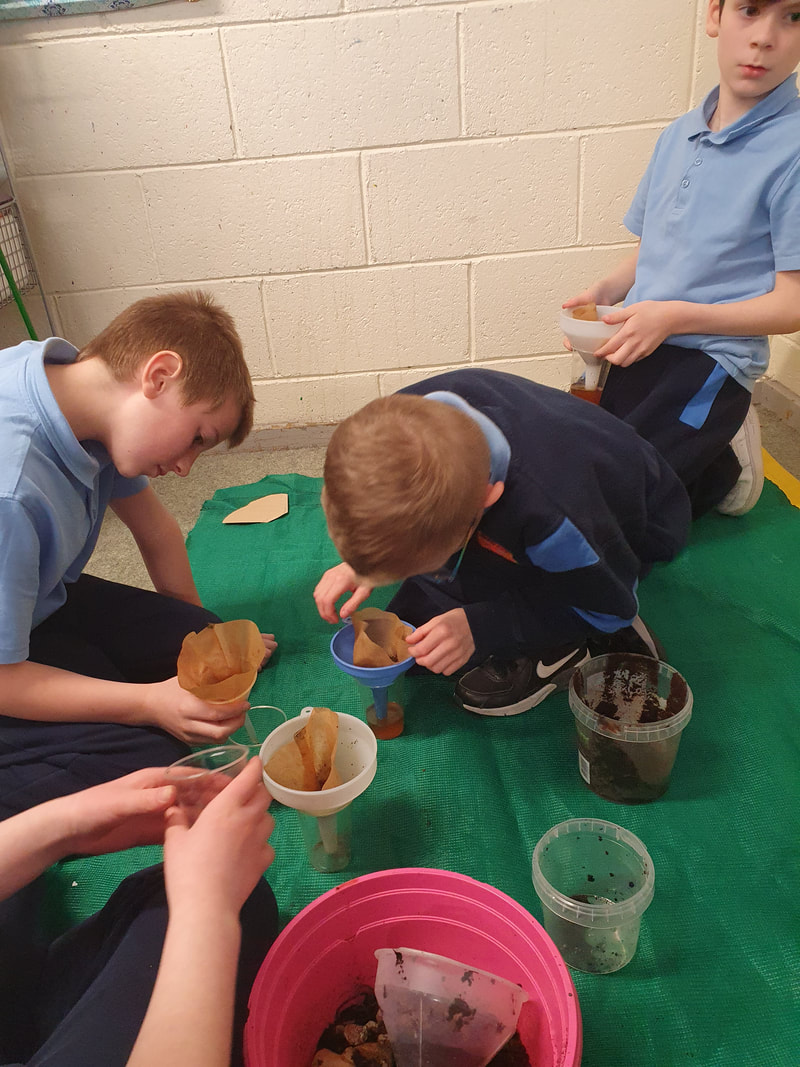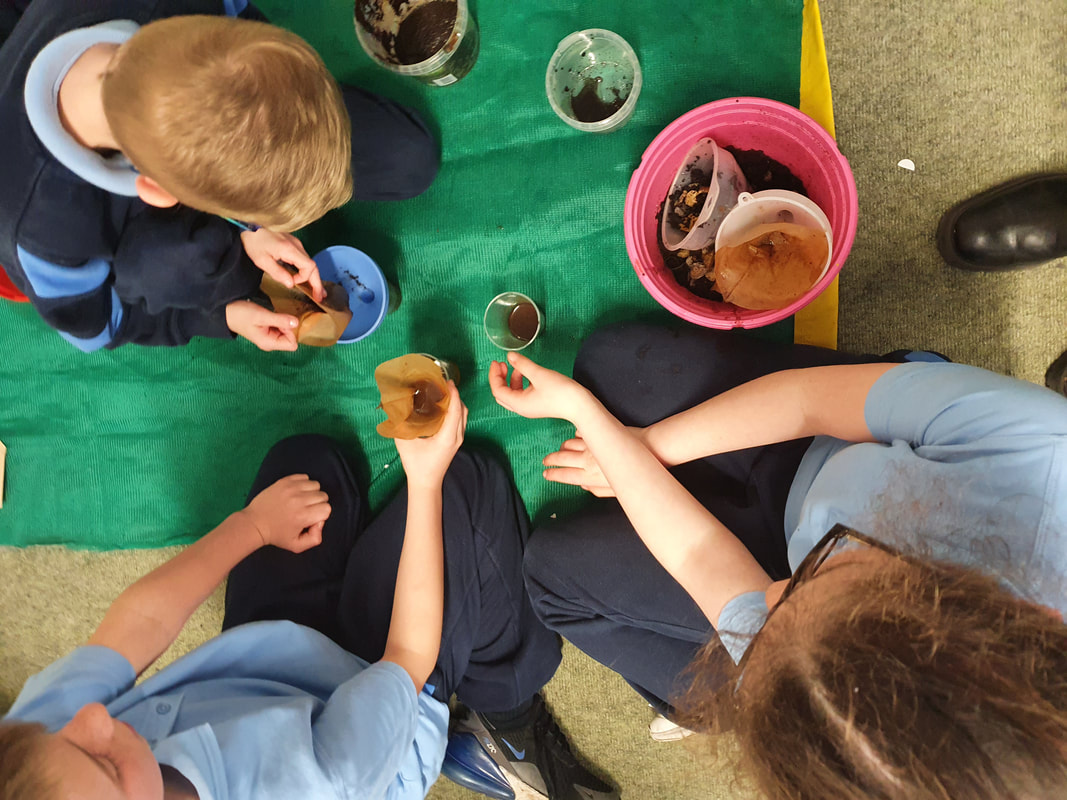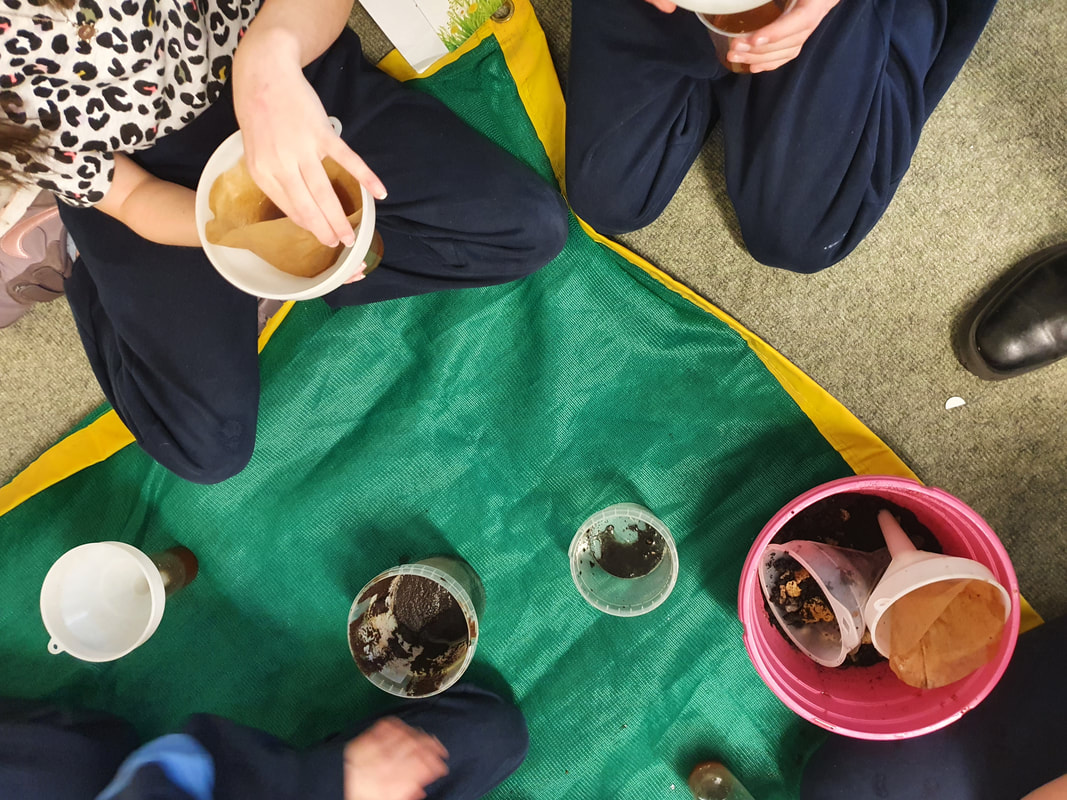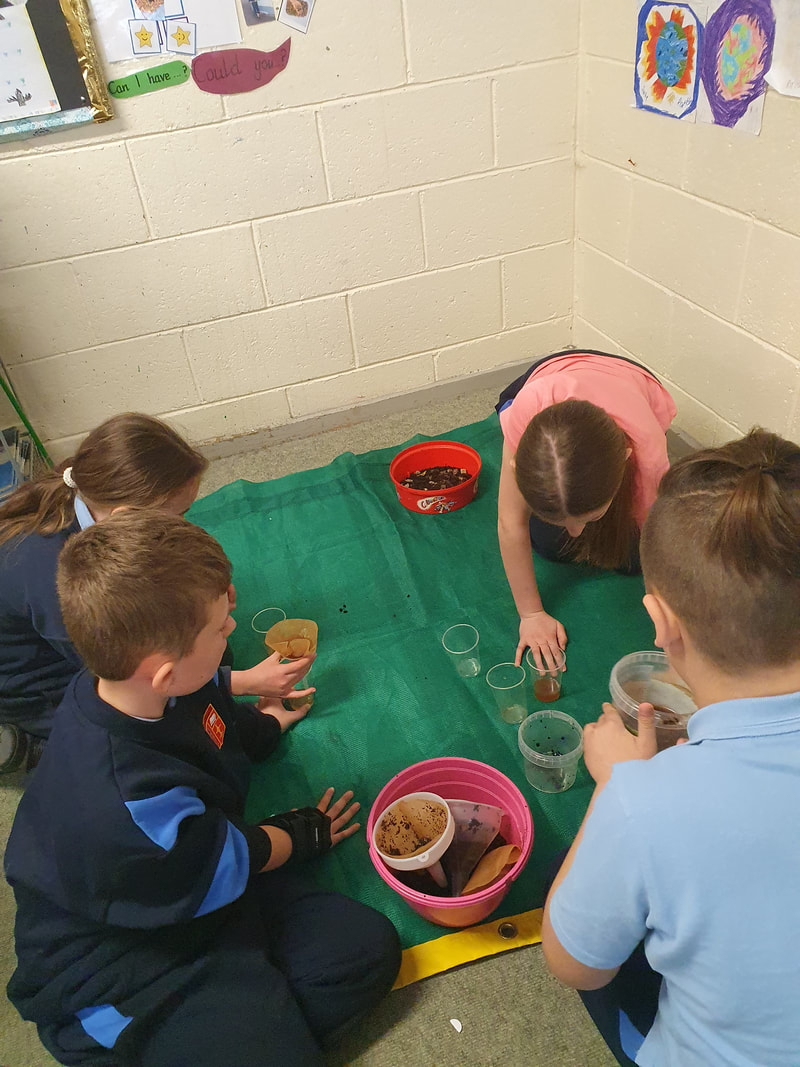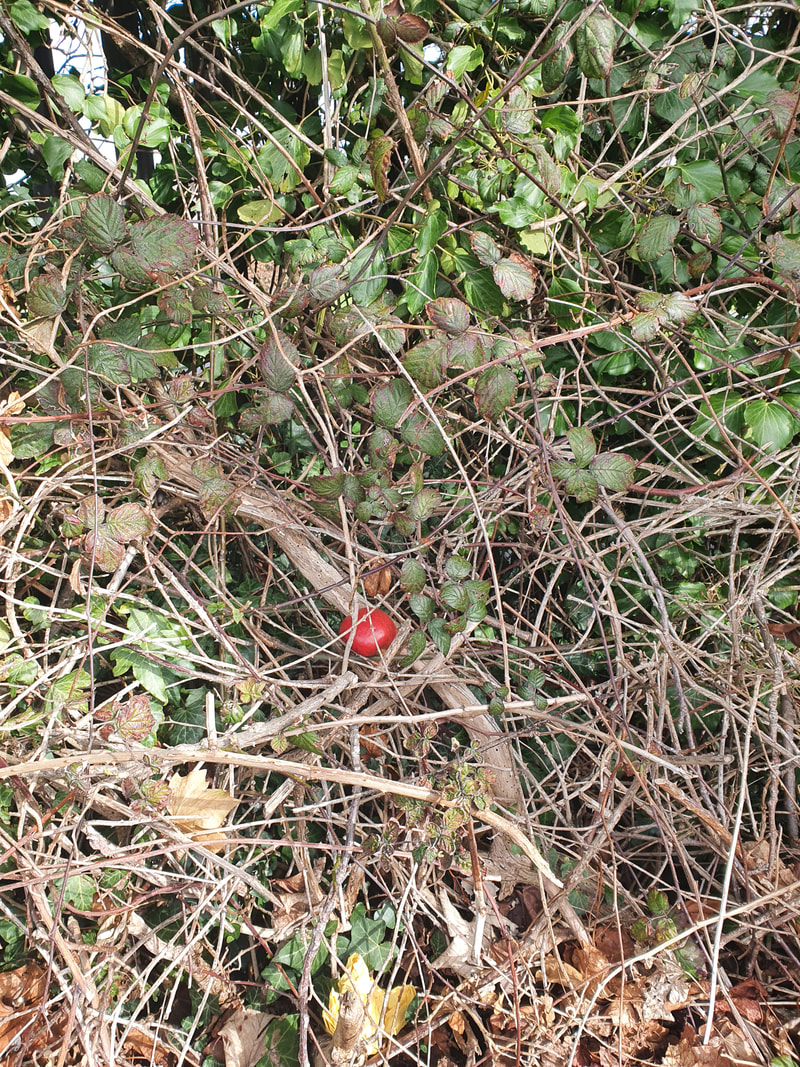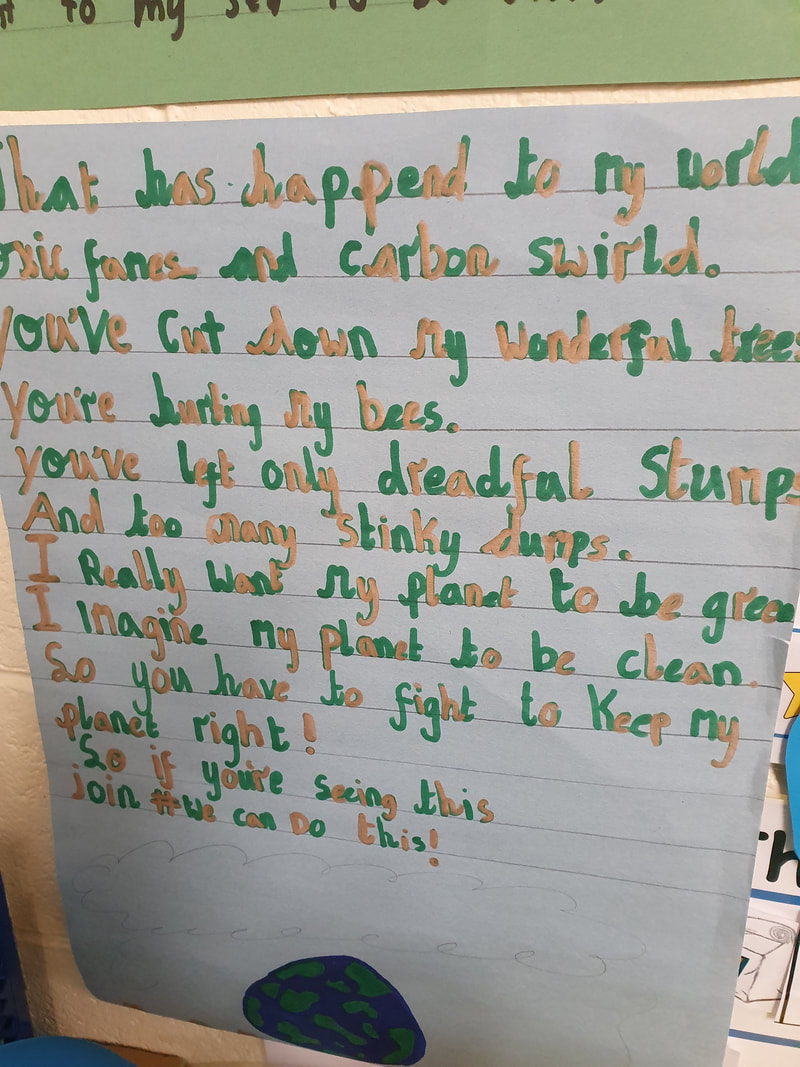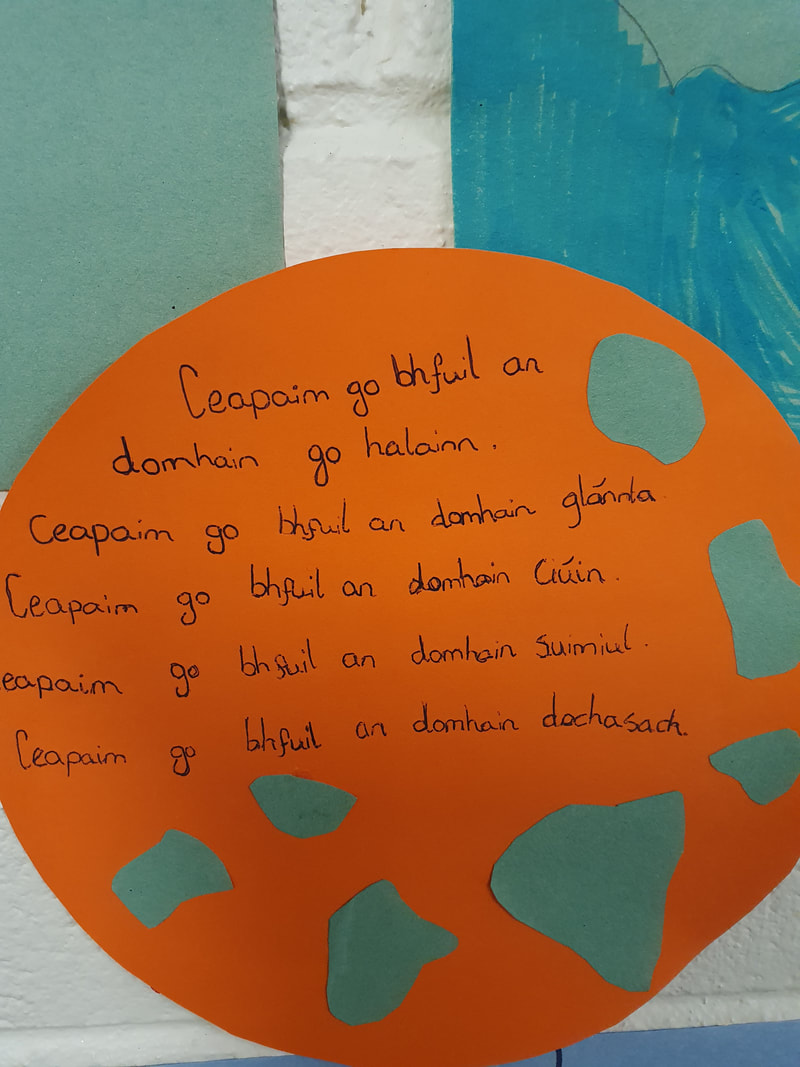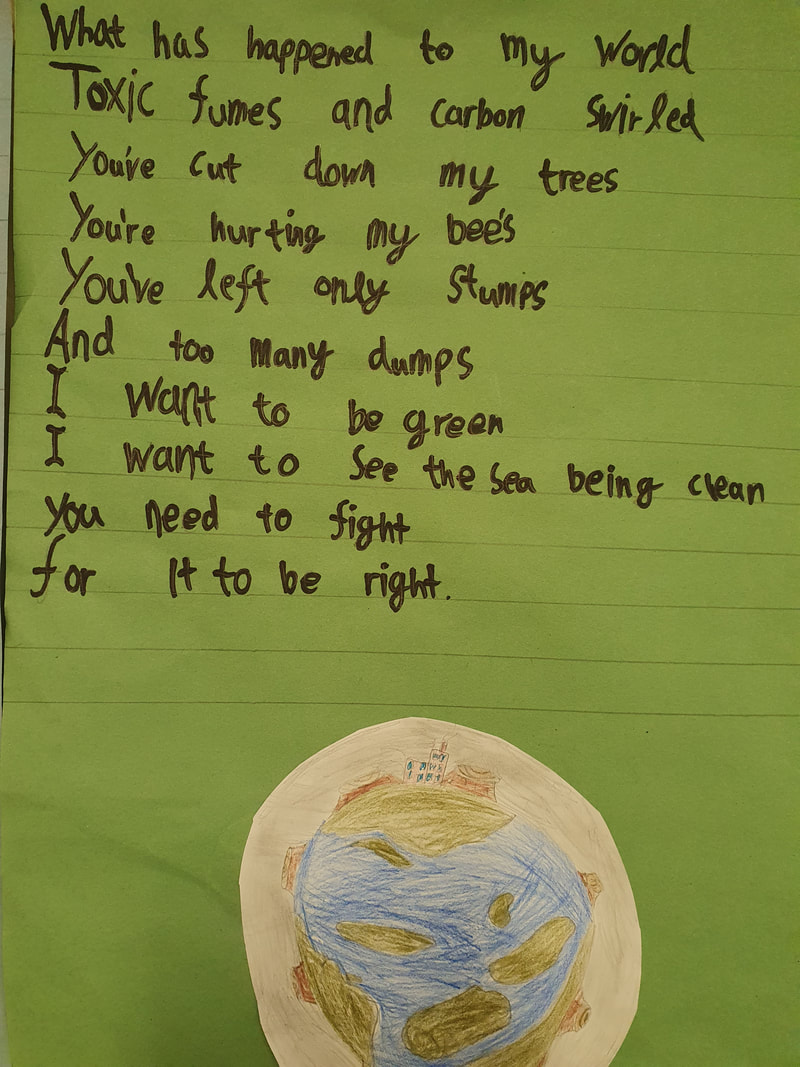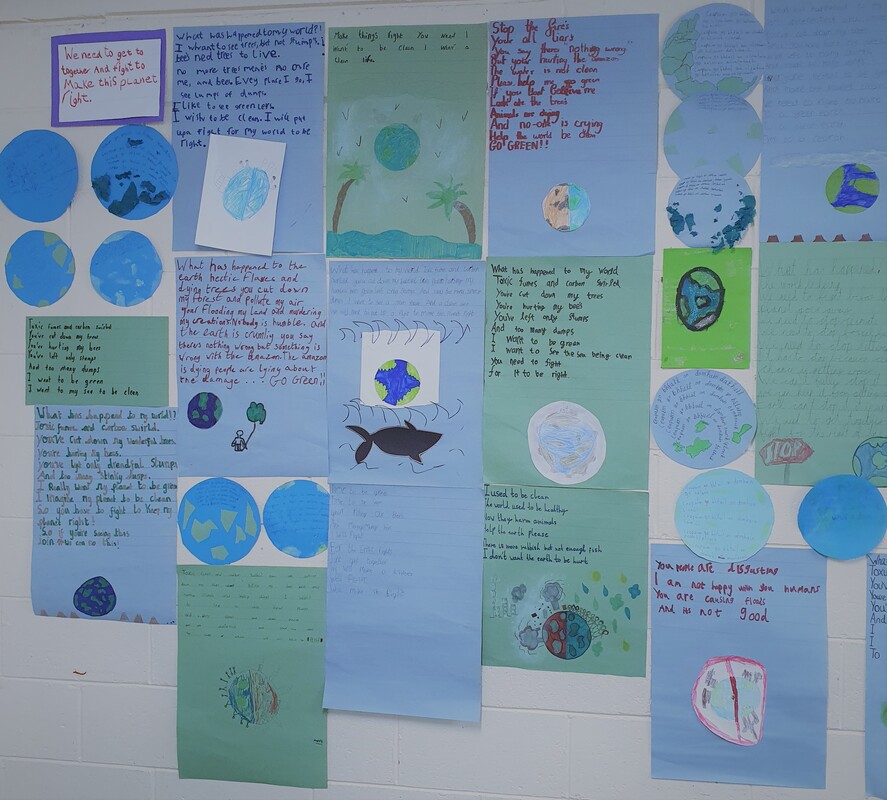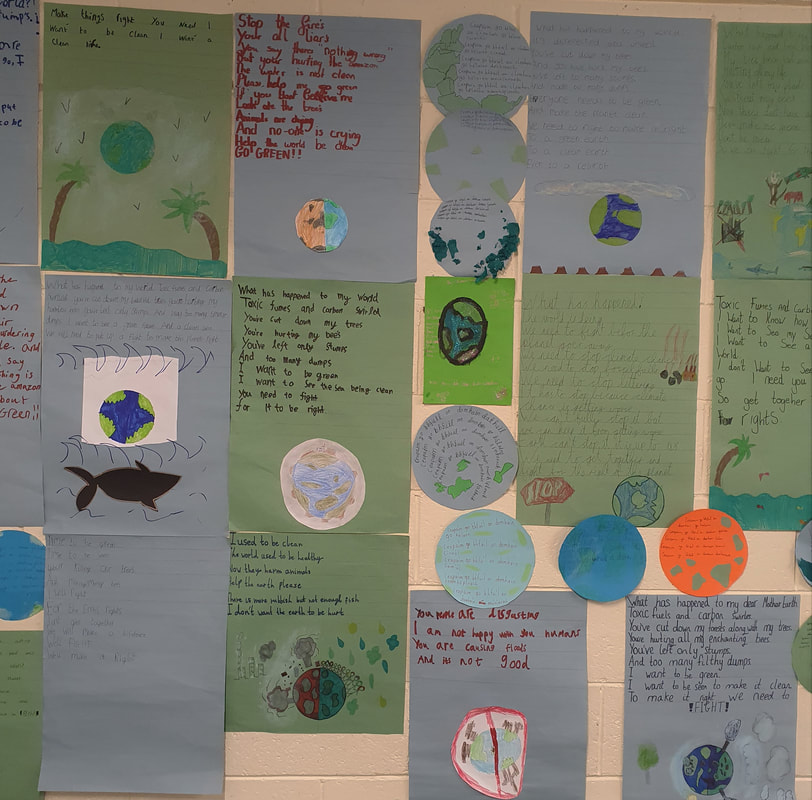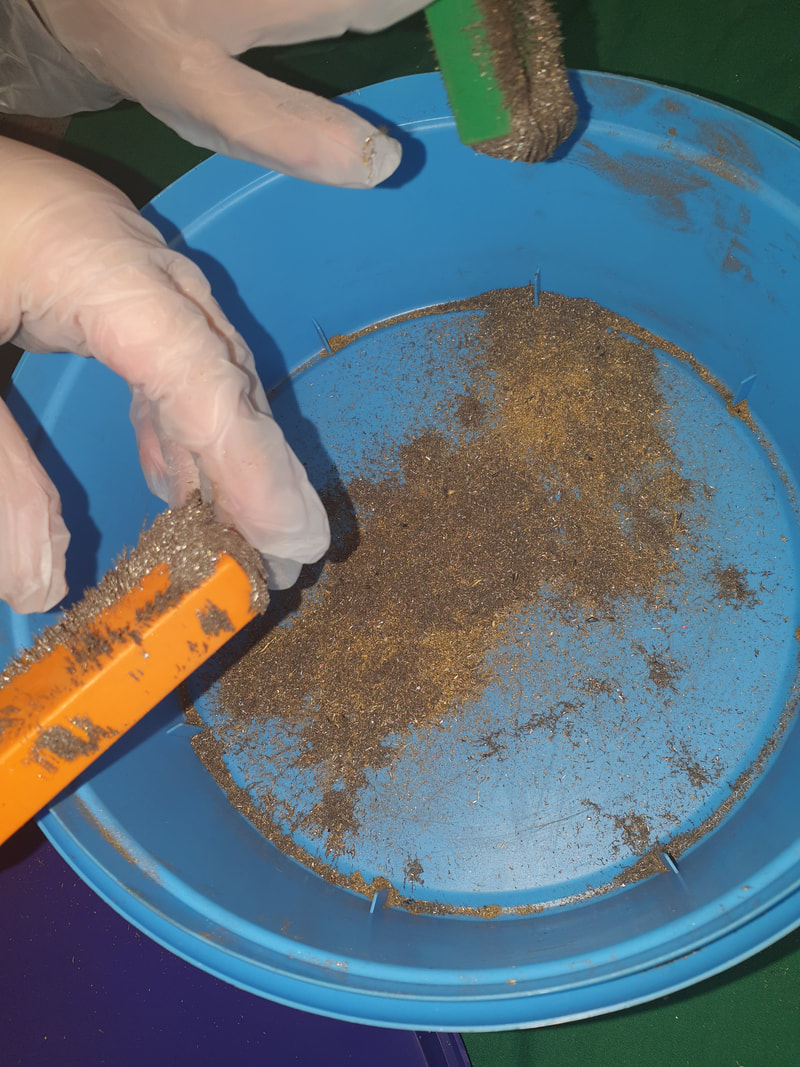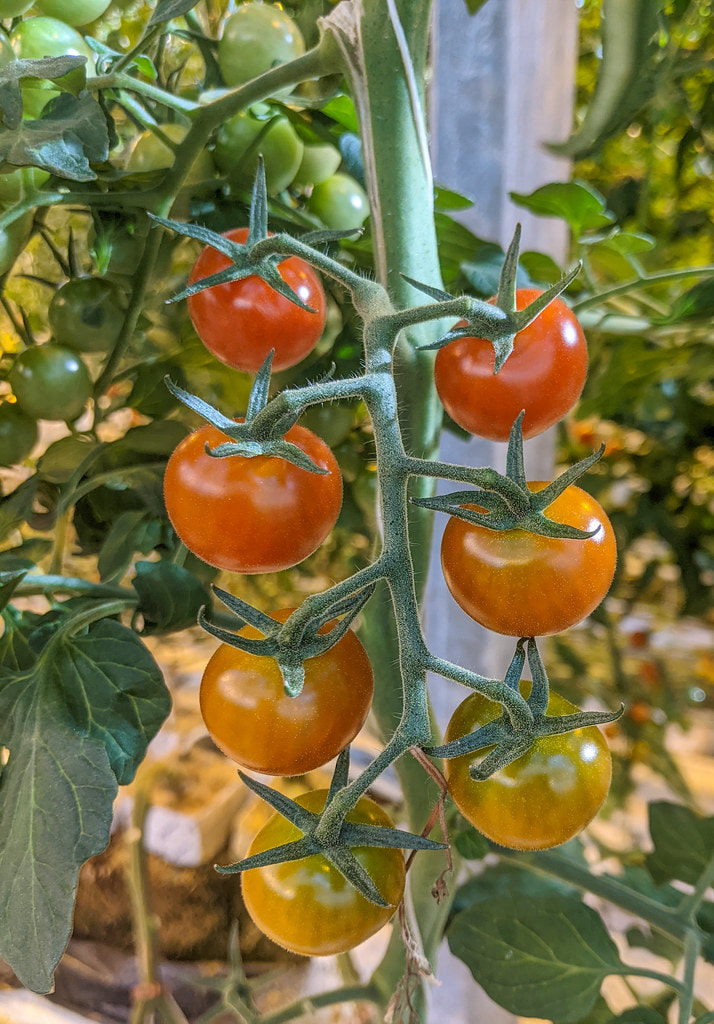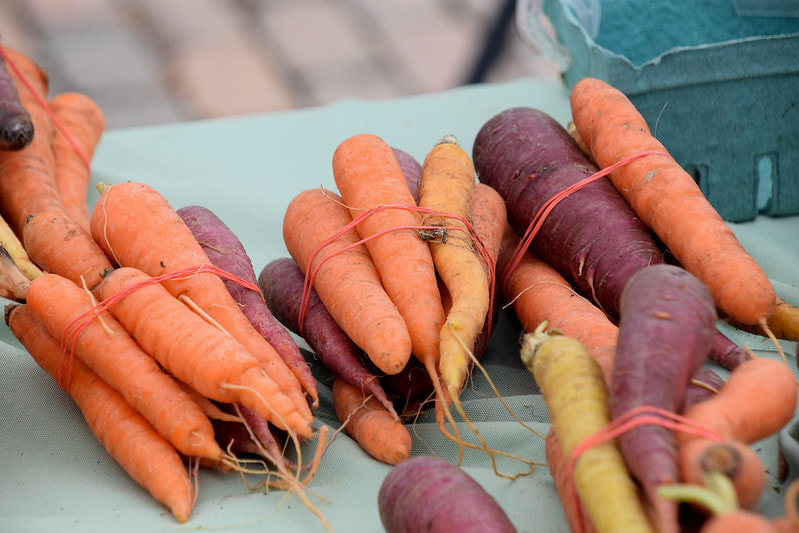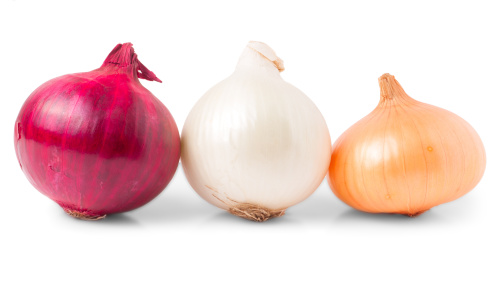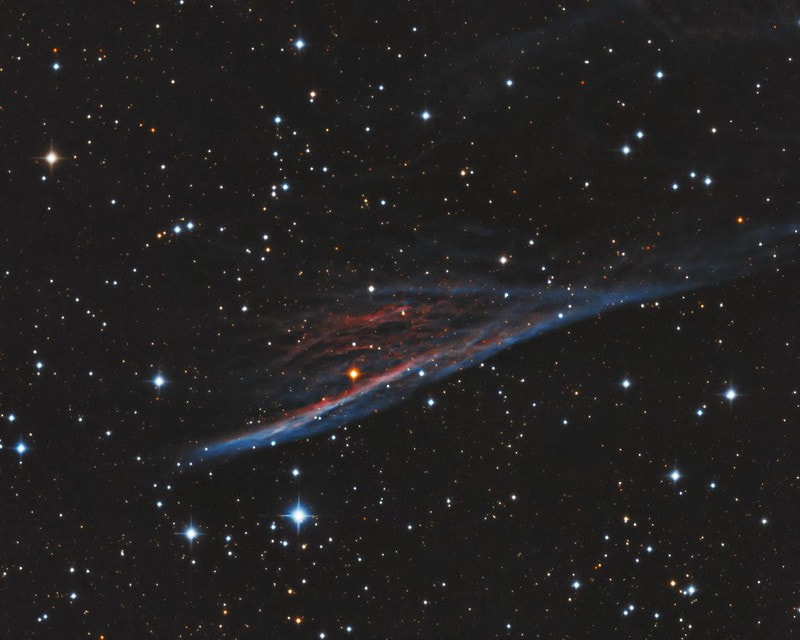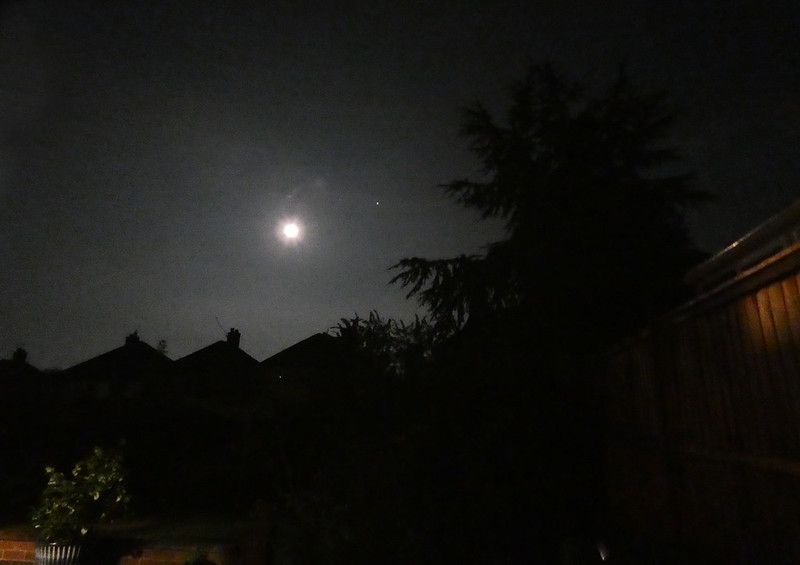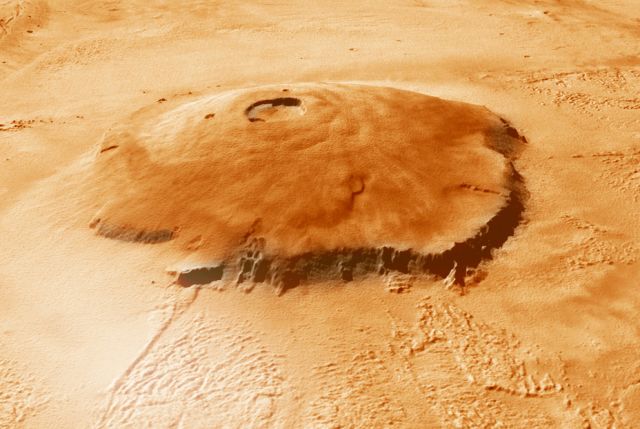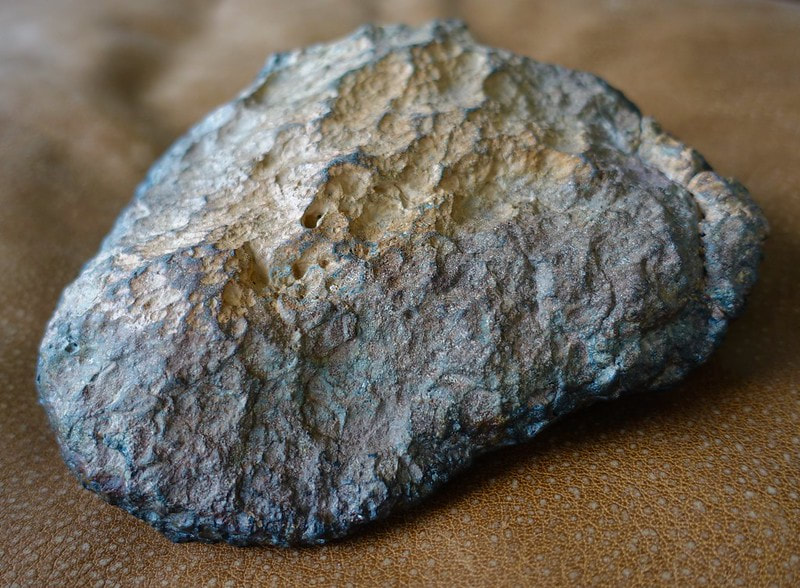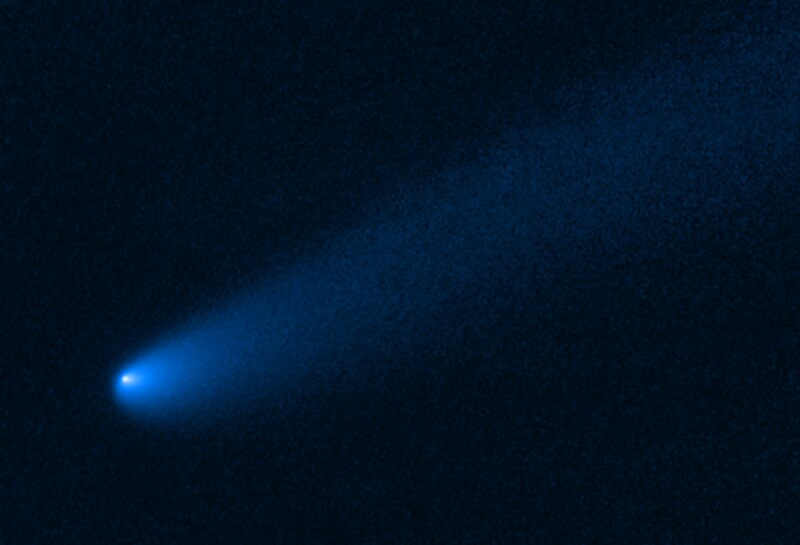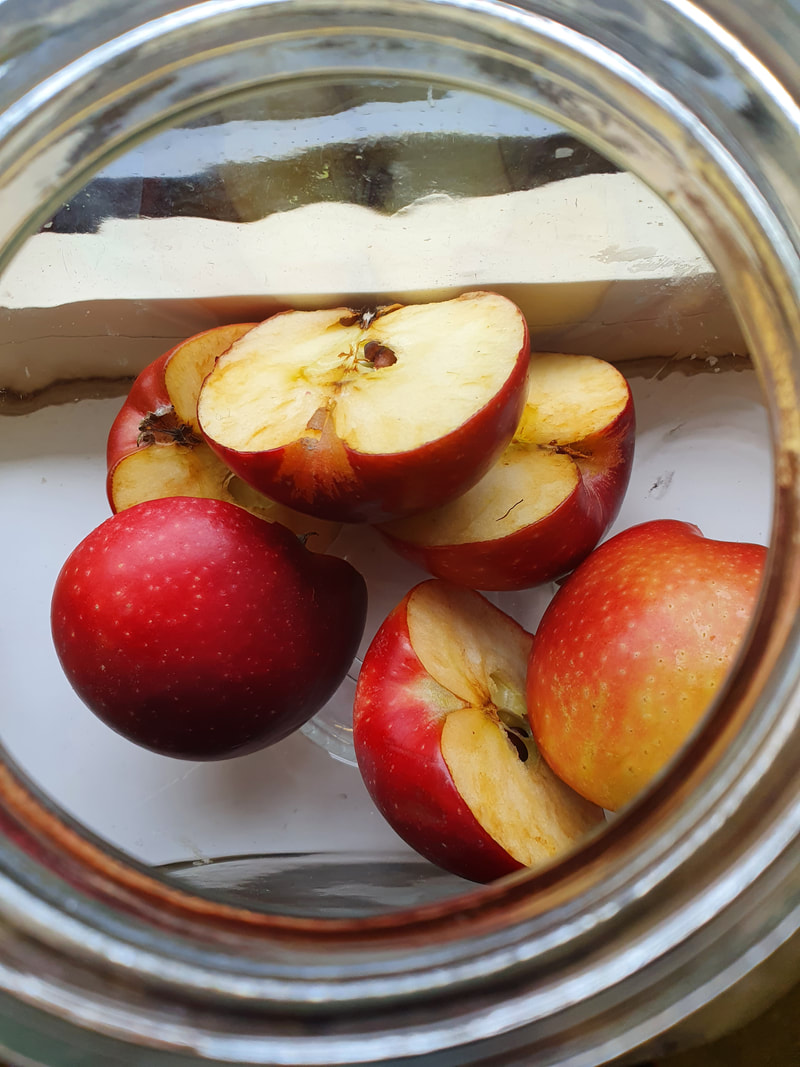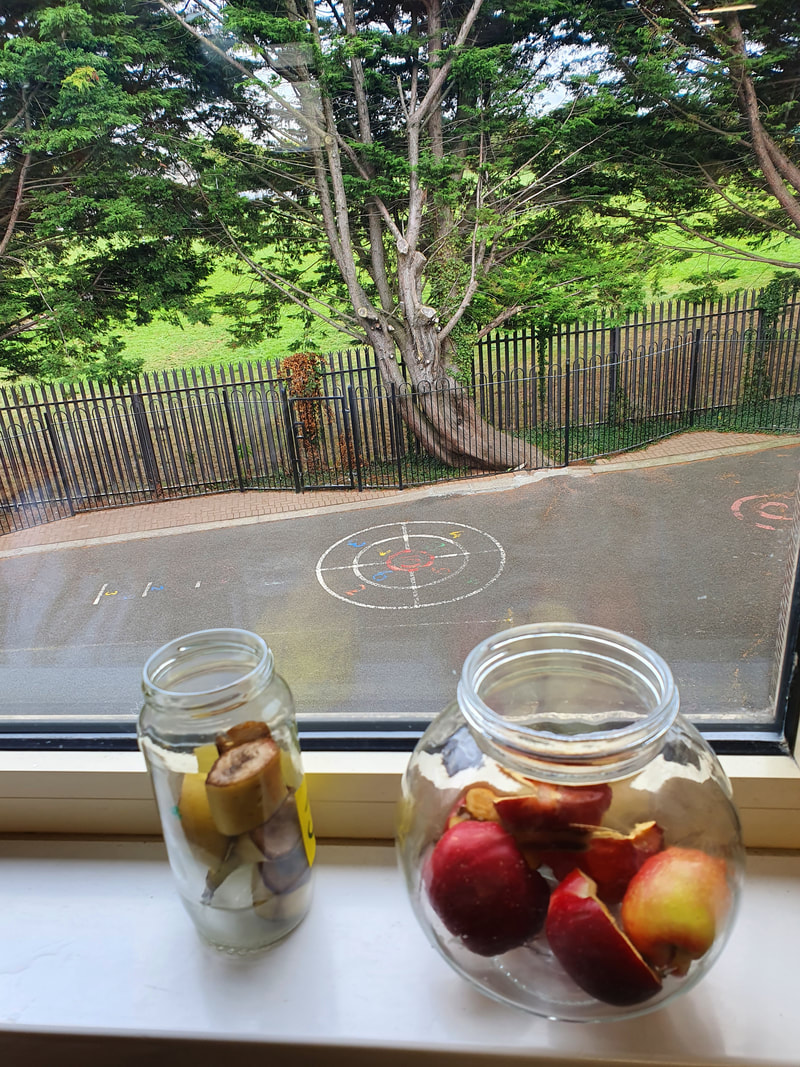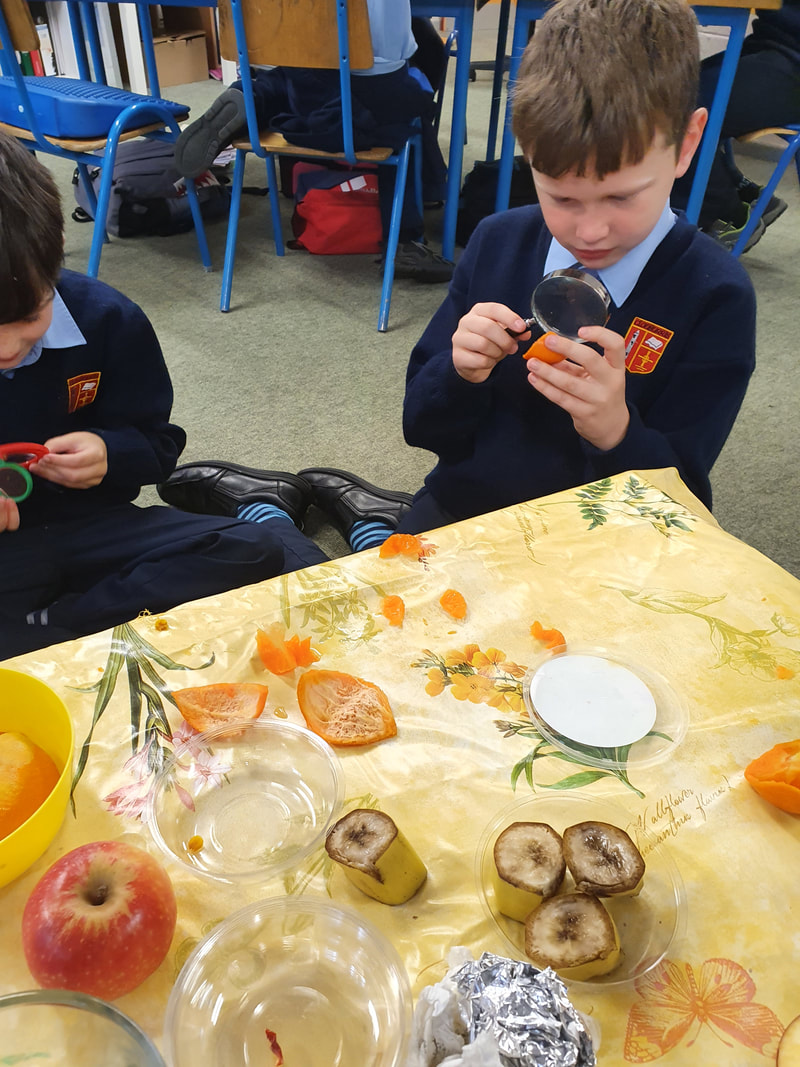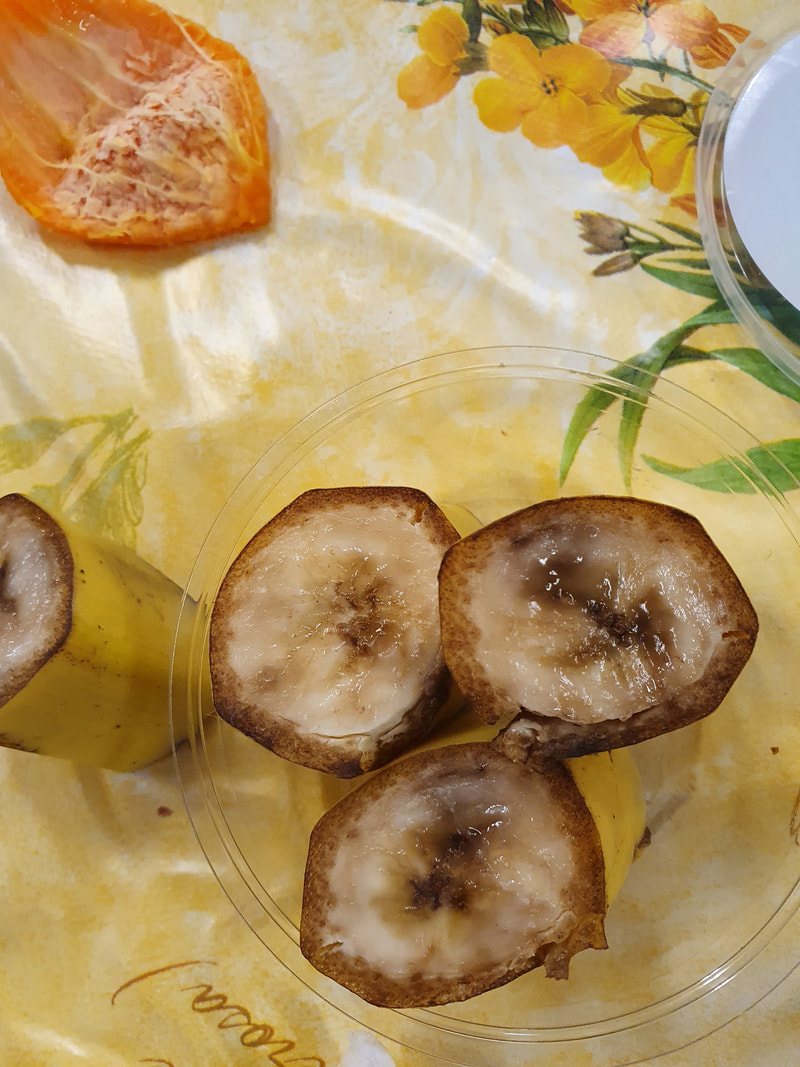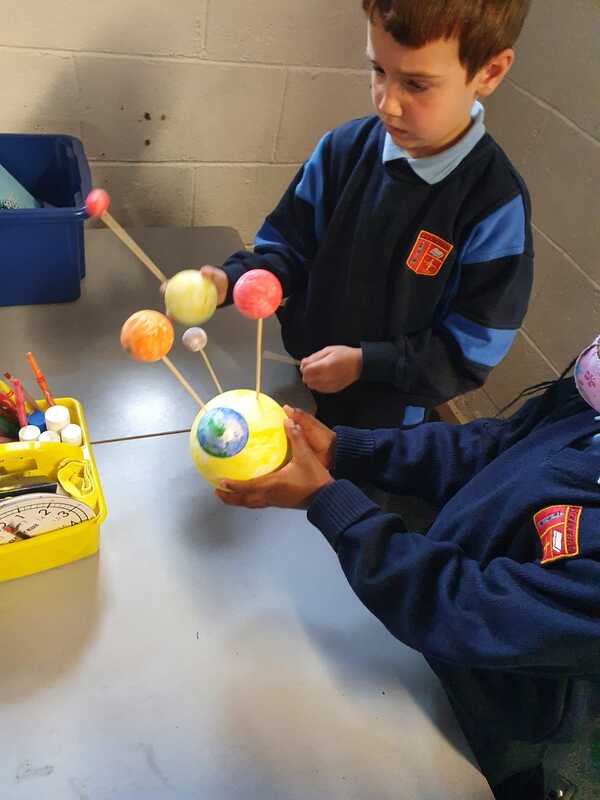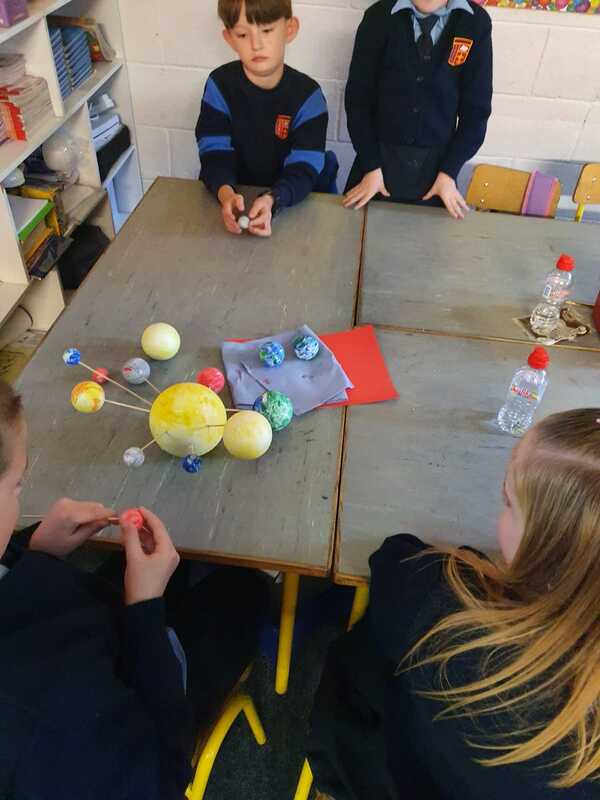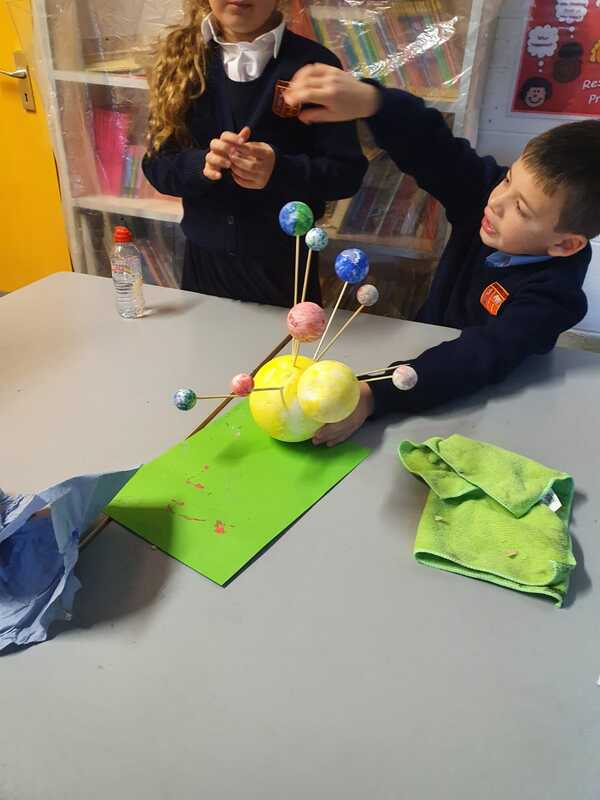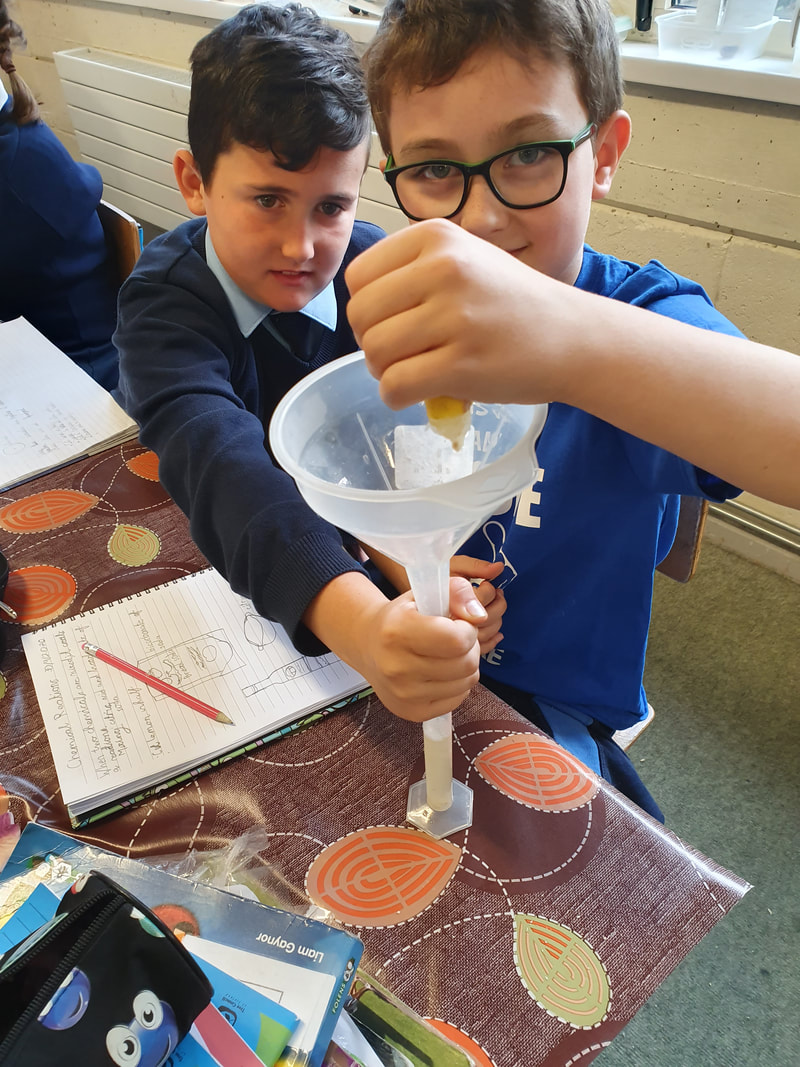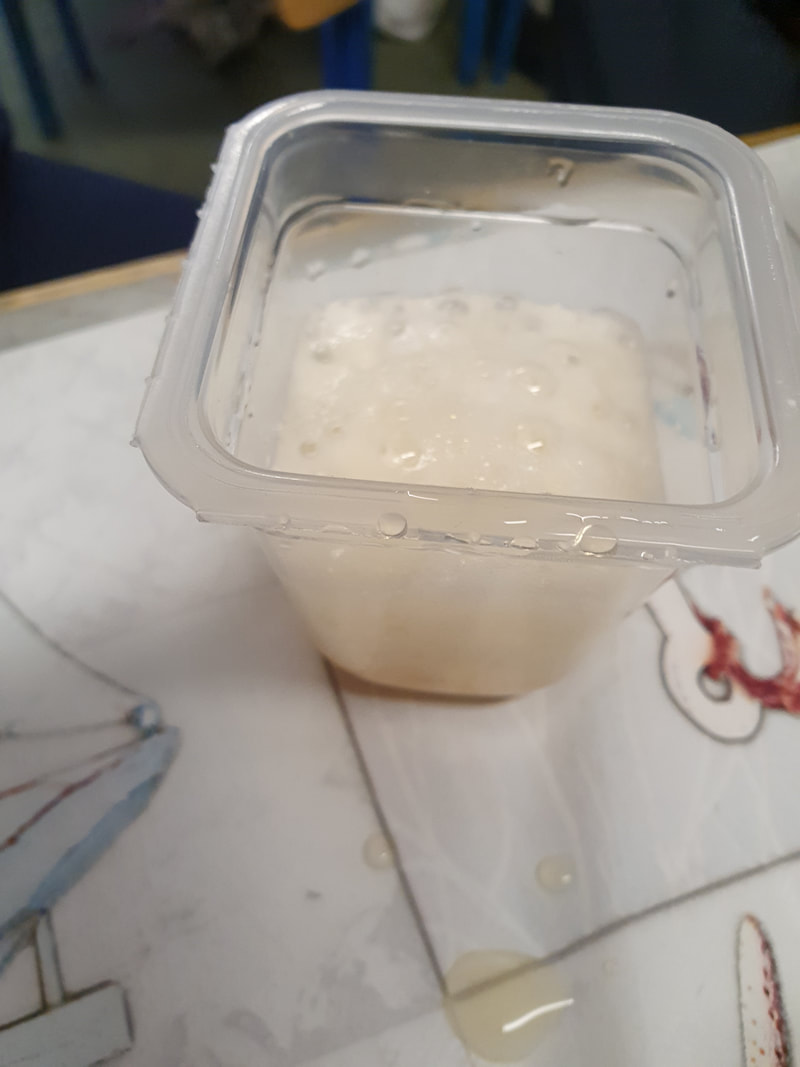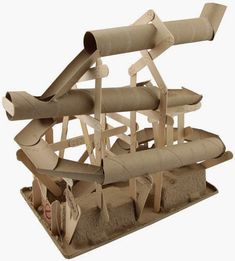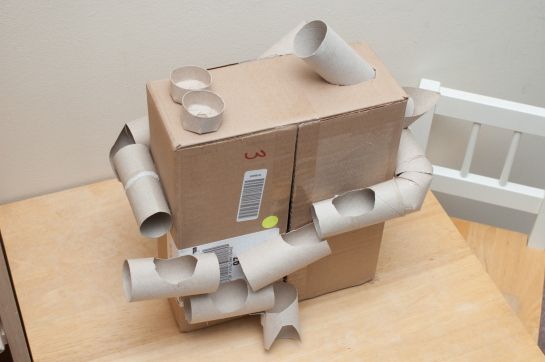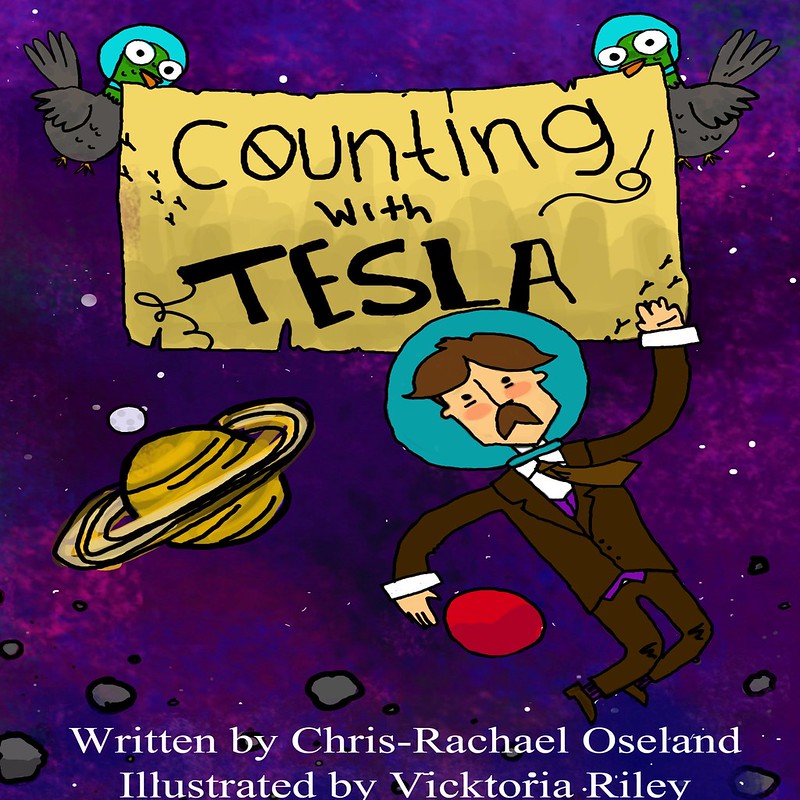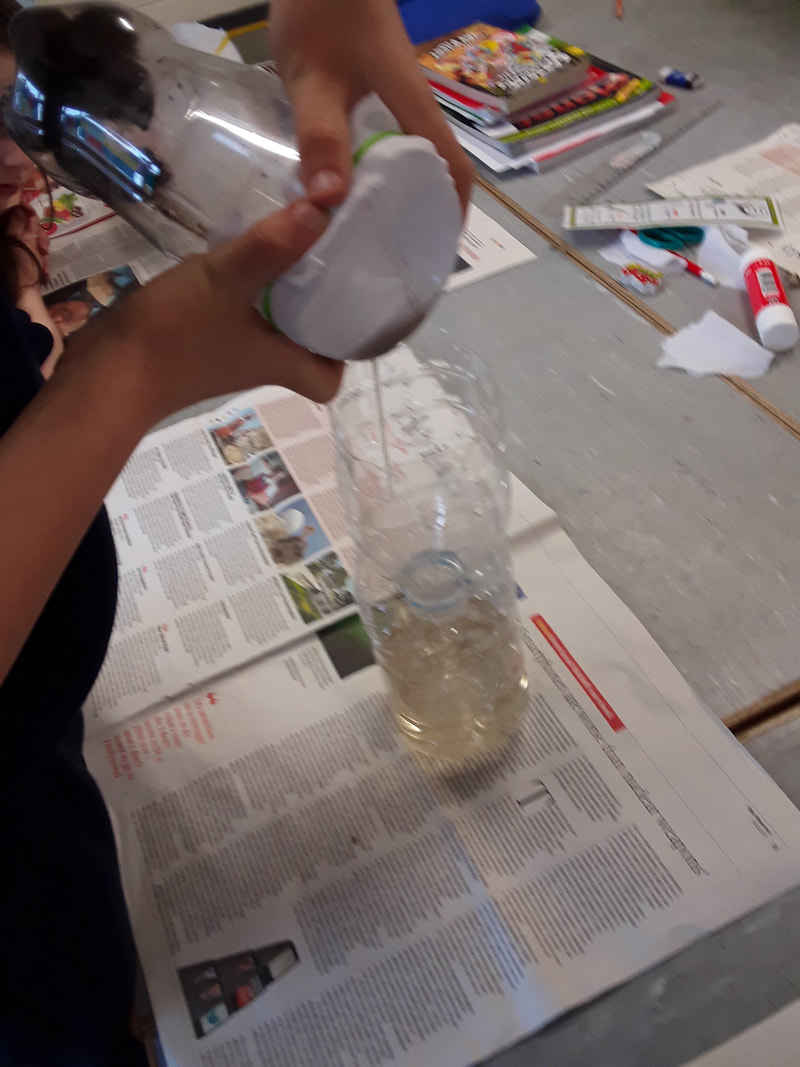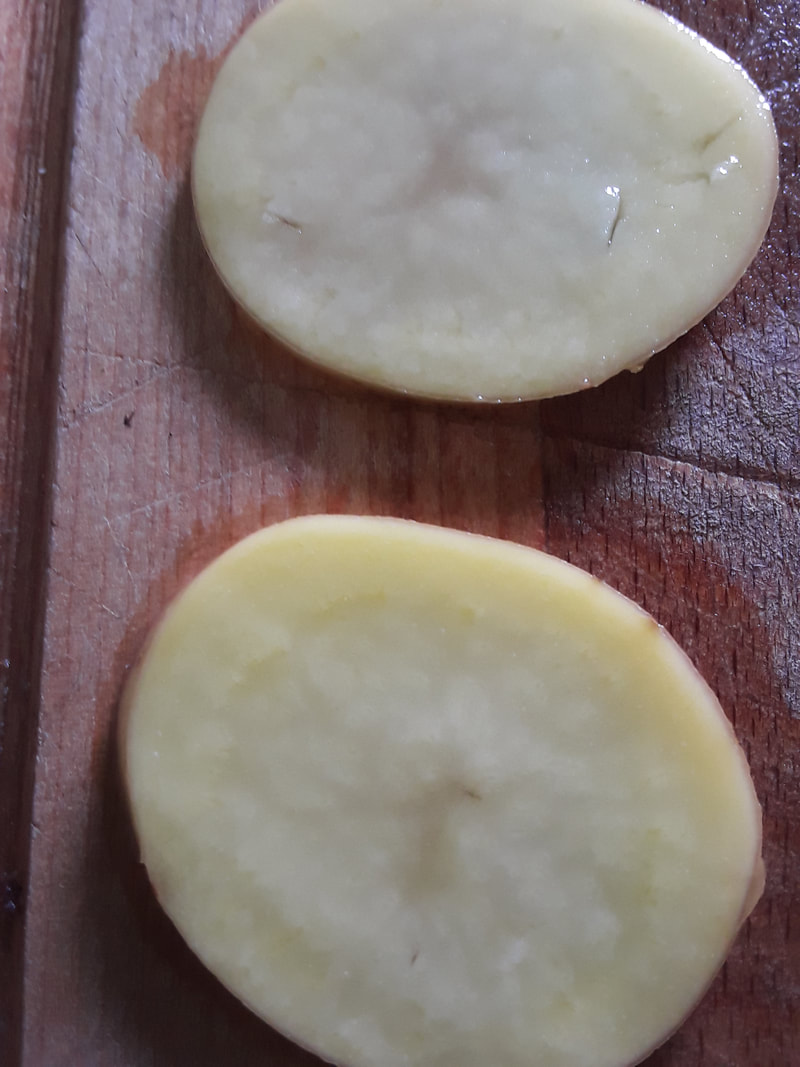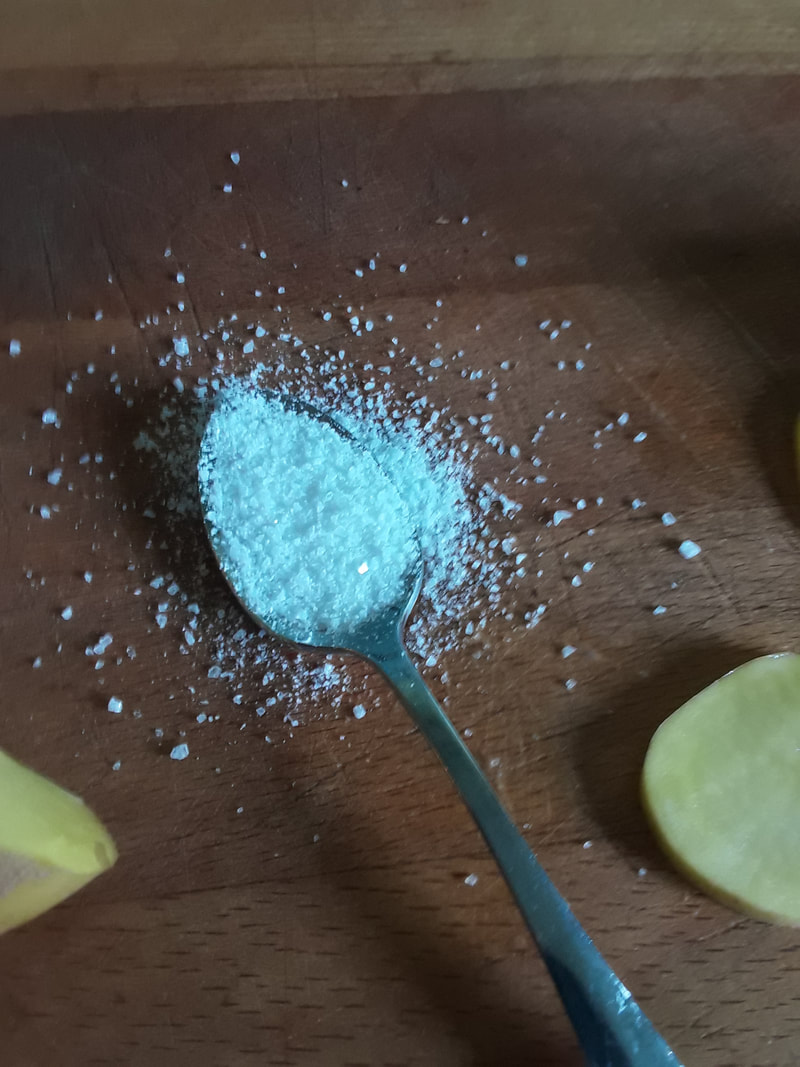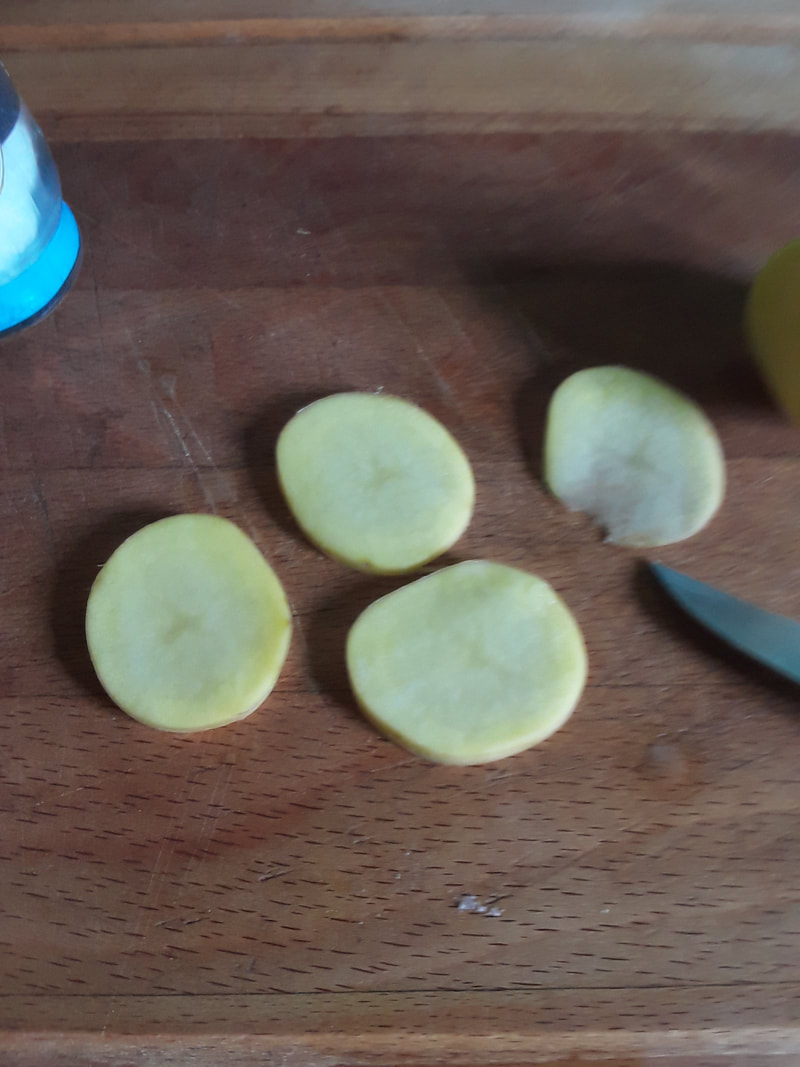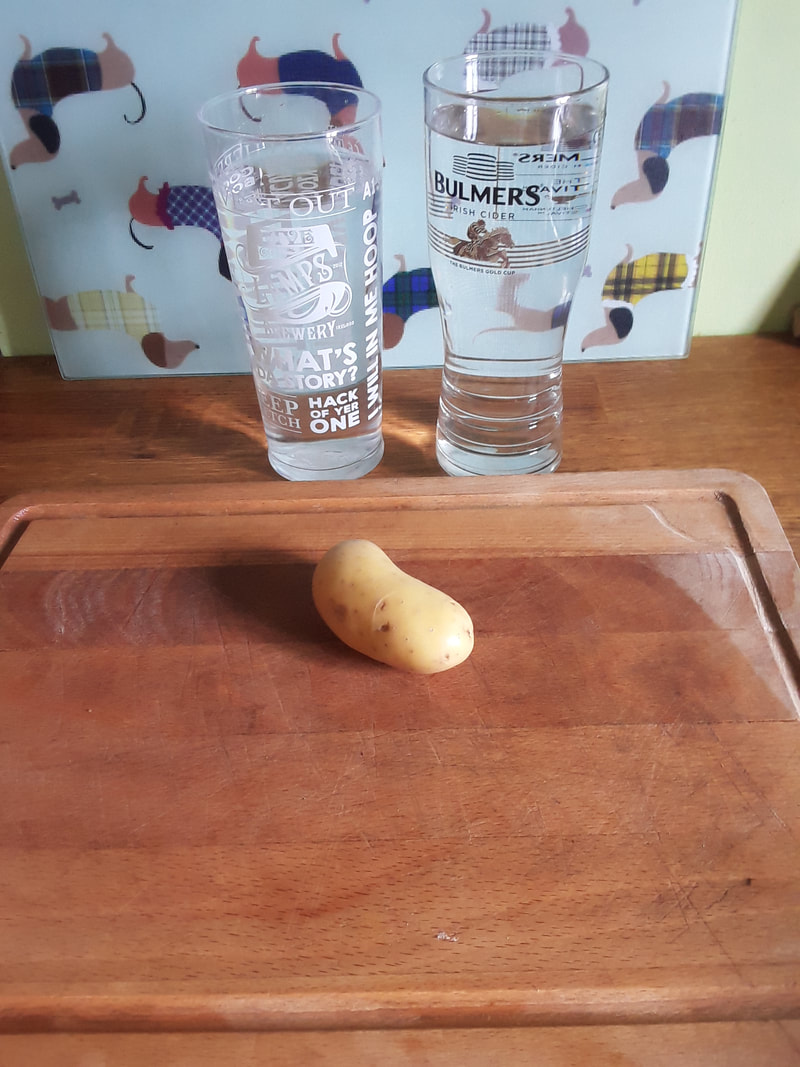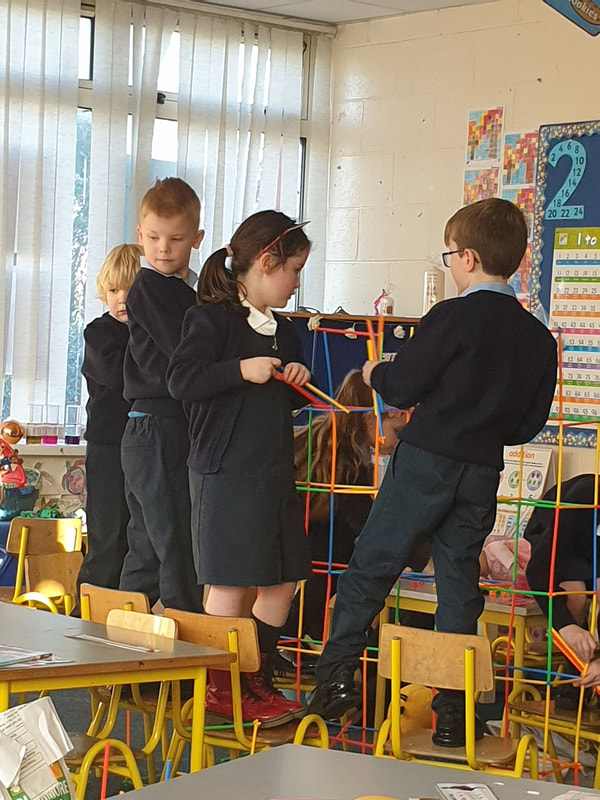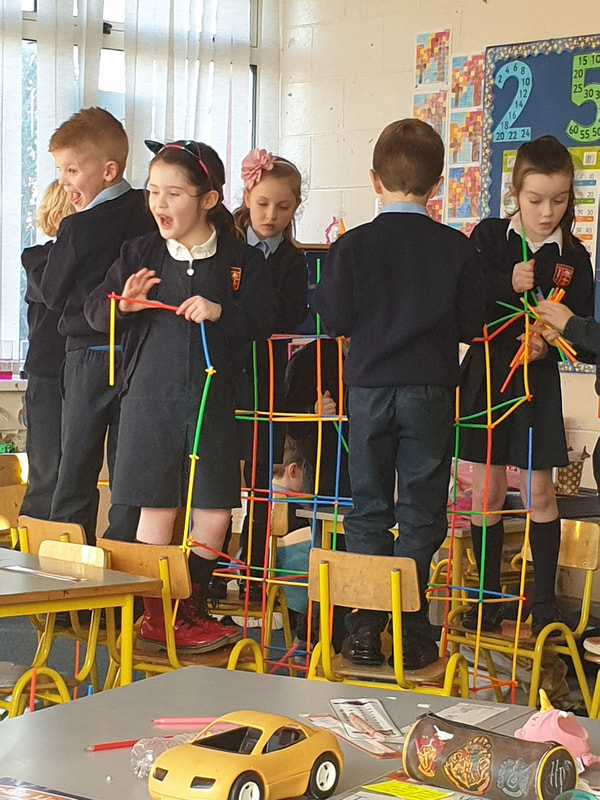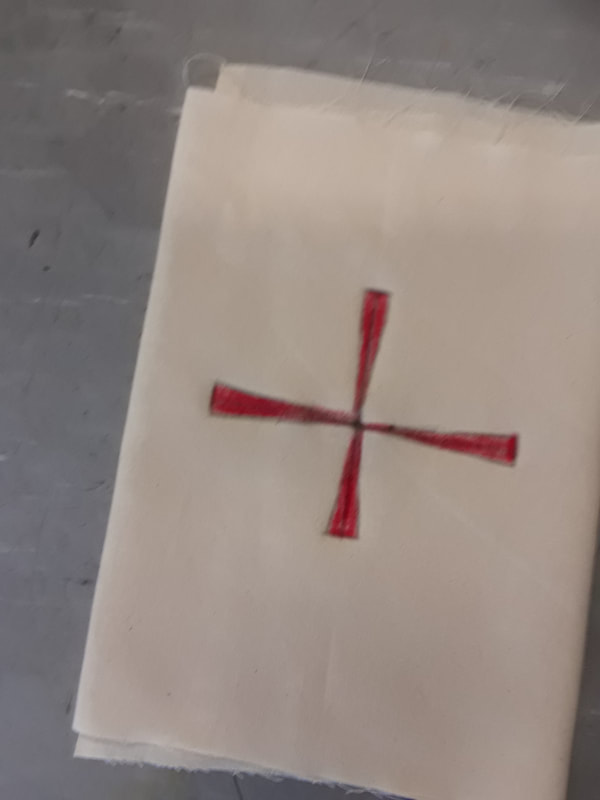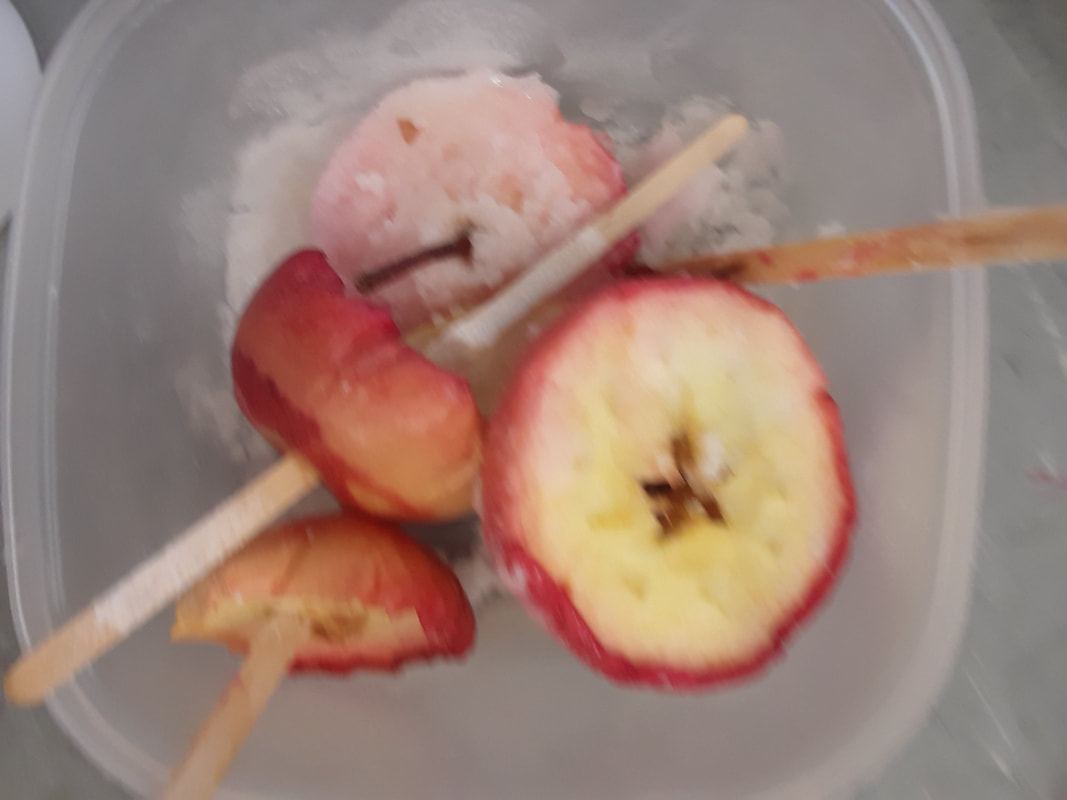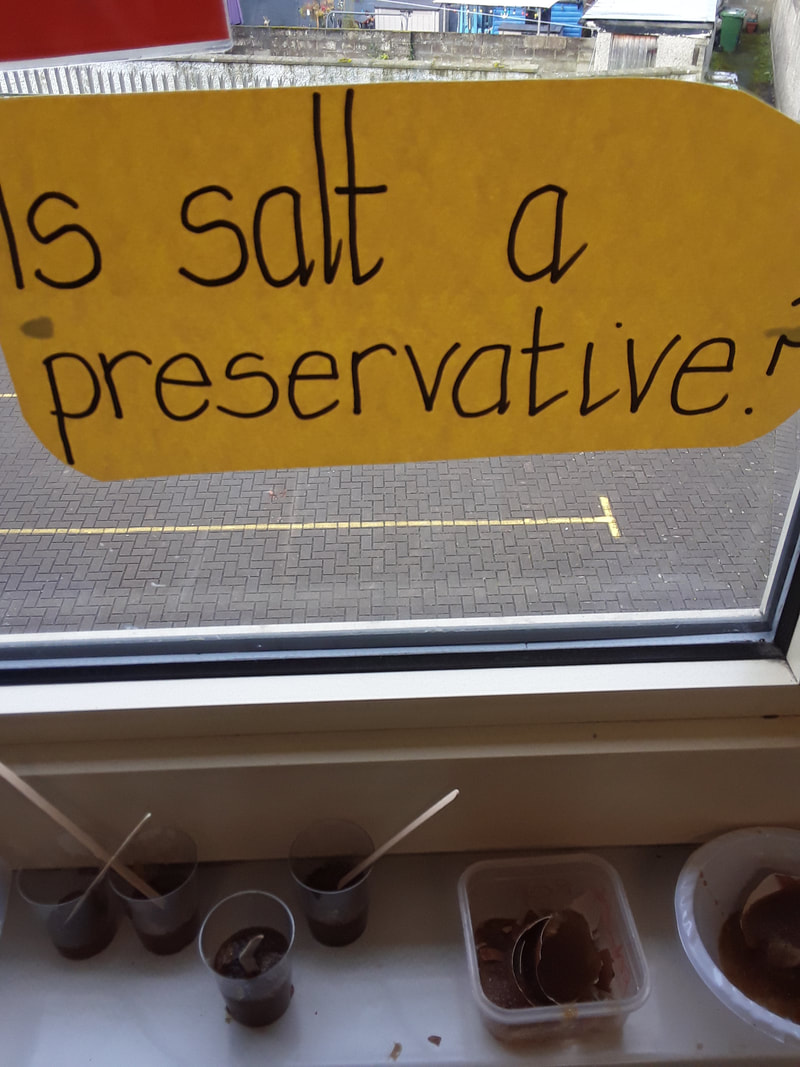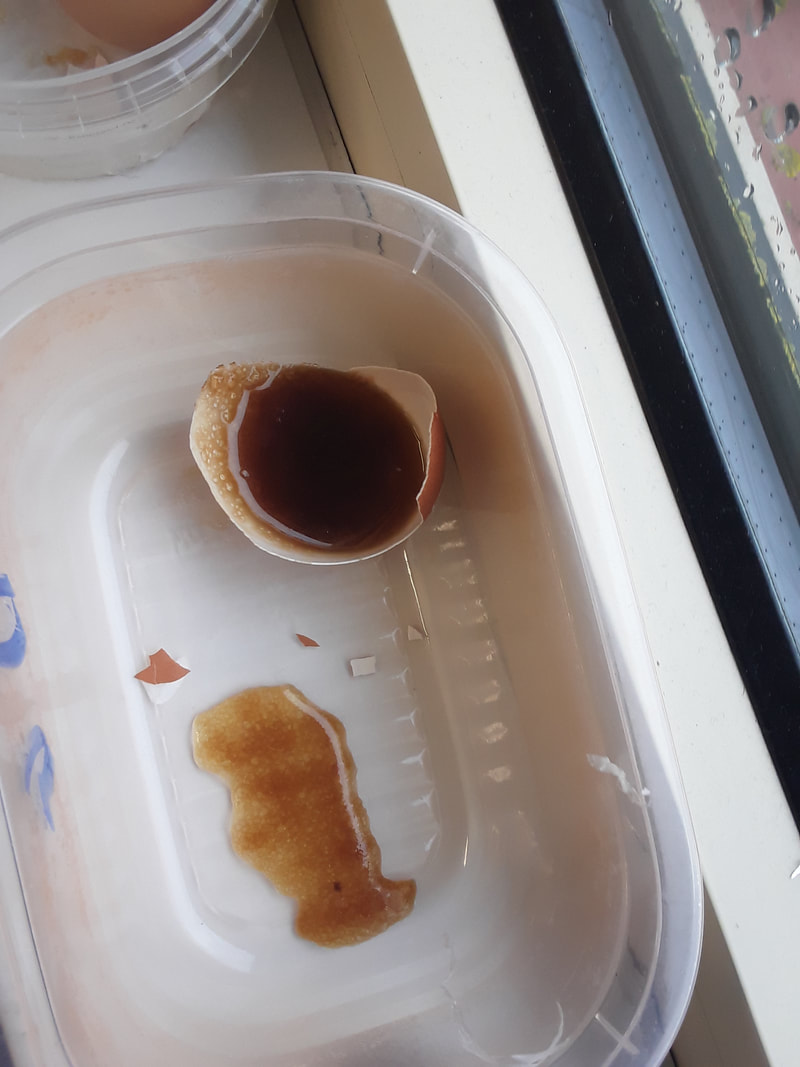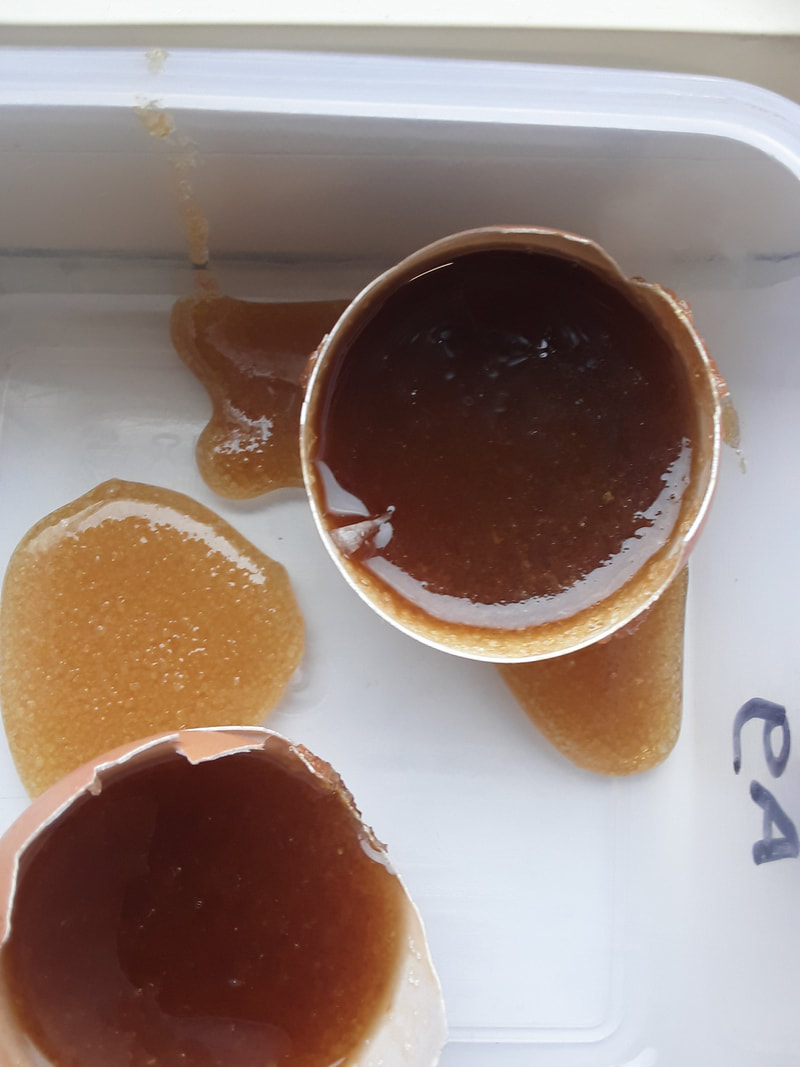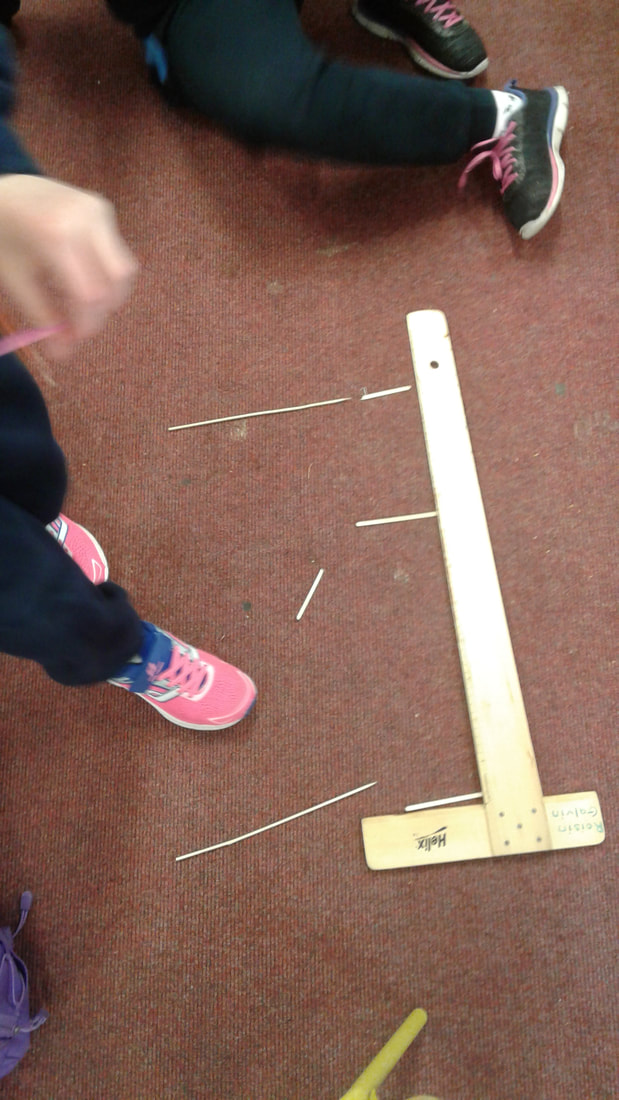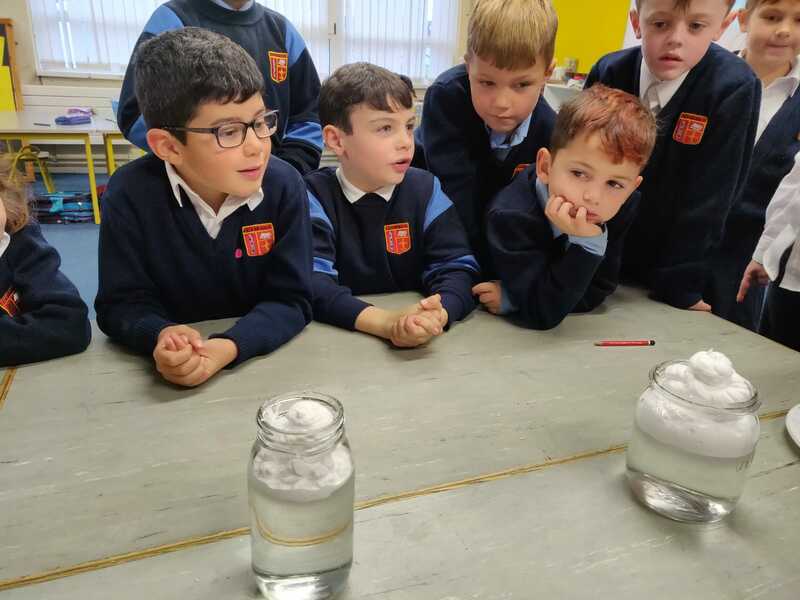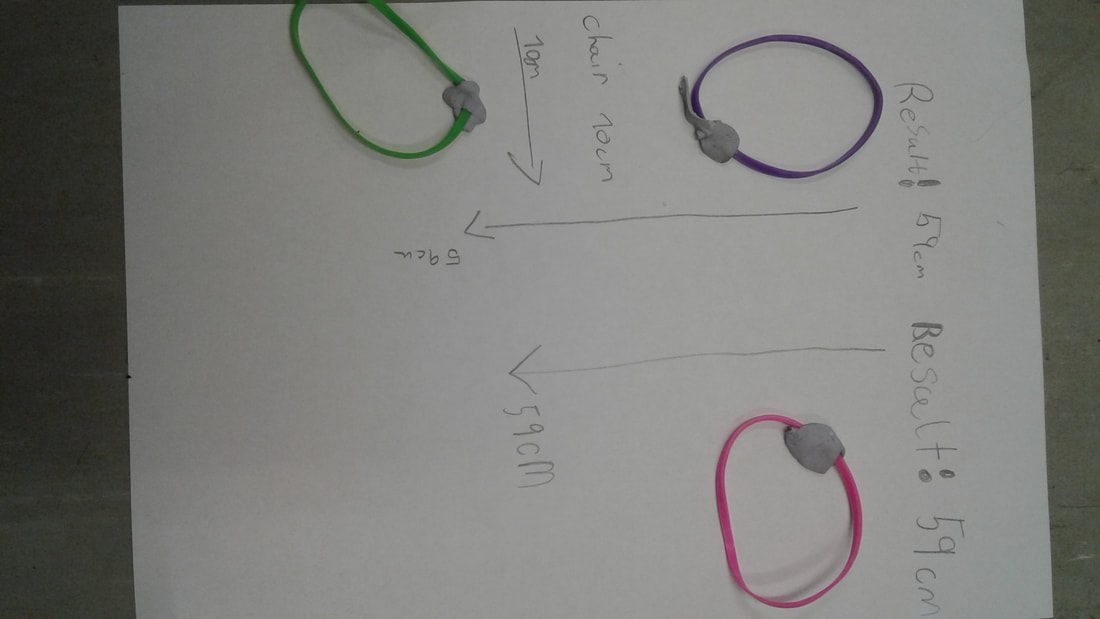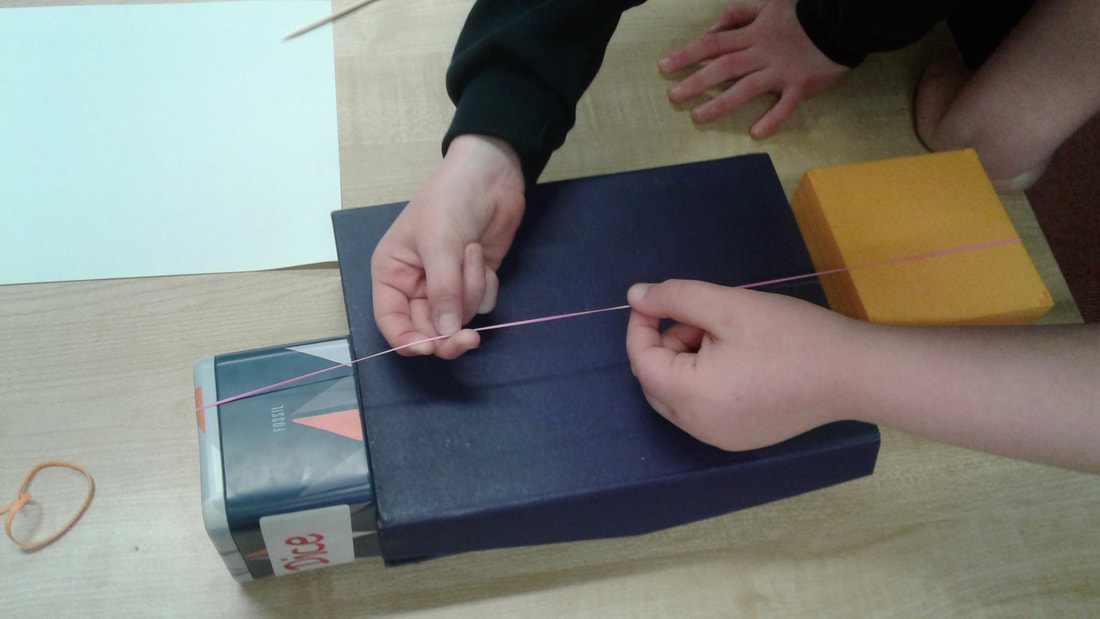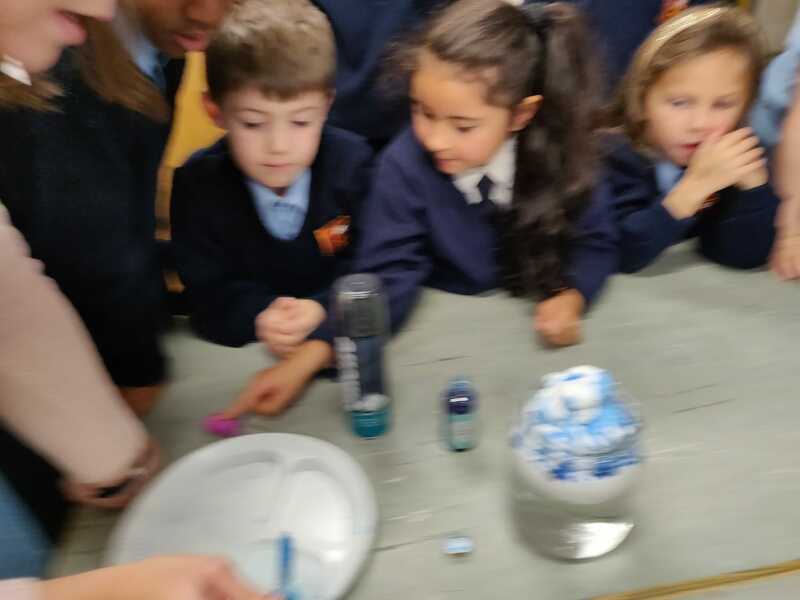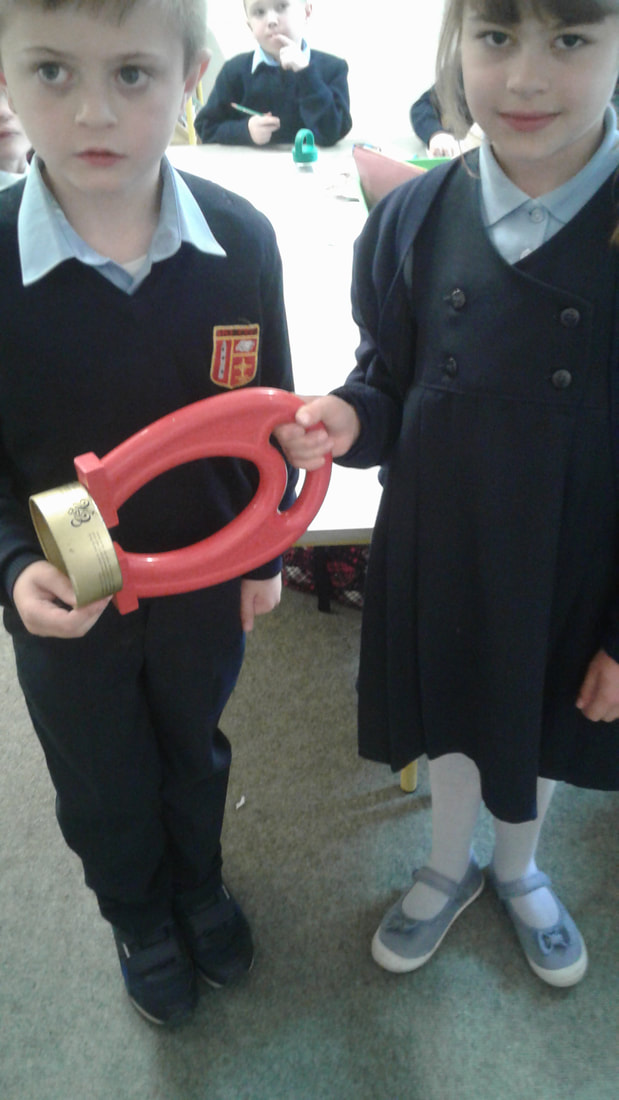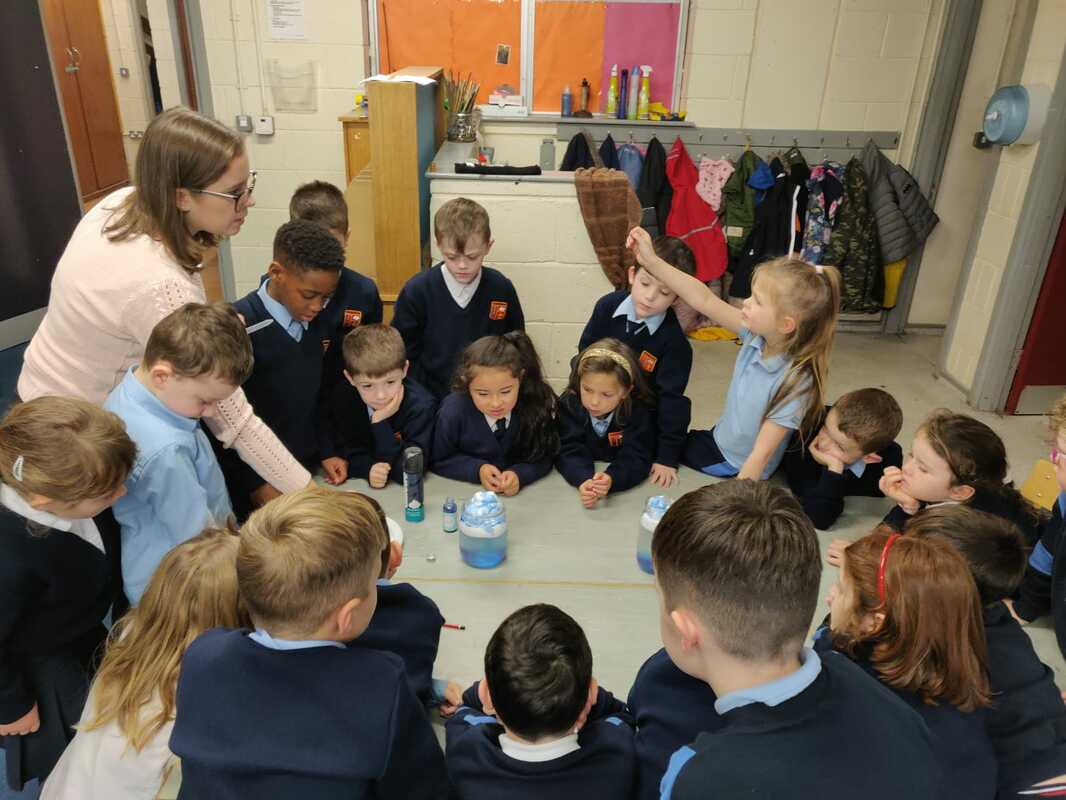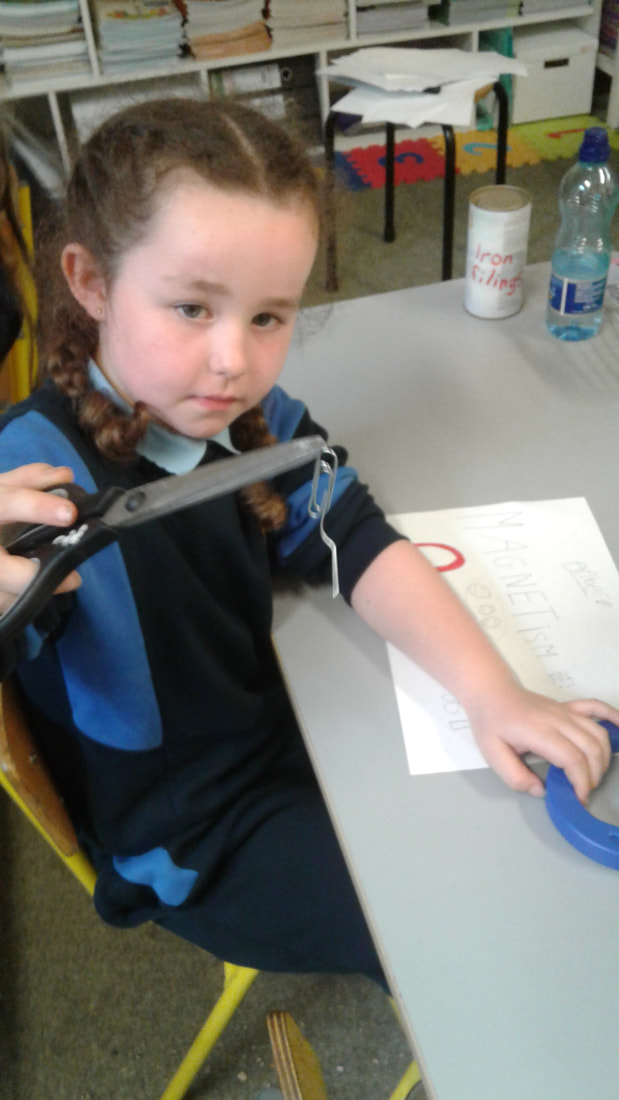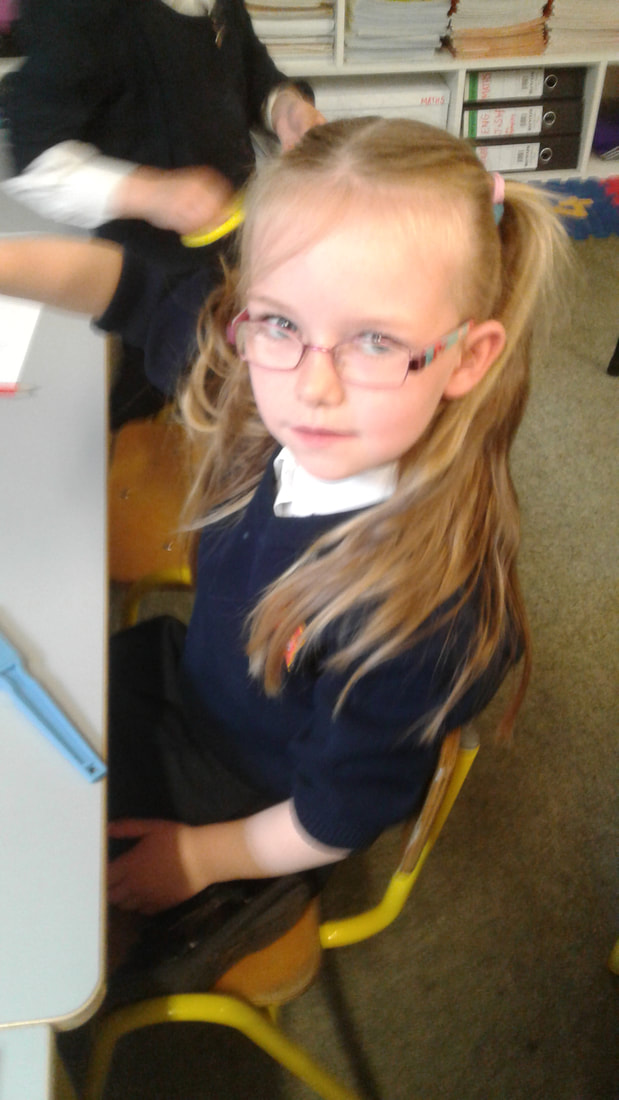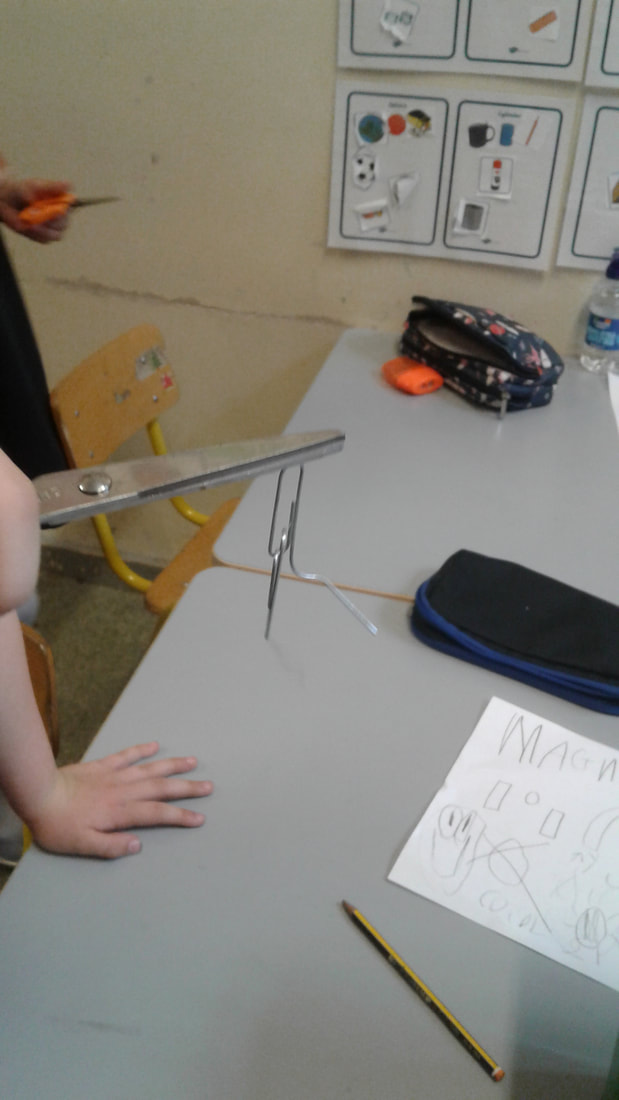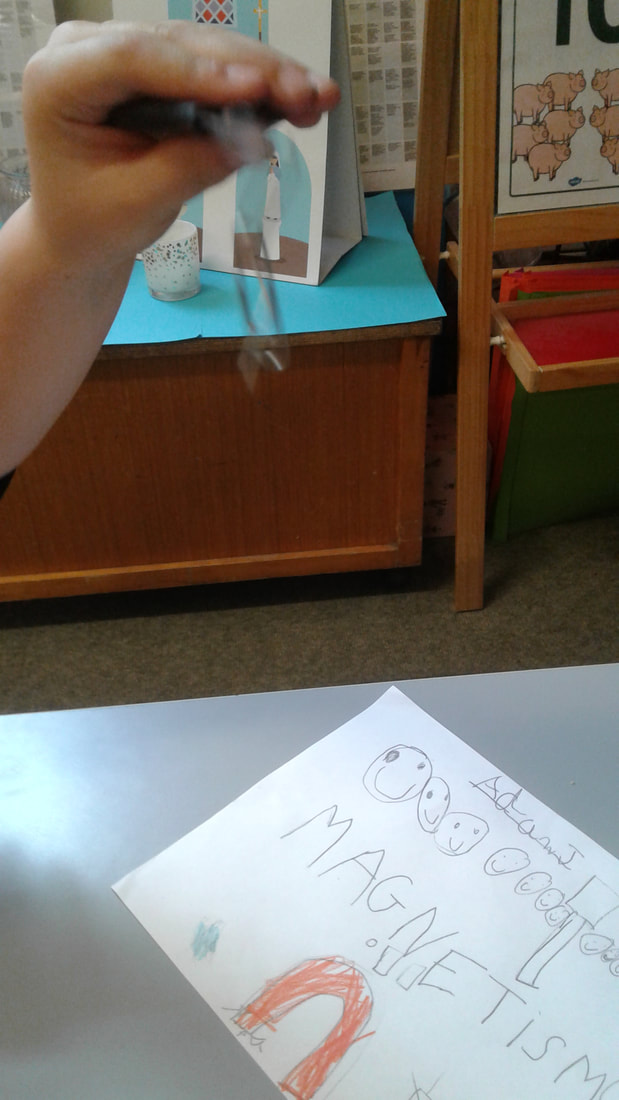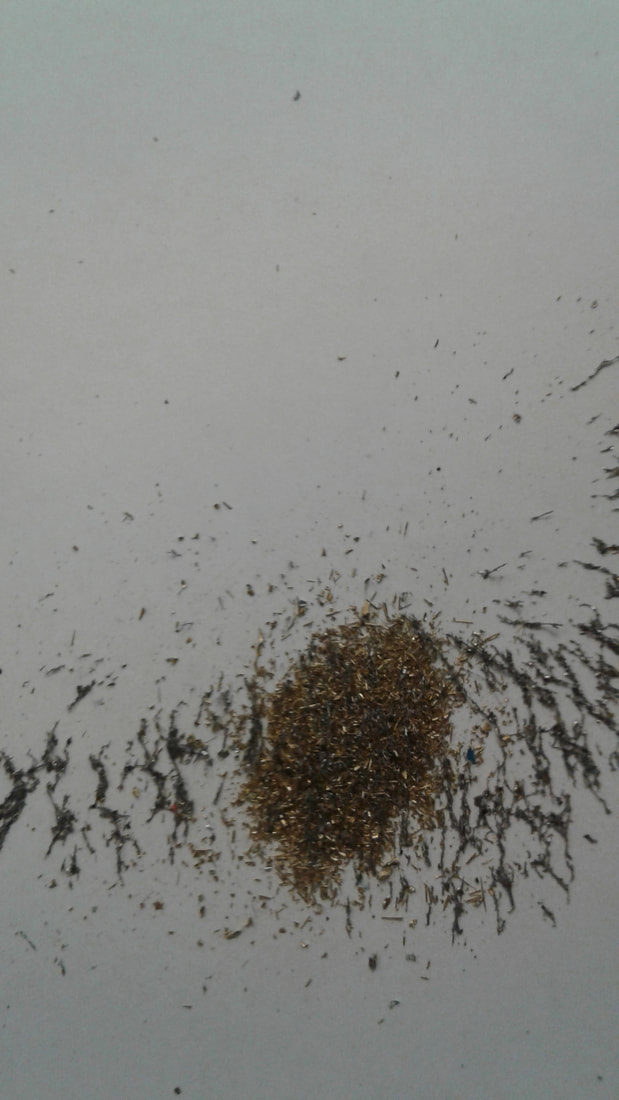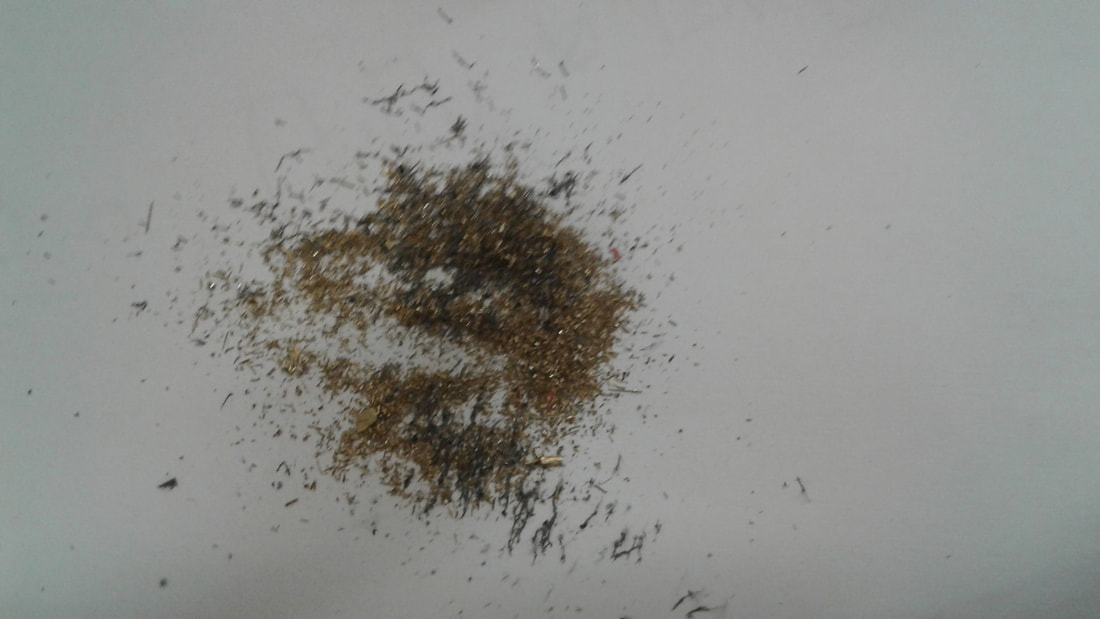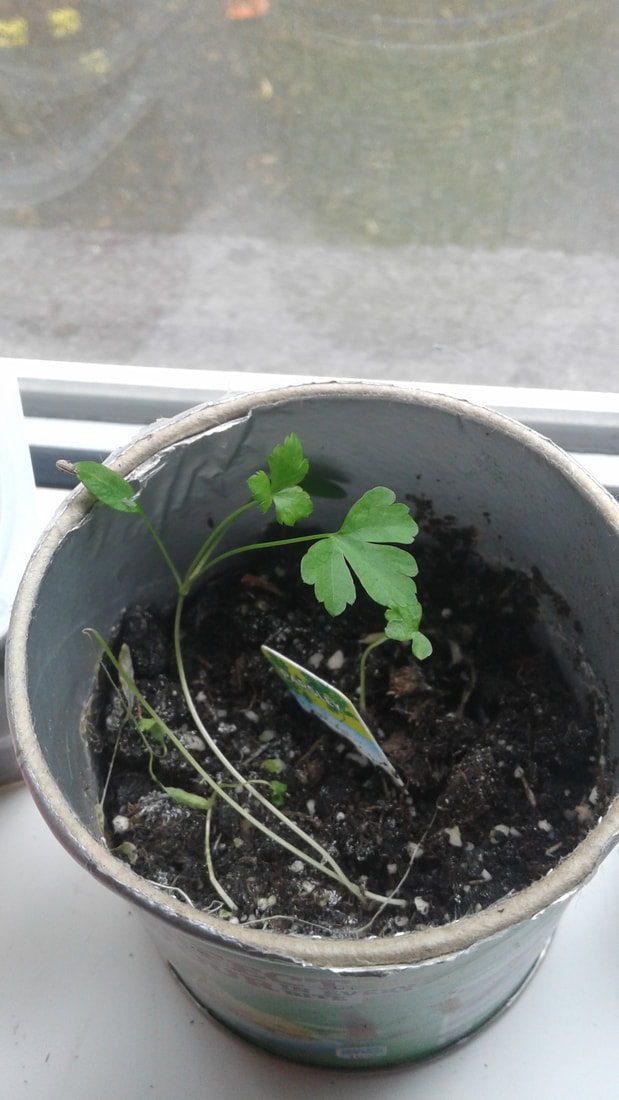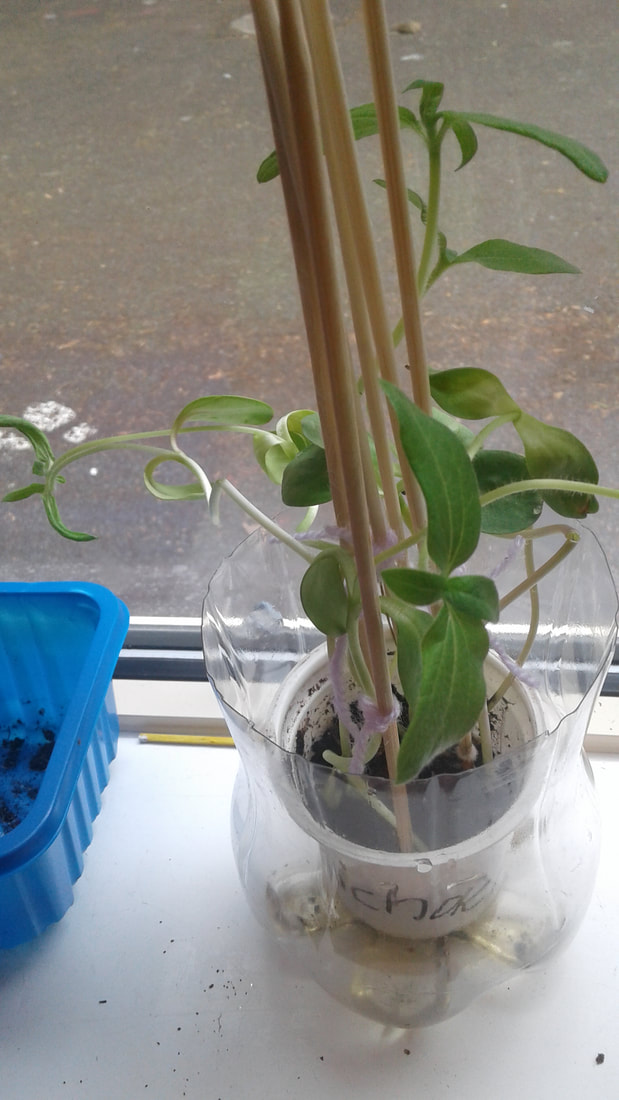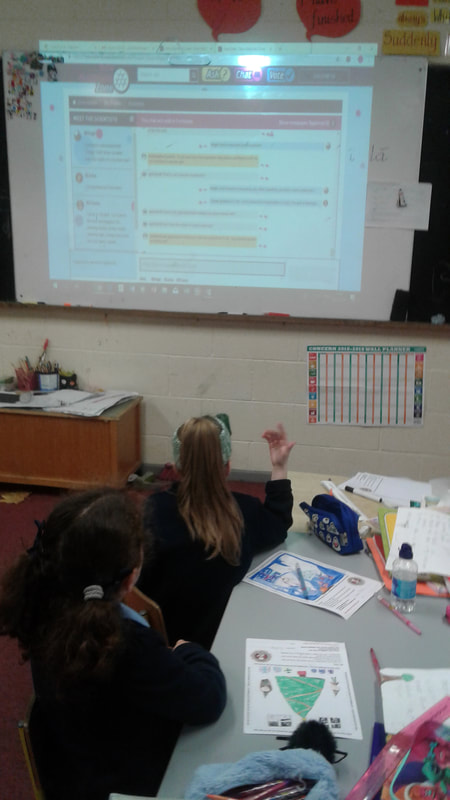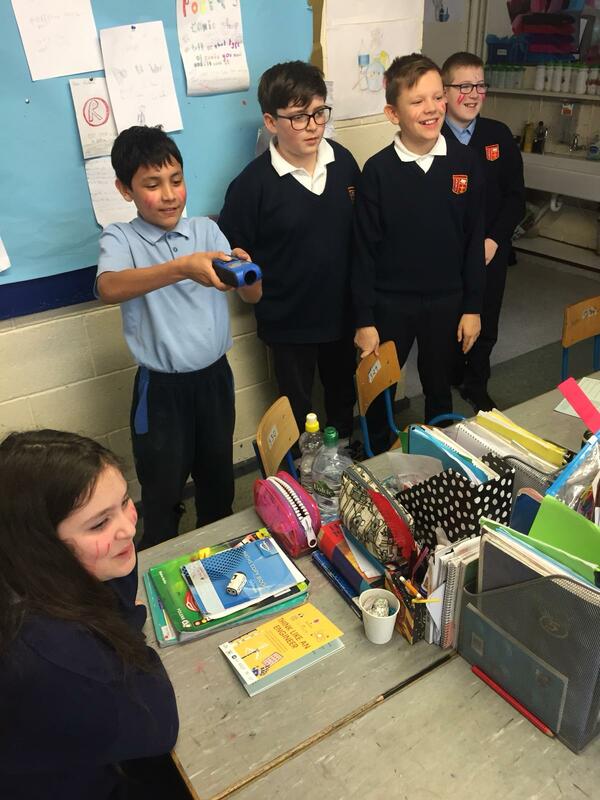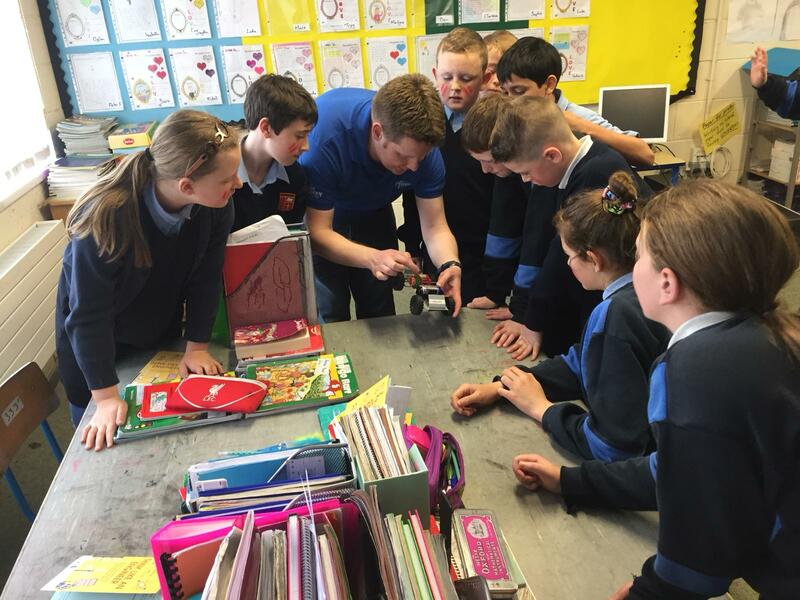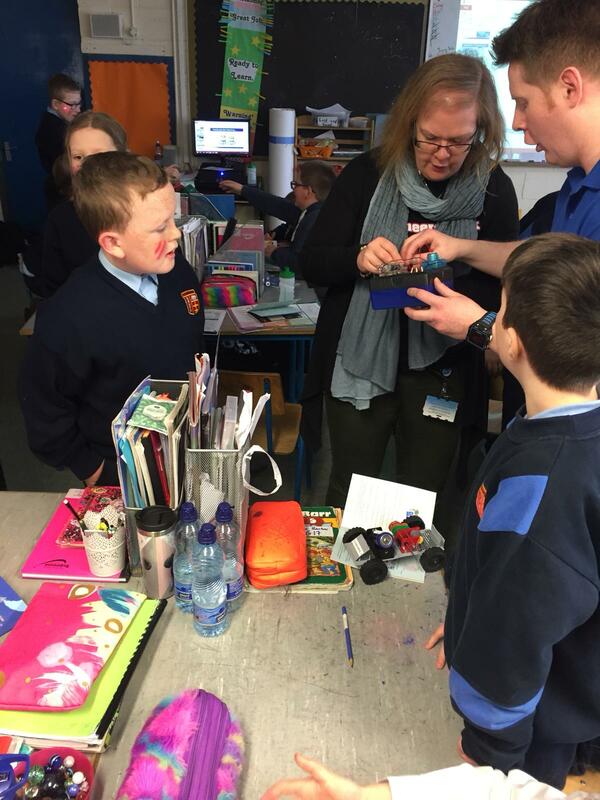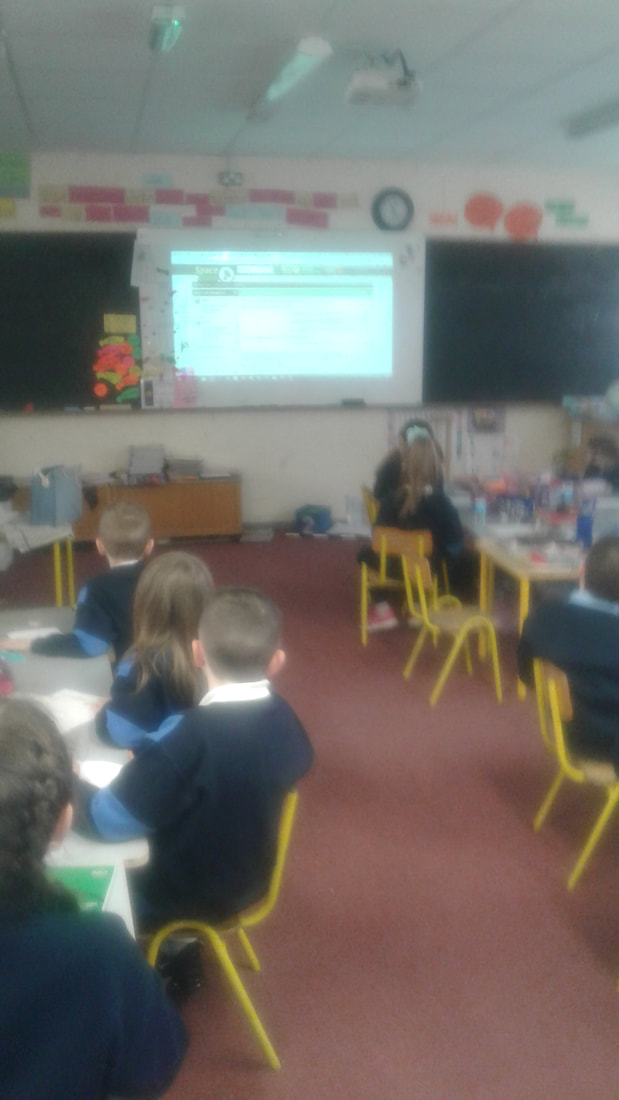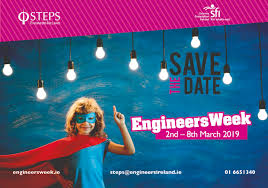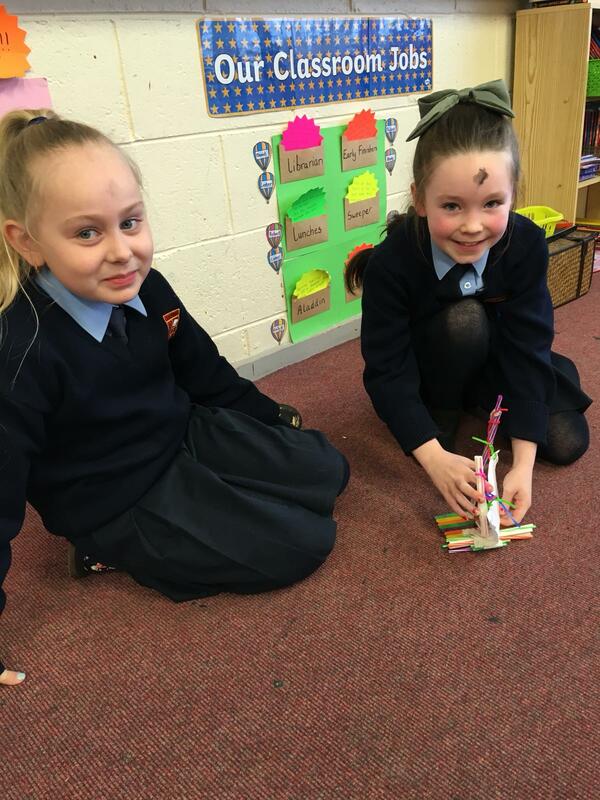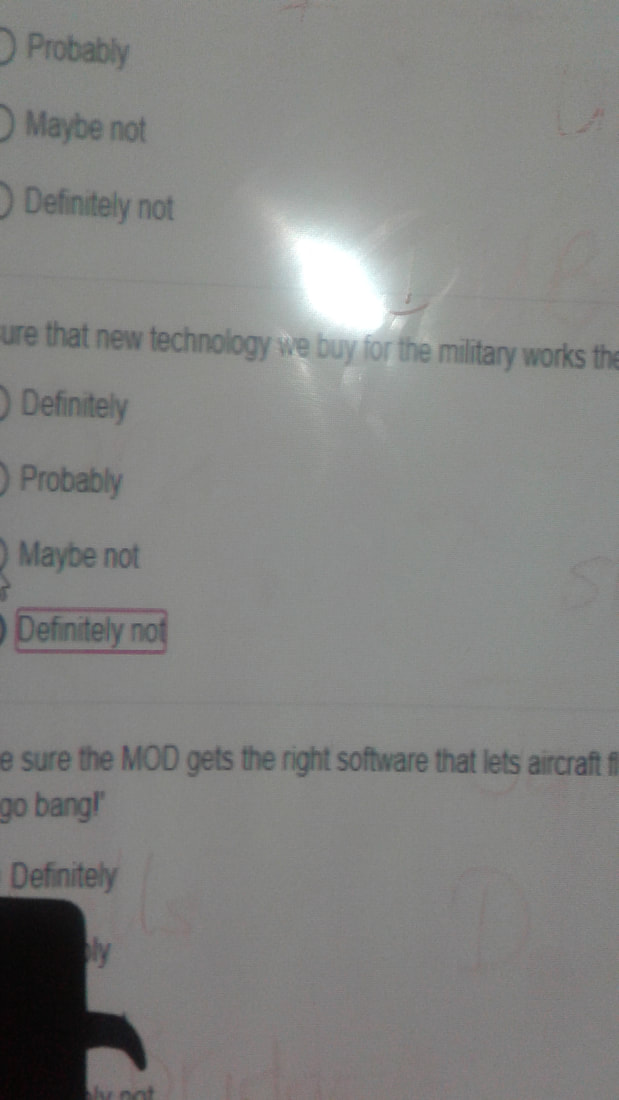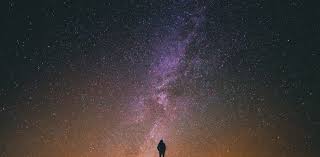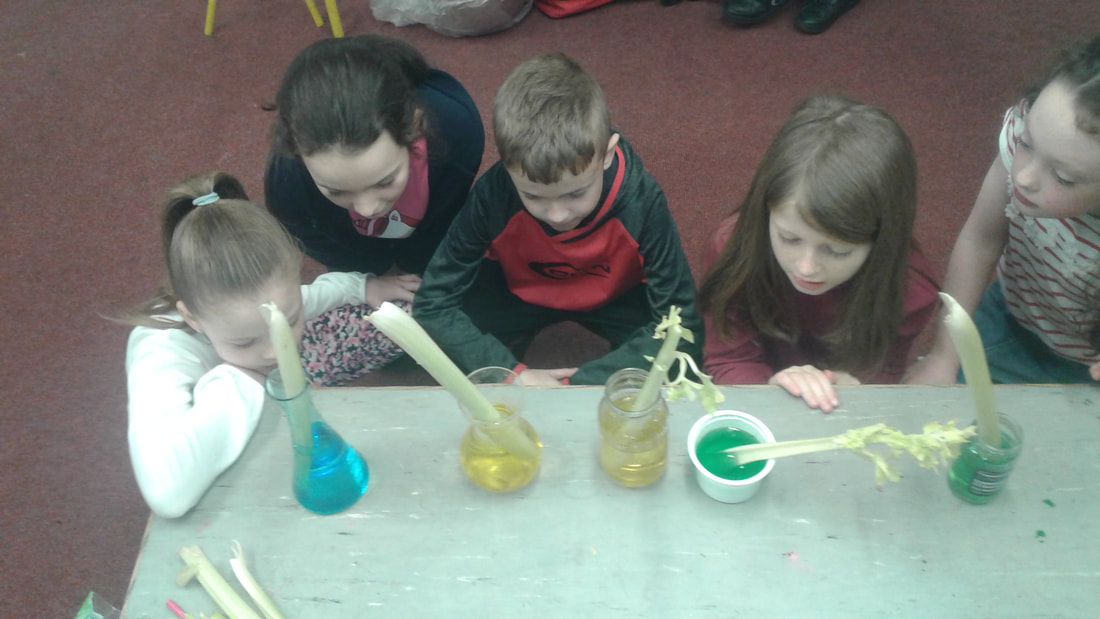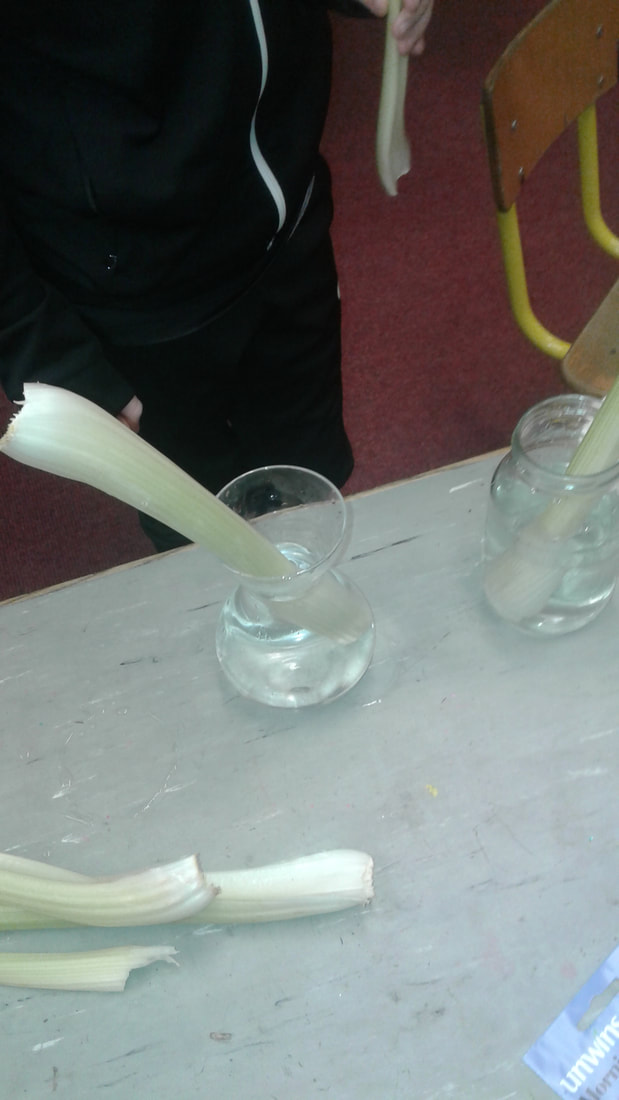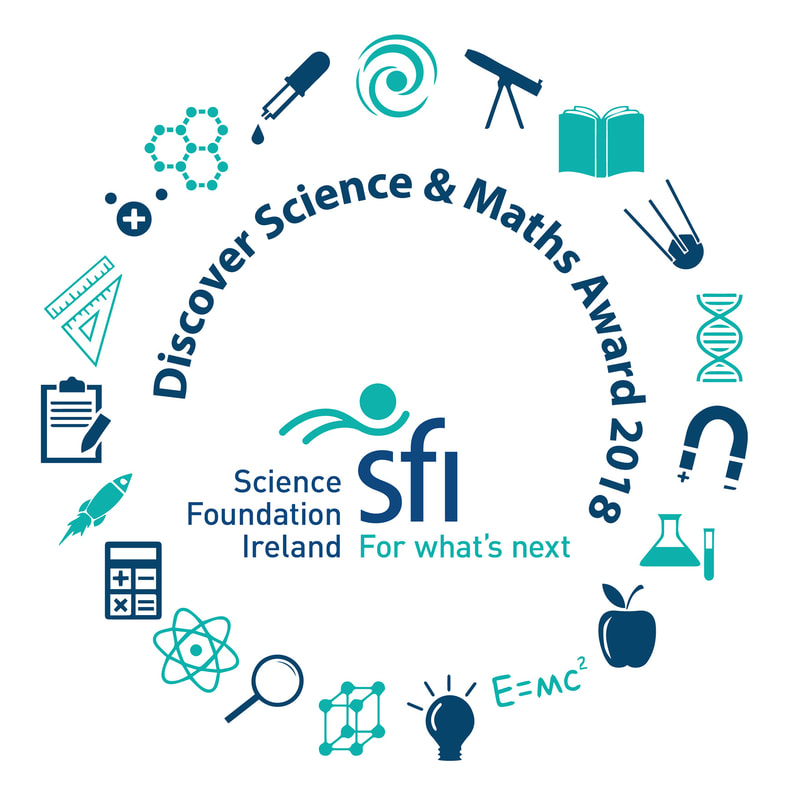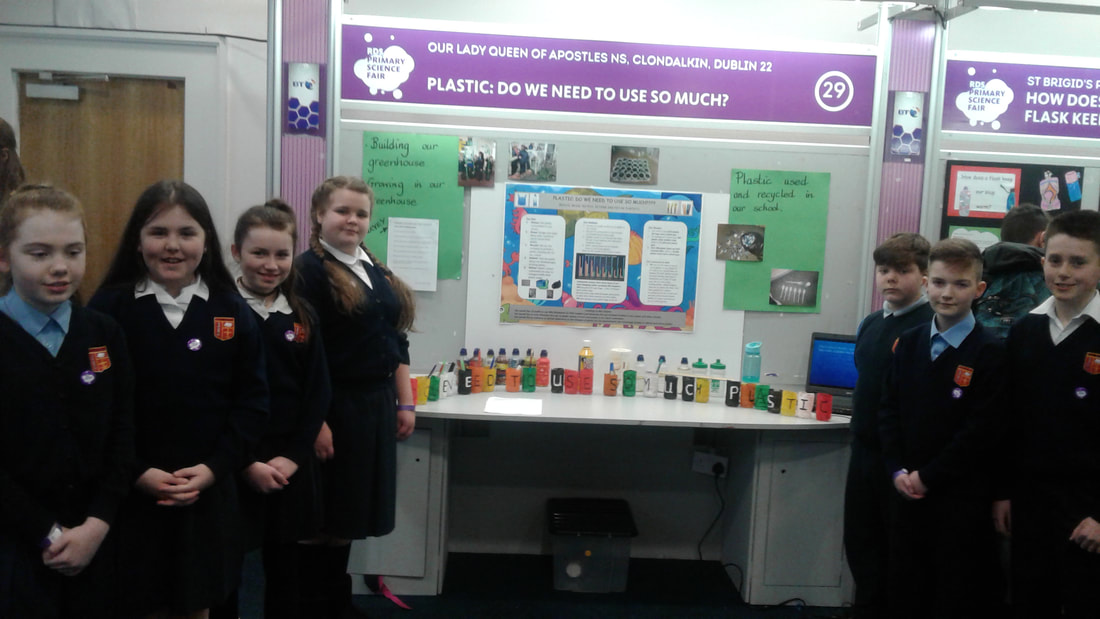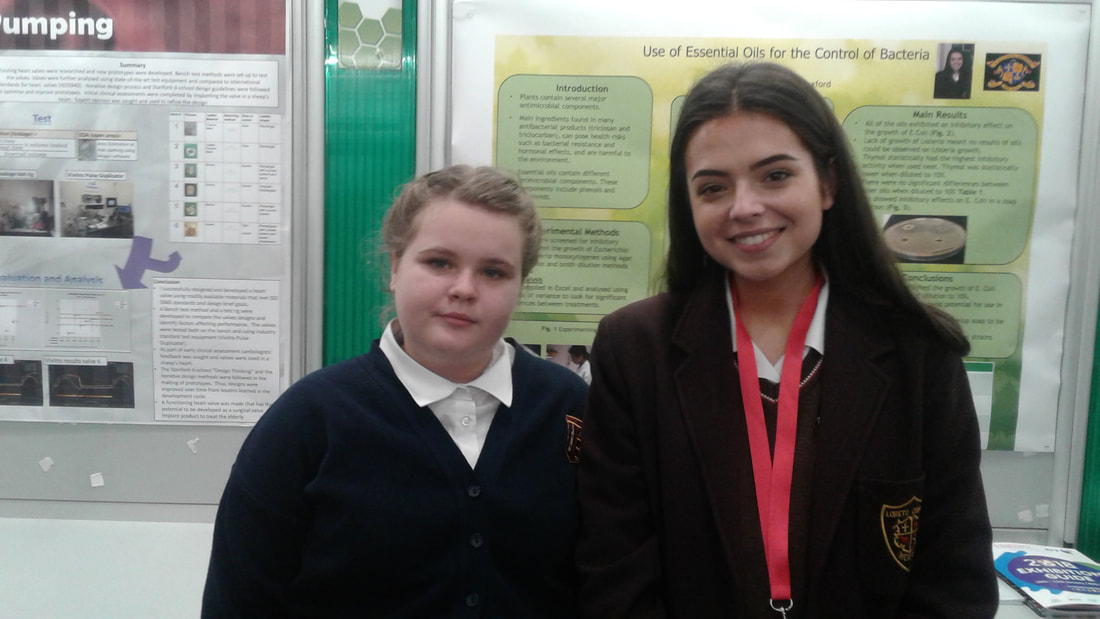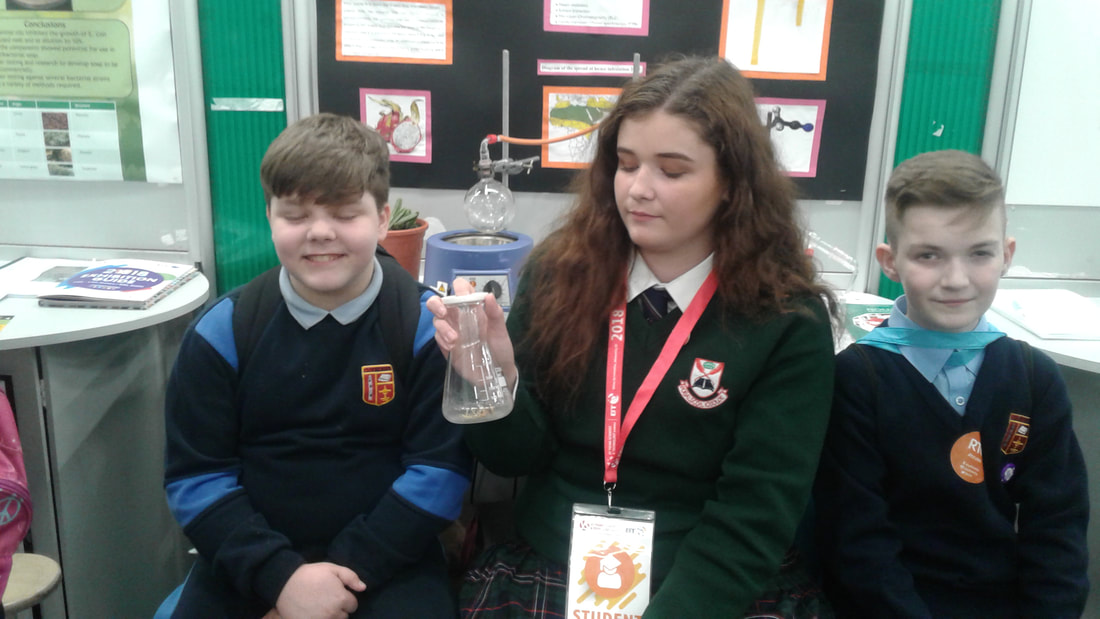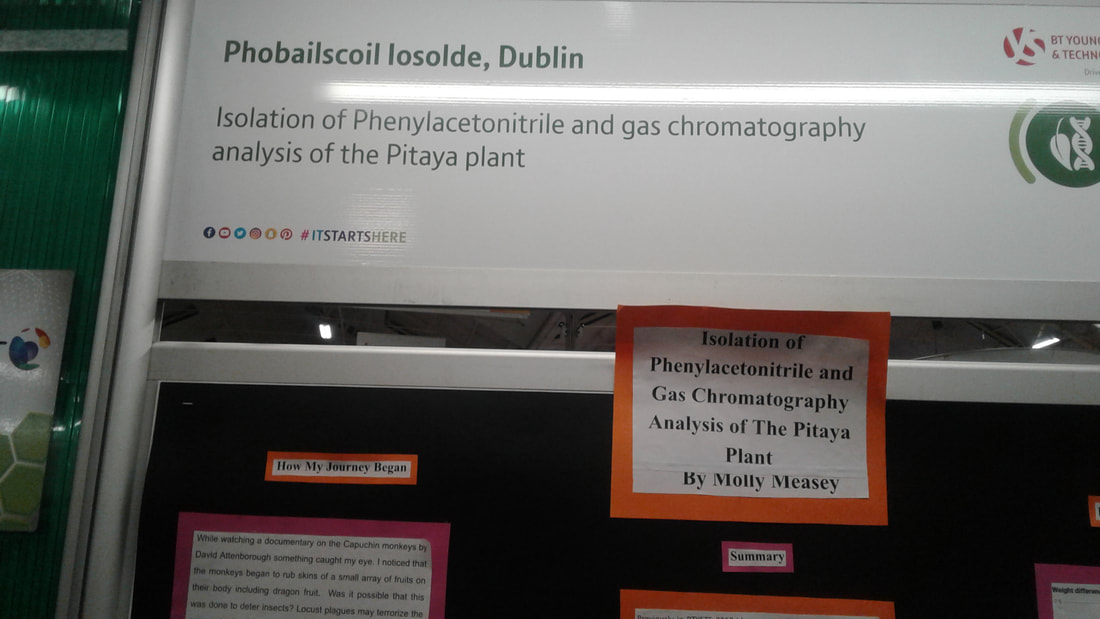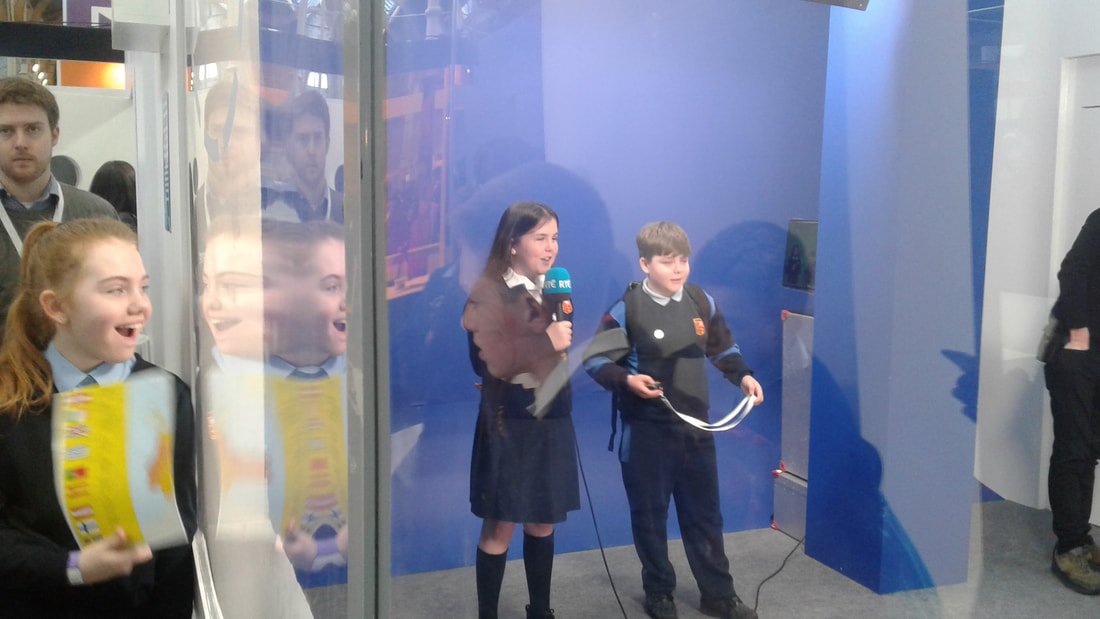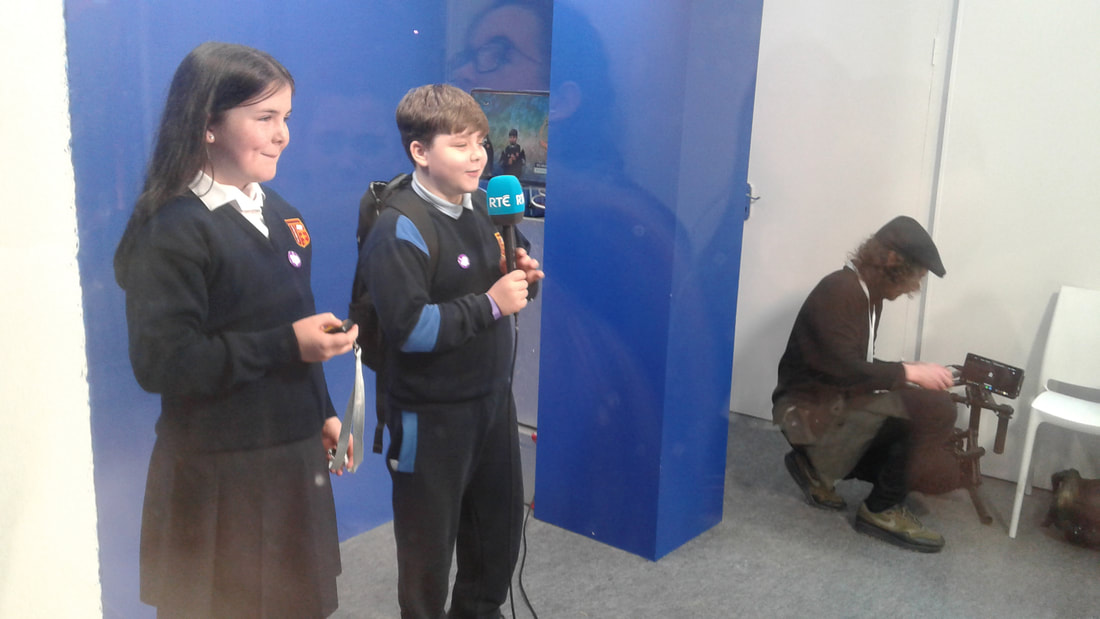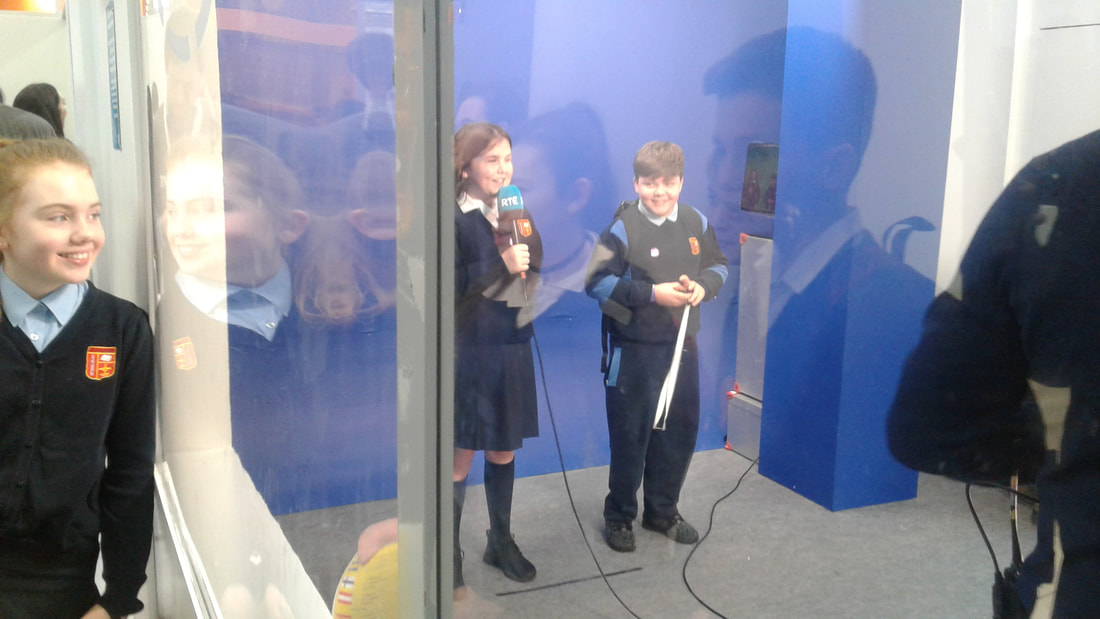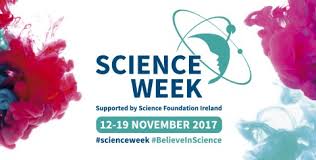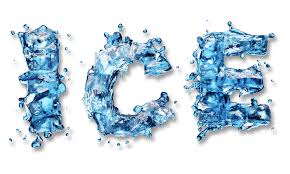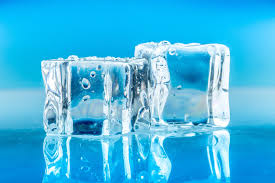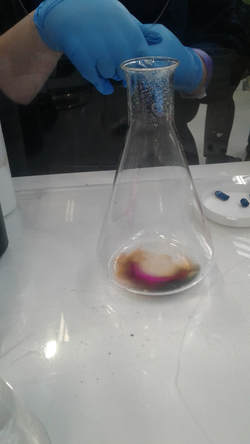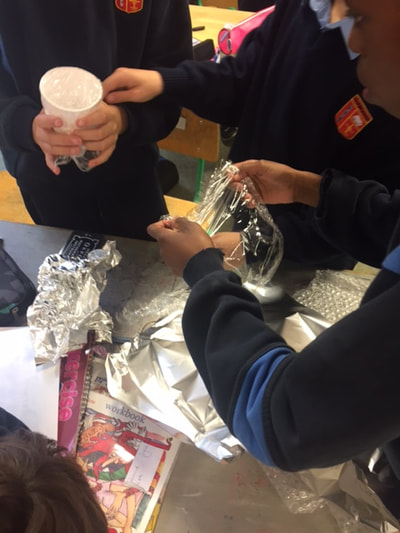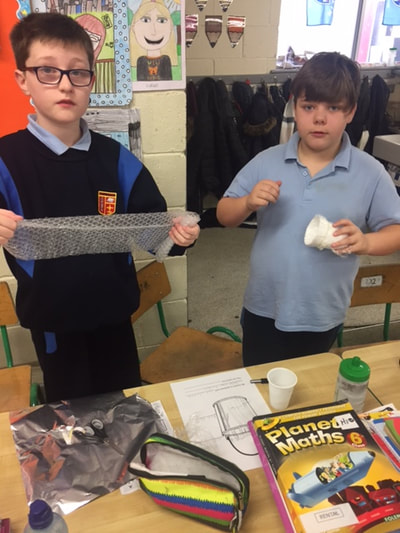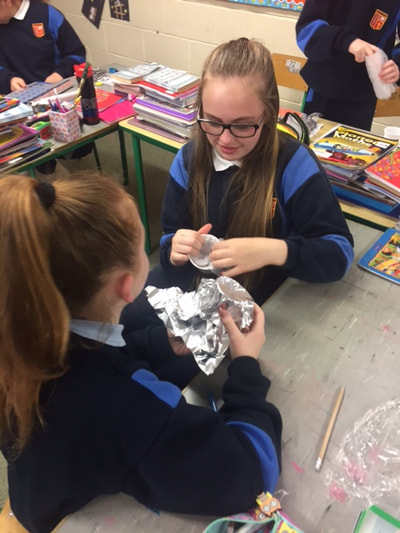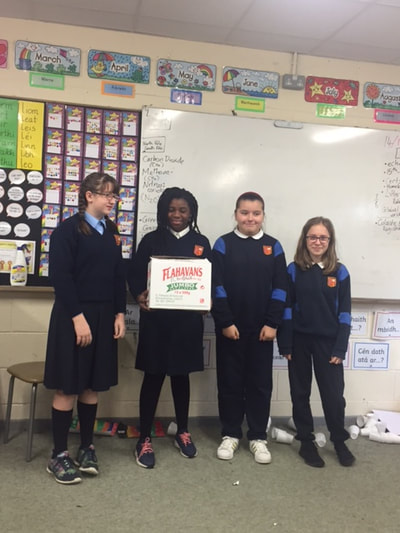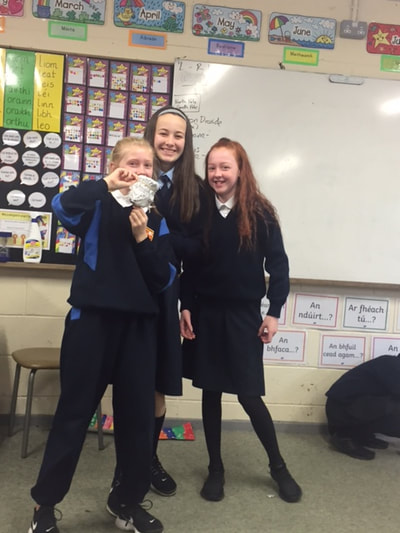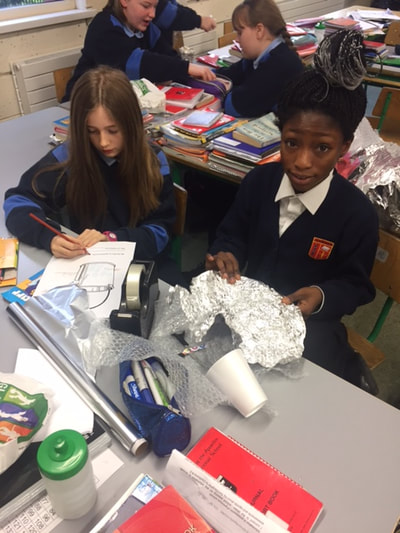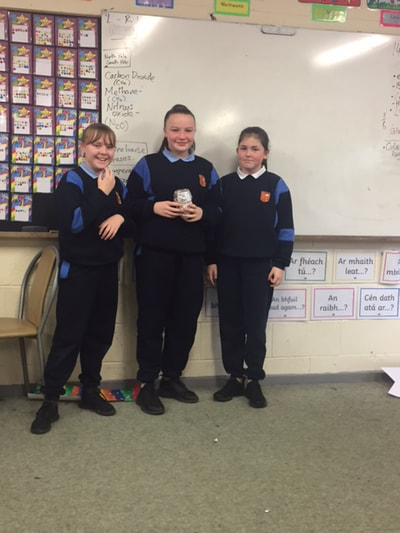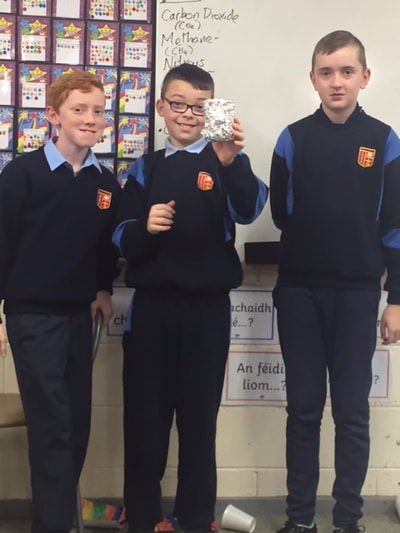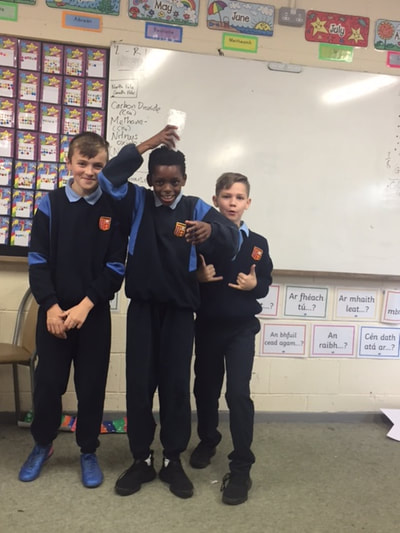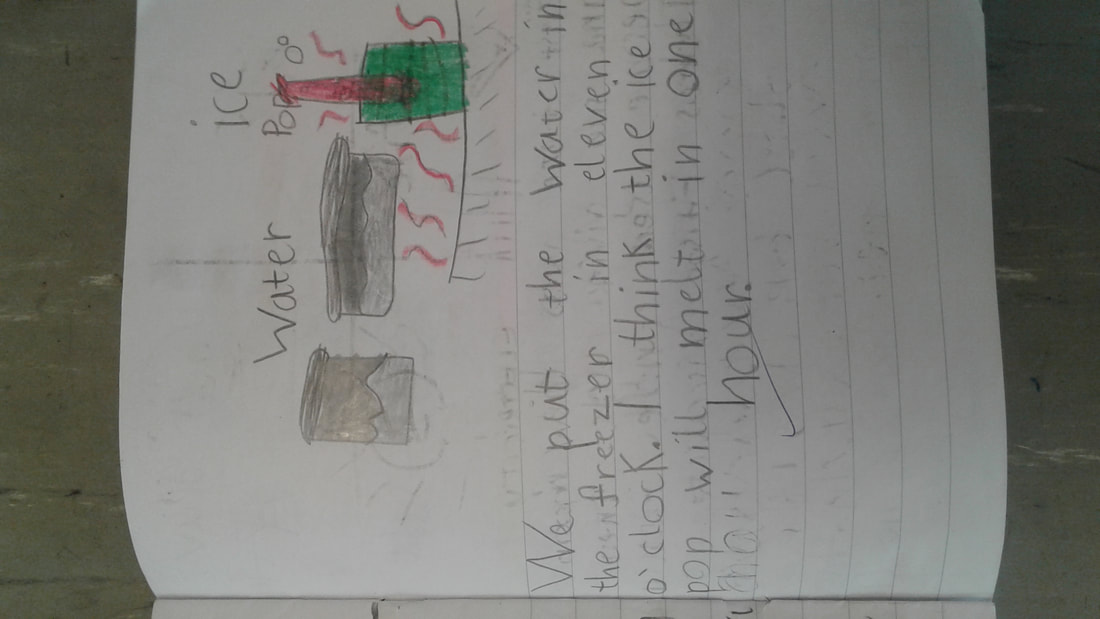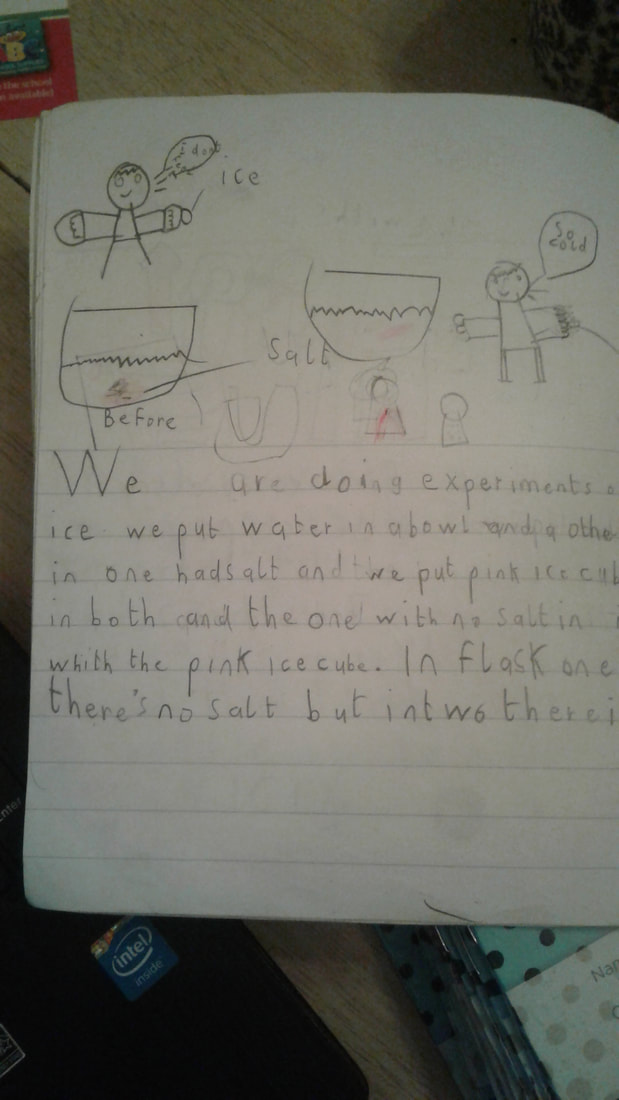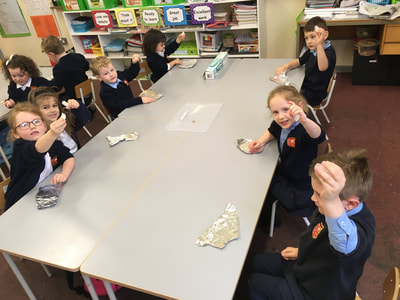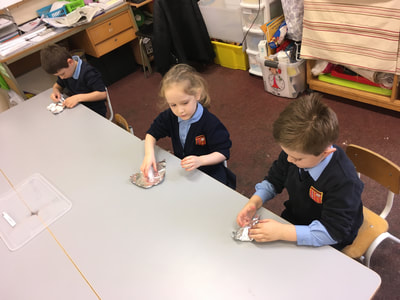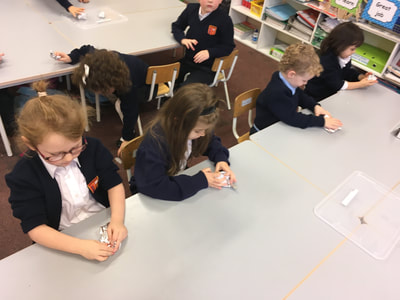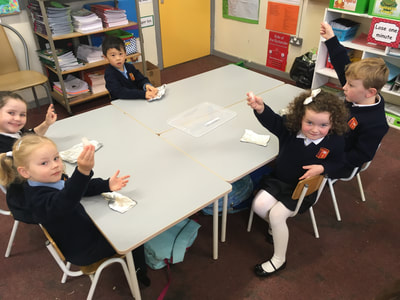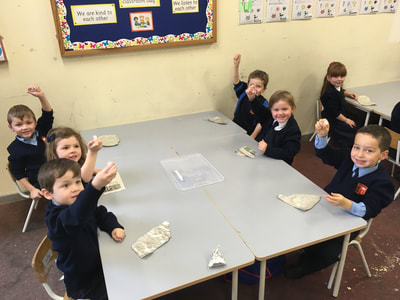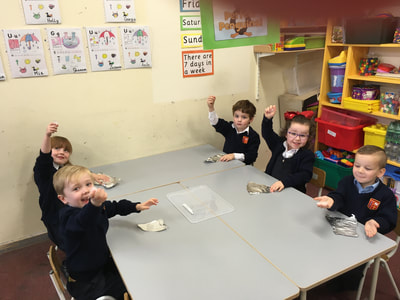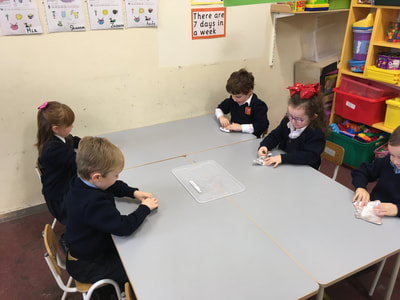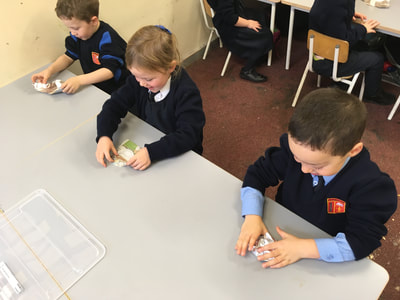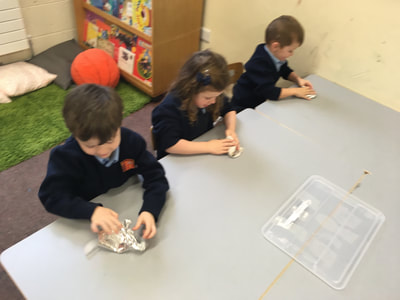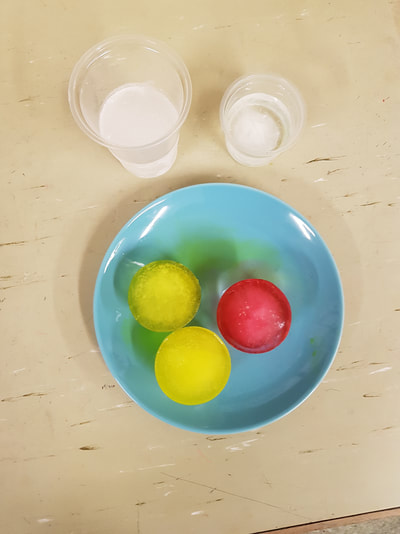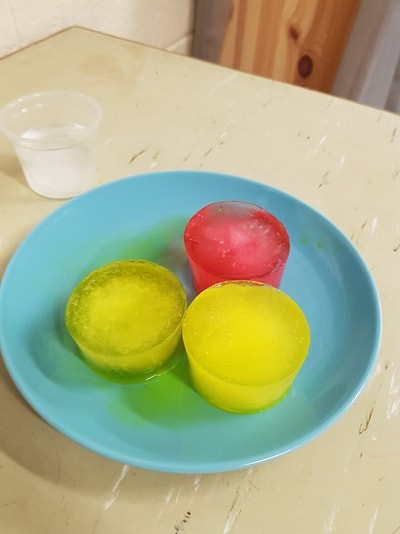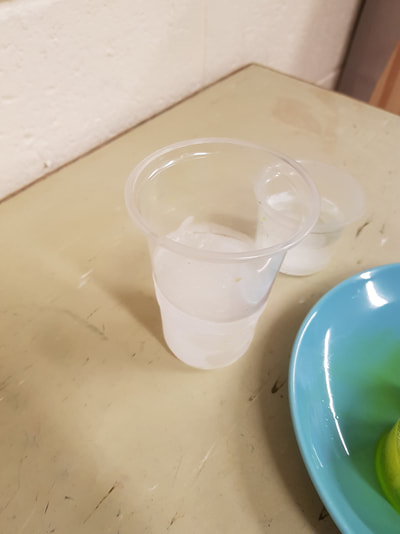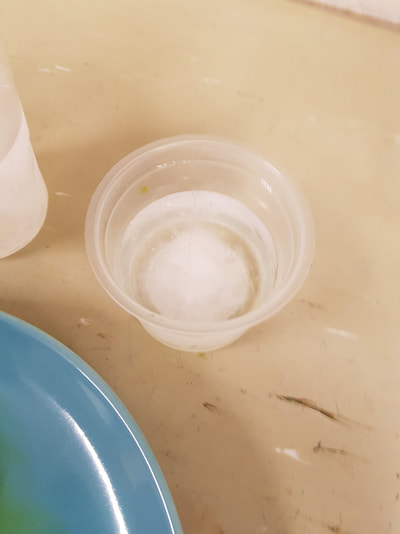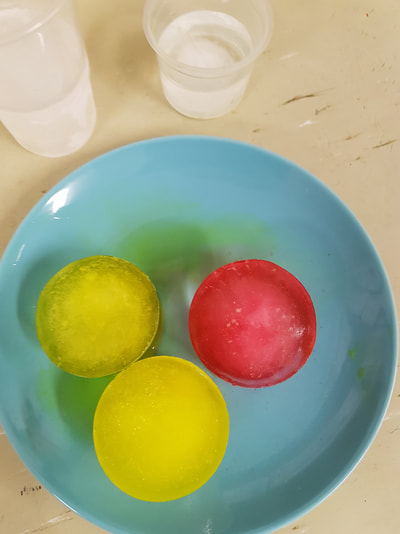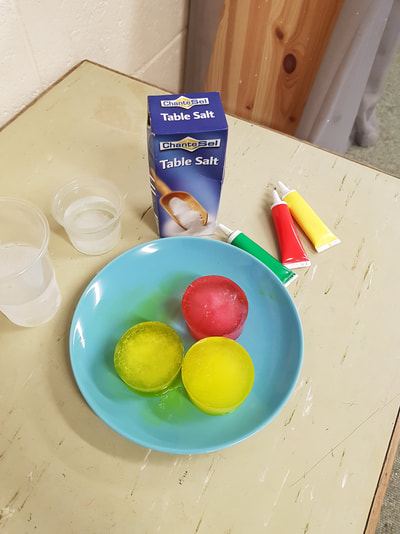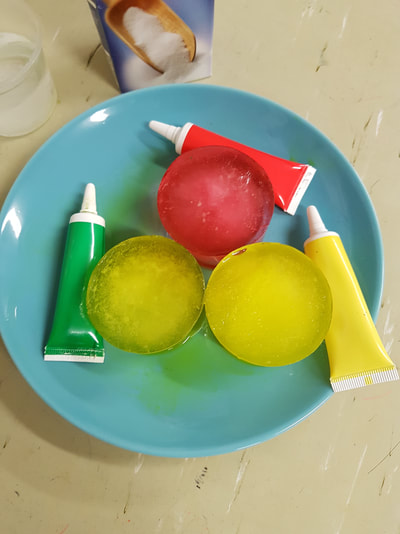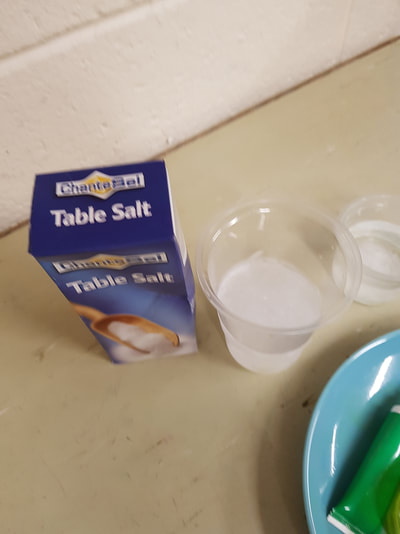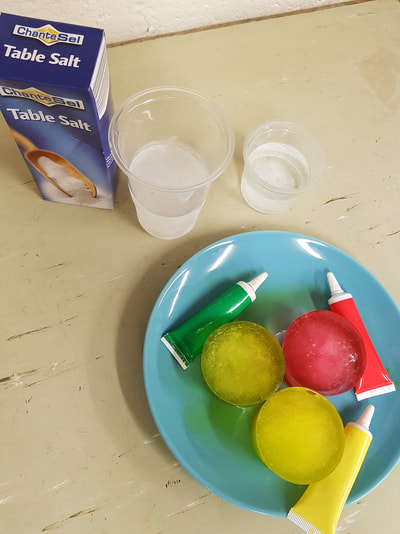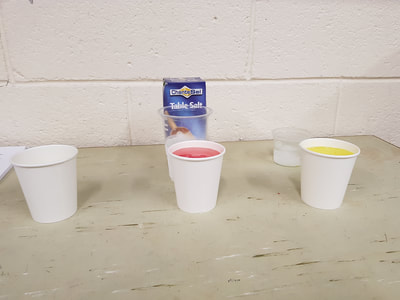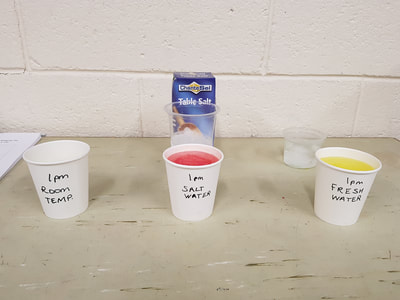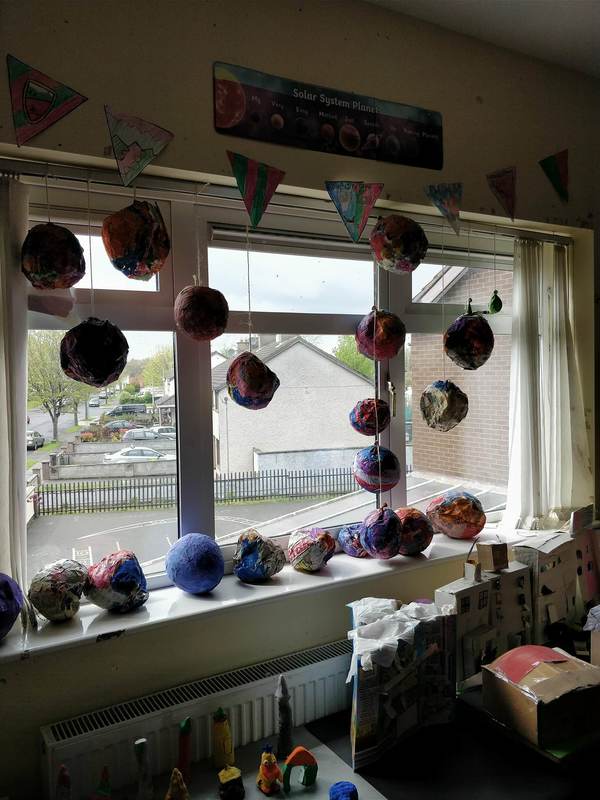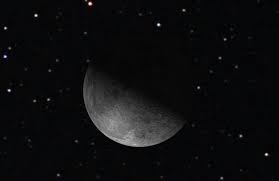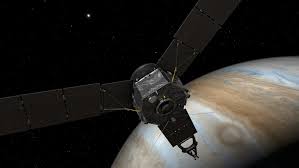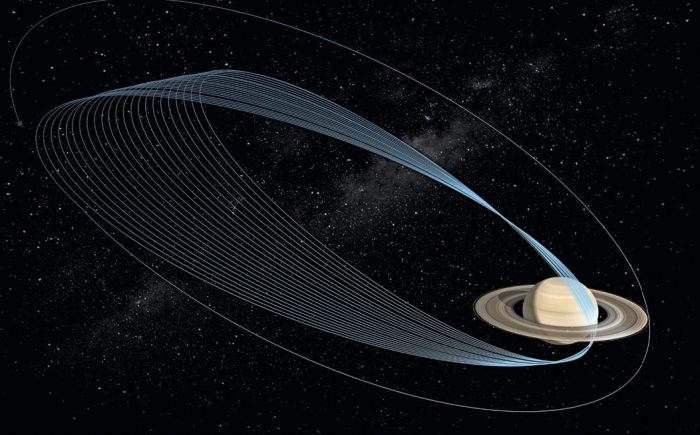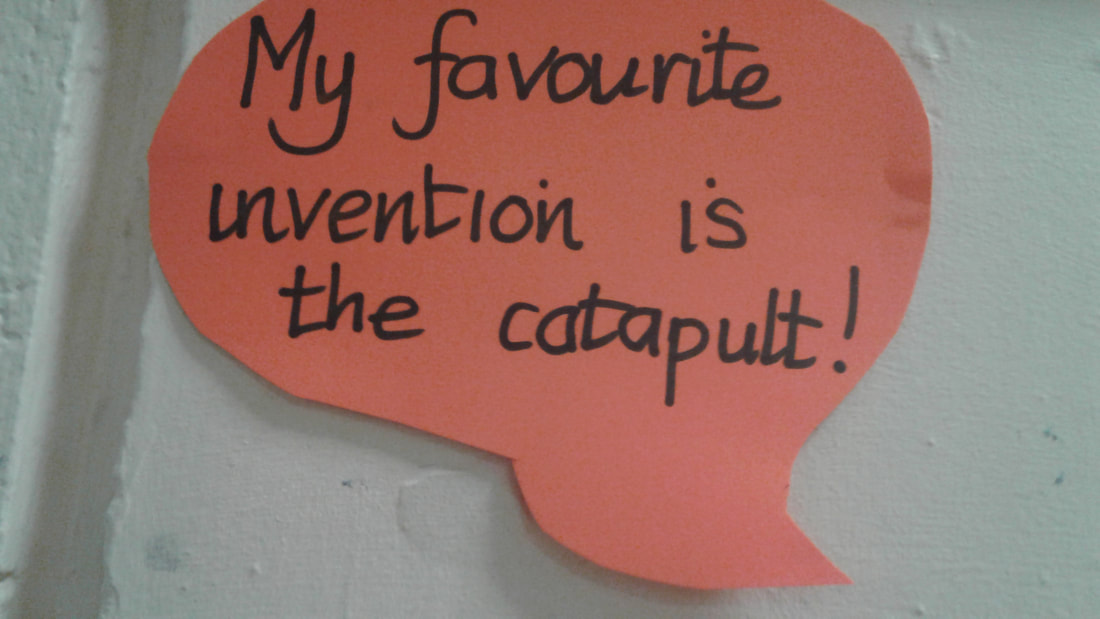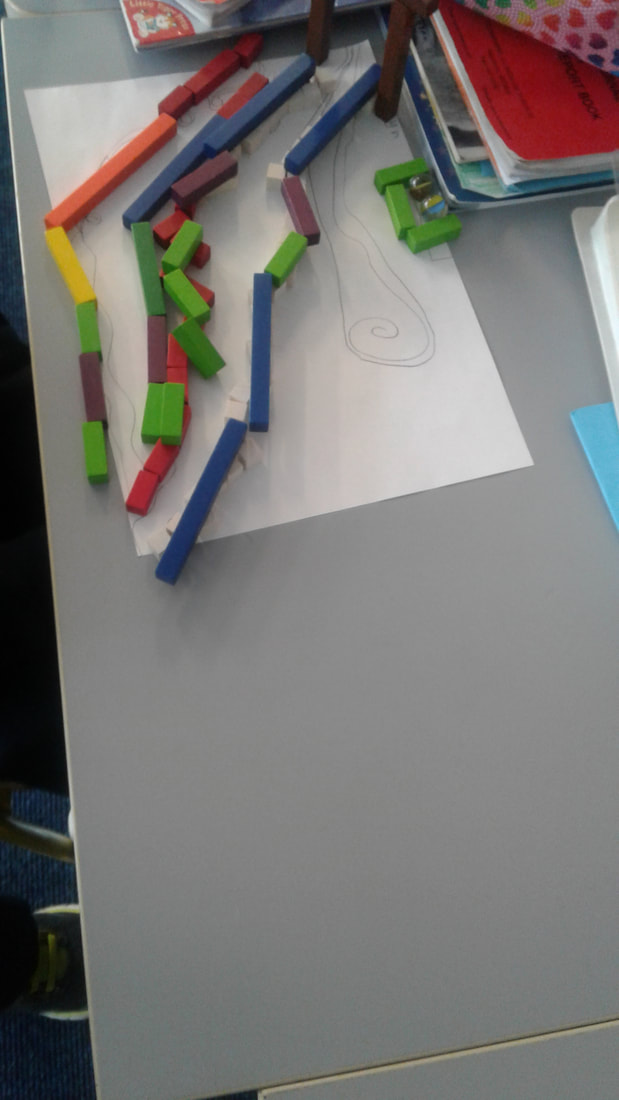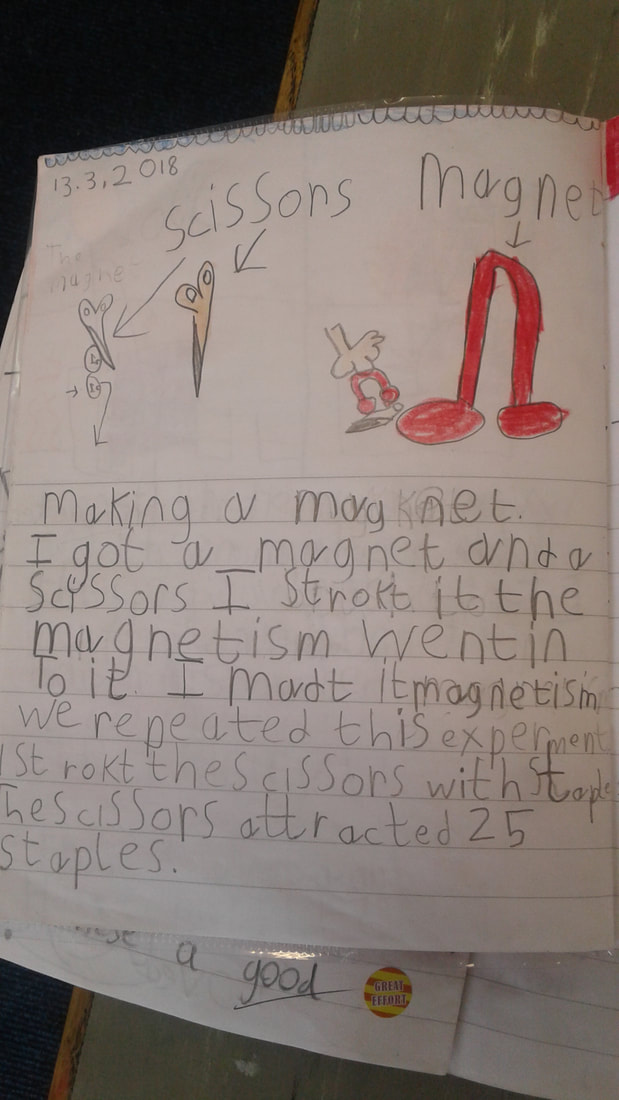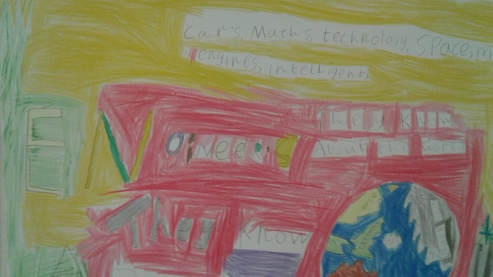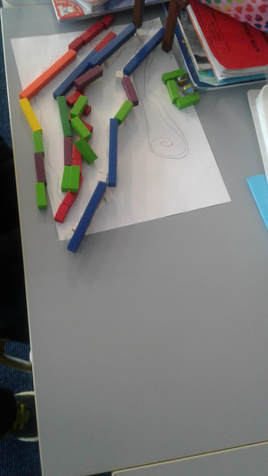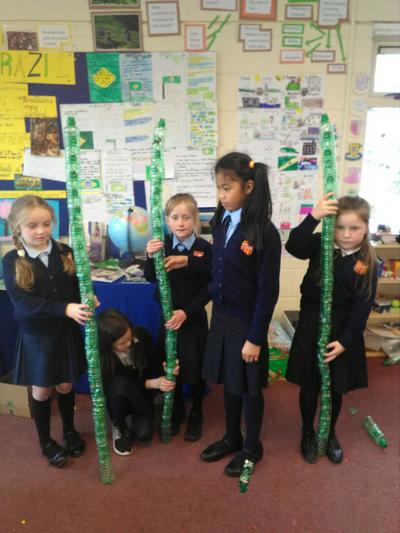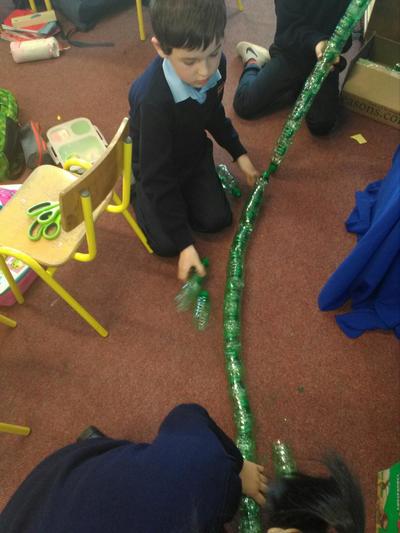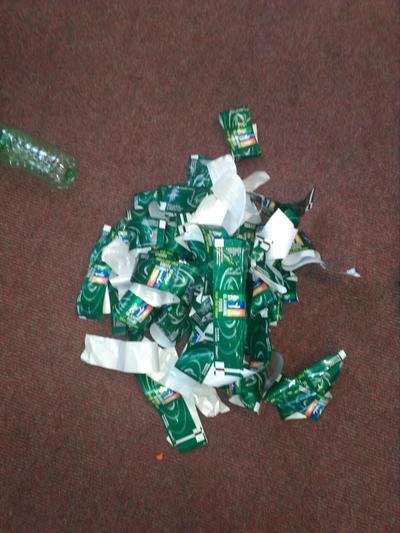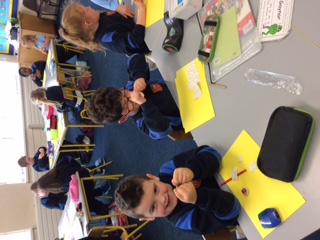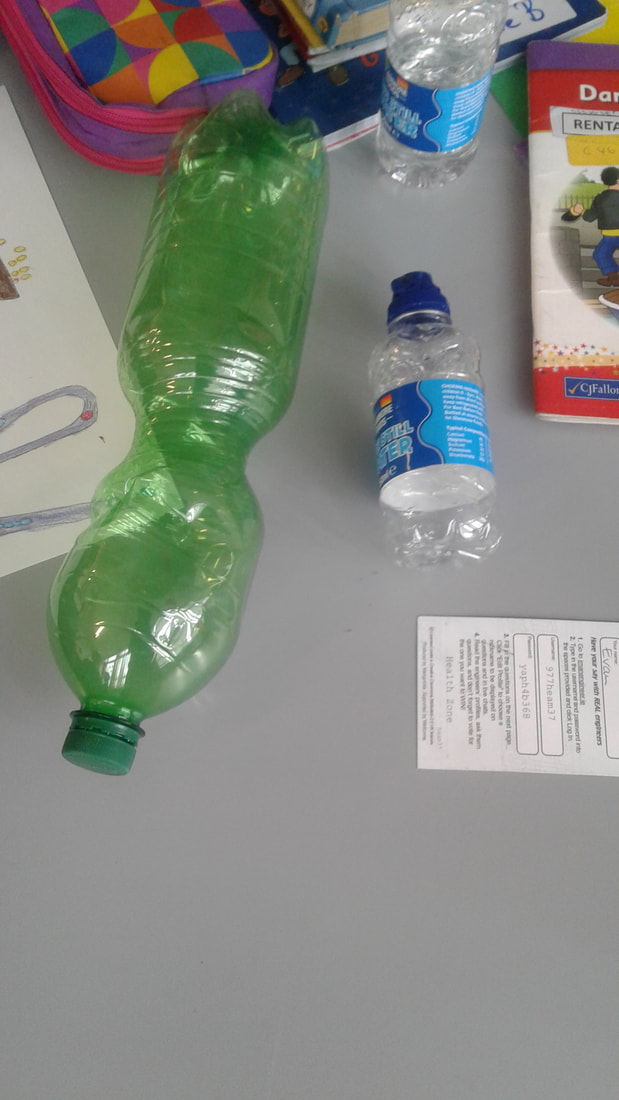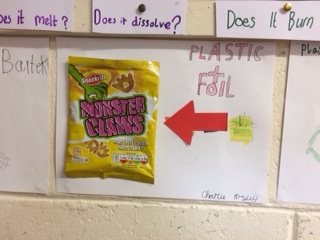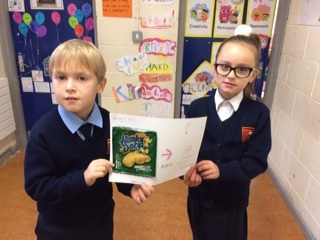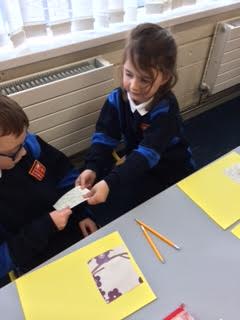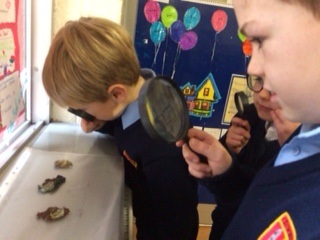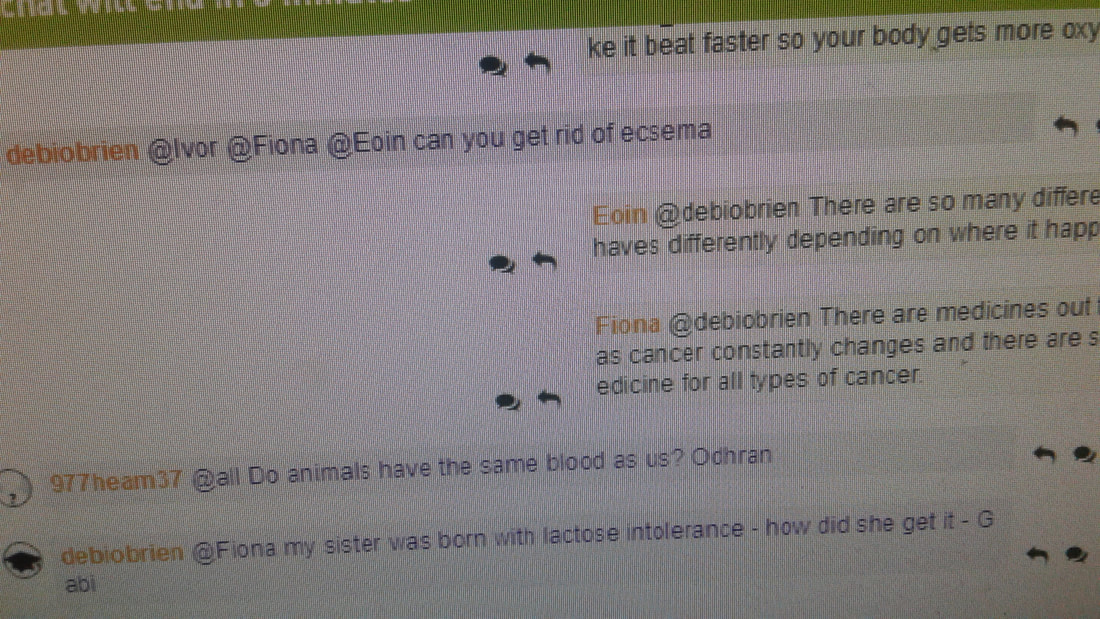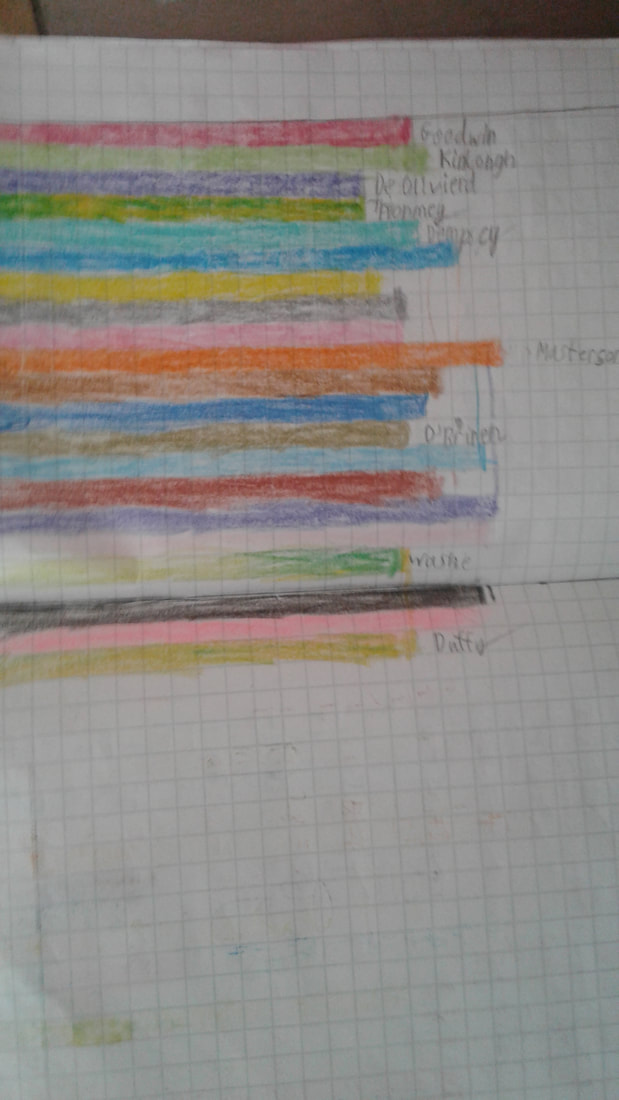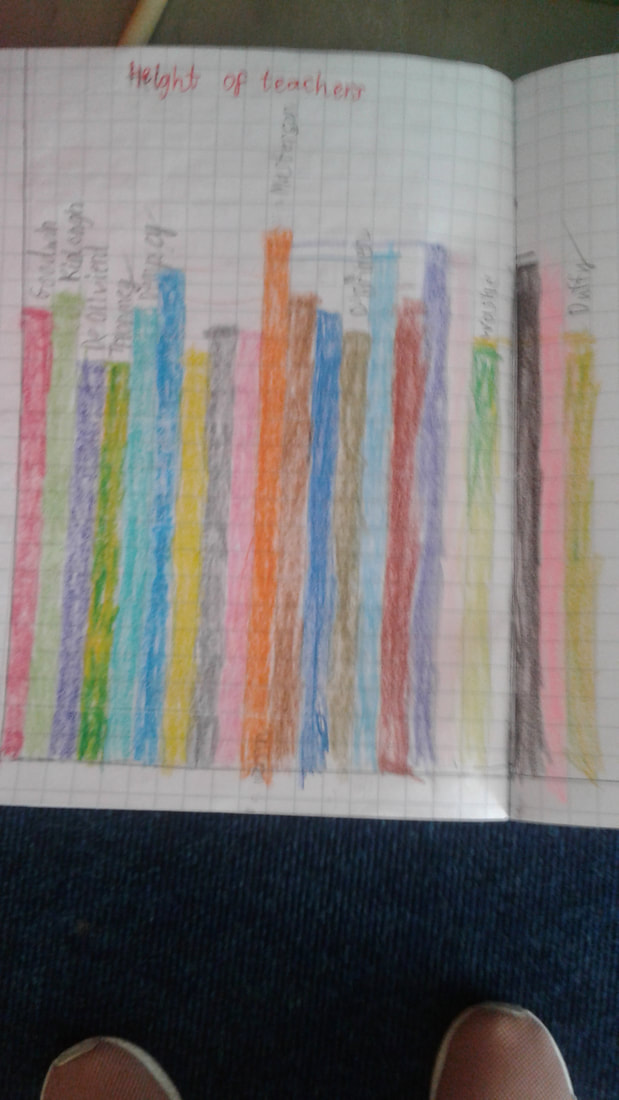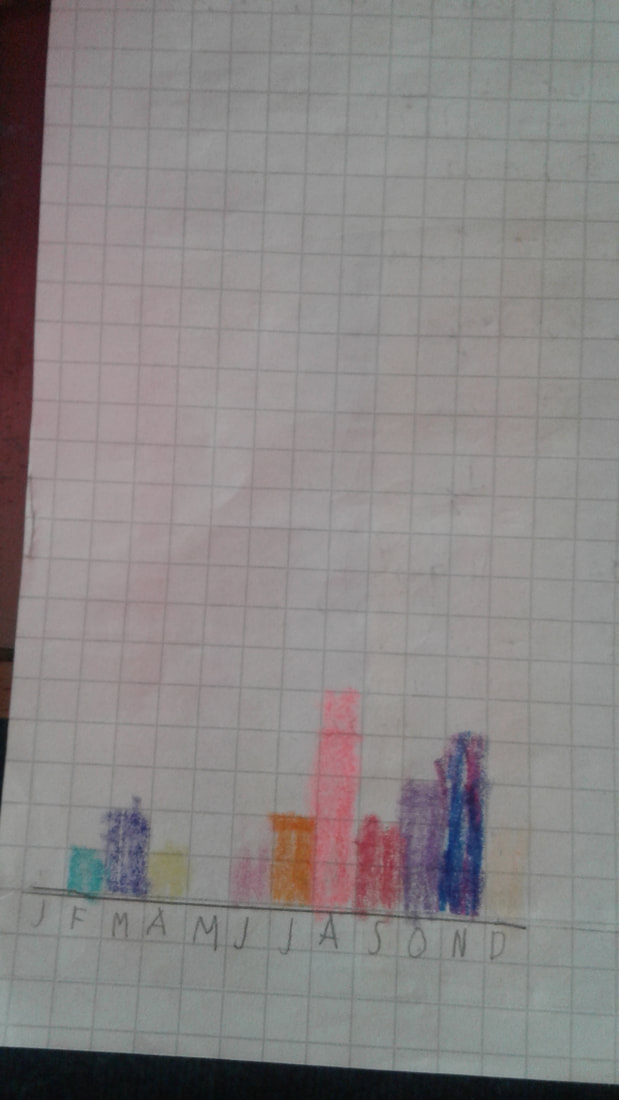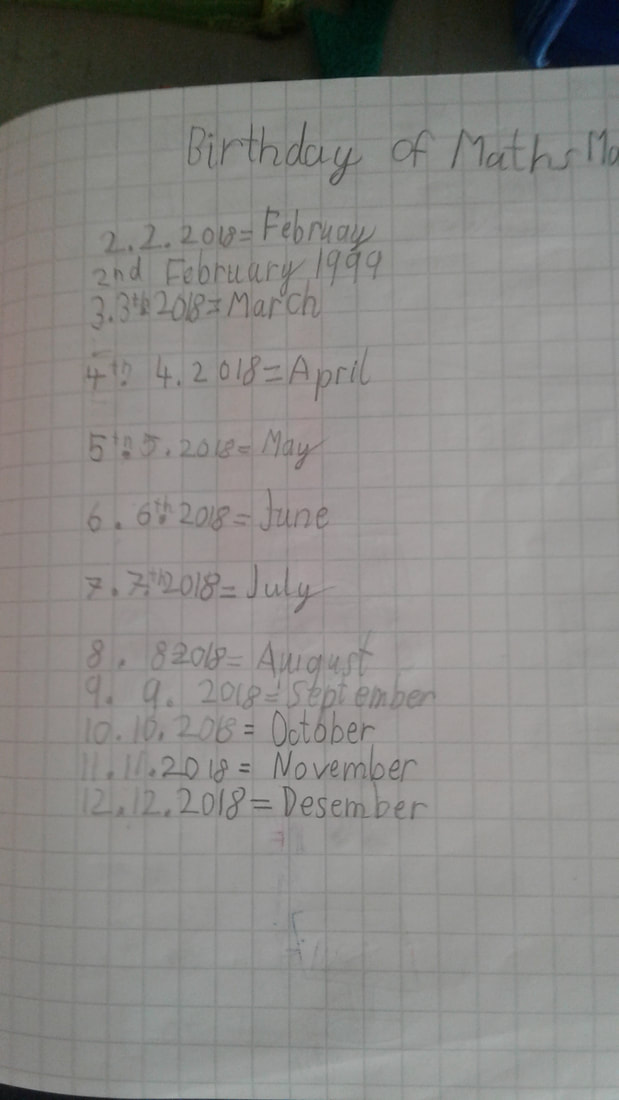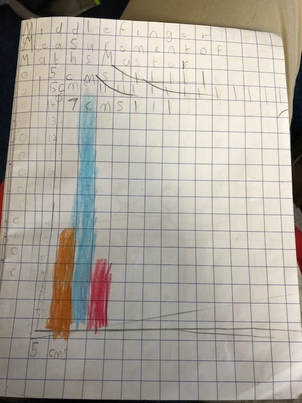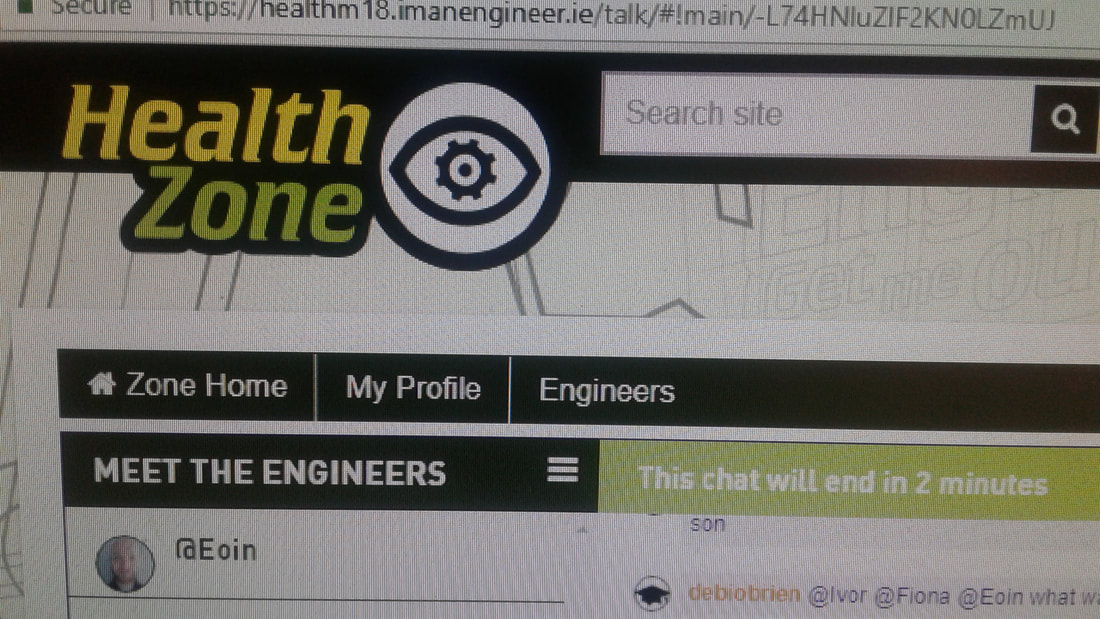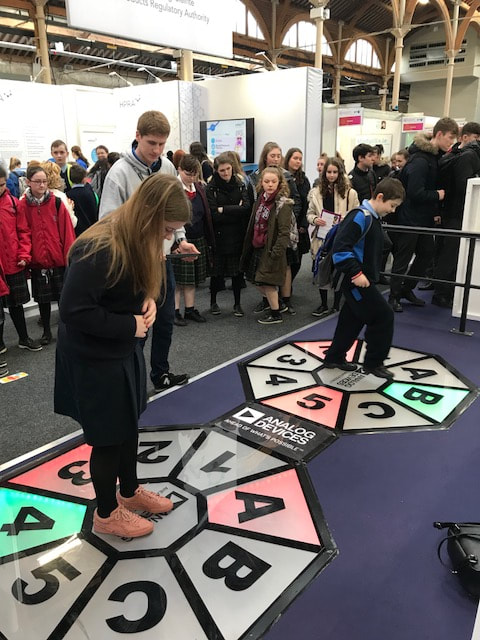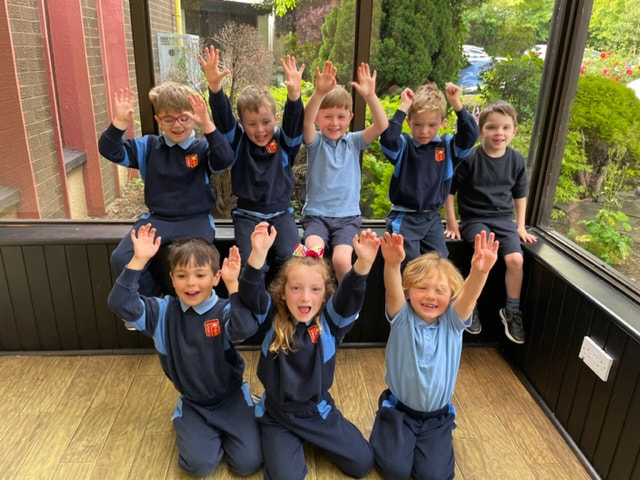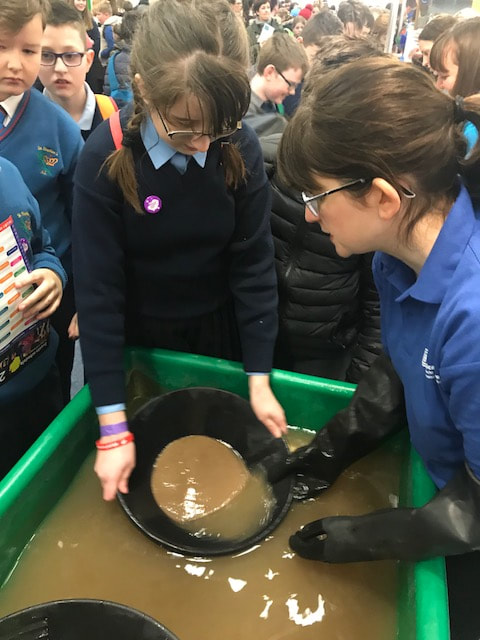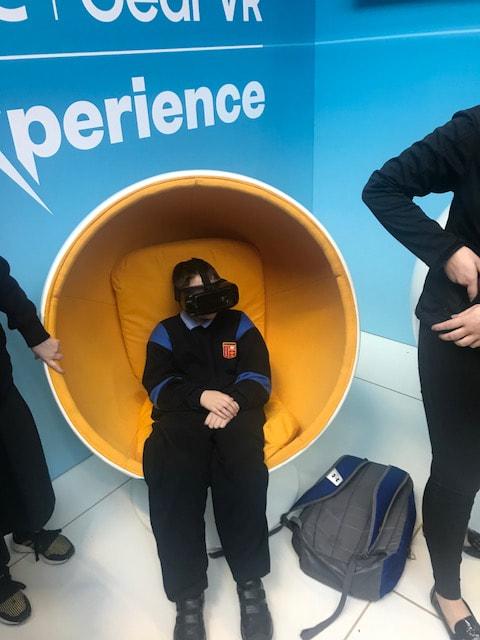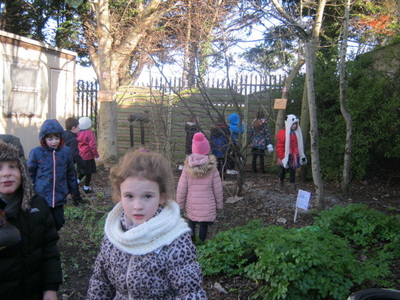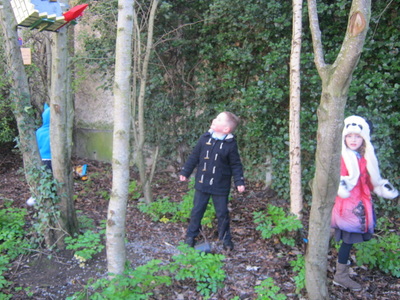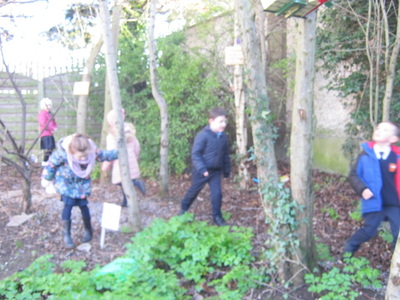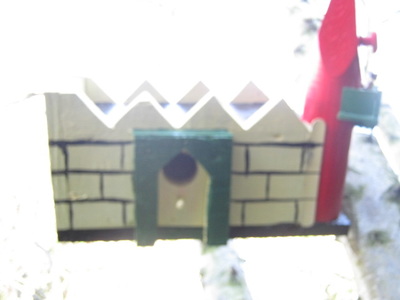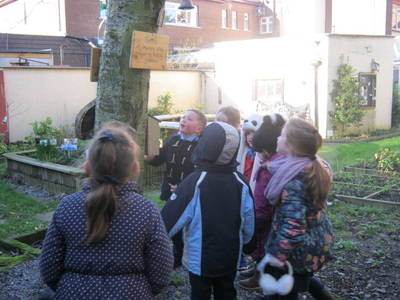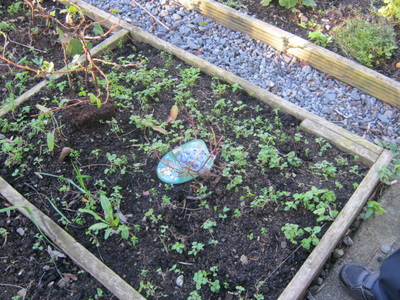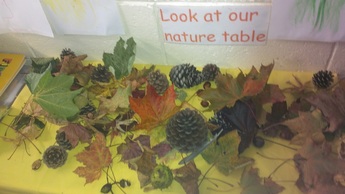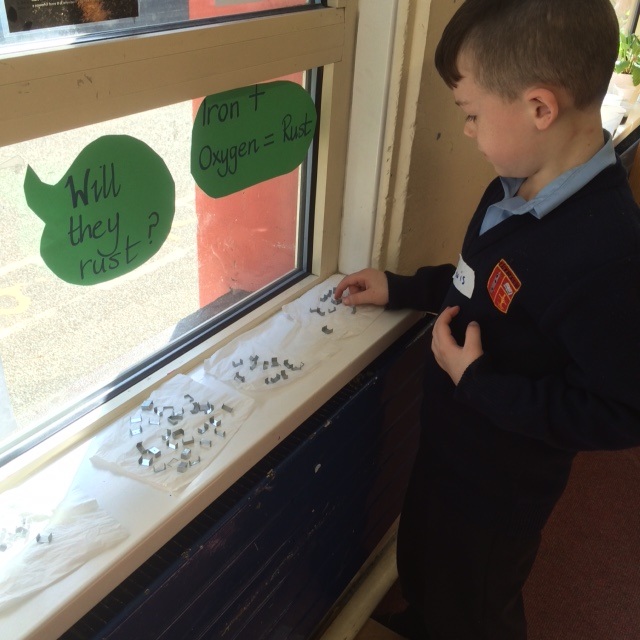Space Week 2023
This year in Clonburris we celebrated Space Week through experiments, projects,
art and music.
We had a fantastic time. Here are some pictures of our hard work!
art and music.
We had a fantastic time. Here are some pictures of our hard work!
Making eco-friendly cleaners.
Instead of using bleach or chemicals, we made our own cleaner from lemons, limes and bicarbonate of soda.
GLOBE Citizen Science.
We observed trees and recorded the stages of leaf growth.
Some questions for Earth Day....prizes will be awarded next Monday!
|
|
|
GLOBE PROJECT : How cool is your school?
|
For parents to comment
This year we have two entries for ESB Science Blast.
Sixth class are asking the question, "What do second class know about Climate Change?"They made books to explain climate change to second class.
and Fourth Class are asking, "Can we improve our flexibility, stamina and strength?"
The photograph below is unique to us at Clonburris. What planet does it show?
Space Week 3rd to the 10th October 2022
Here at Clonburris, we have lots of activities planned for this week, including quizzes, Art, poetry and creative writing as well as "Baking in Space". Keep an eye on the website for quizzes which you can do with your child.
Today we made models of Saturn using old CDs and tin foil to represent the metallic core.
The Science of Autumn.
Why do leaves fall off trees?
Why do leaves change colour?
Do nuts contain carbohydrate?
Why do they contain carbohydrate?
World Water Day 22nd March 2022
We are trying not to waste food ! Can you see what has been thrown into the bushes?
#Come together to make this planet better.
Fourth class children have worked very hard on submitting a project to Irish Aid Our World awards based on the theme of co-operating for a better world. We have written poems , in English and as Gaeilge on the wonders of the world and the importance of looking after it.
Next week the whole school will be engaged in a week of #Climate #Action
Is there symmetry in nature?
Separation methods.
What is being separated in the picture below?
Can tomatoes grow on Mars?
|
Growing vegetables on the International Space Station
|
|
|
|
Music for Spectacular Space Fortnight.
Listen to this music in the link below
https://www.youtube.com/watch?v=iYYRH4apXDo
Spectacular Space at Clonburris N.S October 4th - 18th October.
Quizzes, prizes, design and make , creative writing, poetry...join us and have fun learning about space!
Question 1 :Space week quiz.
Question 2
|
Investigating decomposition in fruit, October 2021
|
Question No 3 . You can do this after you watch the video below.
What is the red spot on Jupiter?
Is it
A lake?
A volcano?
A storm?
A crater?
Give your answers to your teacher with a picture of the red spot.
Make sure you write your name and your teacher`s name on your answer.
Jupiter`s Red Spot
Watch the following video
https://www.youtube.com/watch?v=BhNnKK_u350
Question 4
Question 5
|
Space week 2020.
Mr Ryan`s class made solar galaxies.
Chemical reactions.
When you mix two chemicals together, you get a chemical reaction. We mixed lemon juice with bicarbonate of soda. It fizzed!!!
We mixed vinegar with bicarbonate of soda. It fizzed even more!!
|
|
We mixed warm milk with vinegar. The milk separated into milk solids(caseins) and liquid. We strained it through a sieve to collect the solids.
|
Science investigations in Fourth Class.
Can you get dye from vegetables and flowers?
Can you get dye from conkers?
Marble run.
Do you have cardboard tubes, sellotape and marbles? That is all you need to make marble runs?
Send your pictures to [email protected]. There will be prizes for the best ones!!!
Good luck!!!
Everyday Science - try these ideas out at home!
Making tunnels.
|
Online lessons from the Reisdcovery Centre in Ballymun
From Monday 30th March, there will be online lessons here
http://www.rediscoverycentre.ie/rediscover-home-series/
Here is an easy quiz to try. You can submit your answers and there will be prizes for the winners. Good luck!!
An easy experiment to try at home. It shows how OSMOSIS works. You might need an adult to cut the potato for you.
Osmosis Description: Osmosis is the movement of liquid from one solution through a special membrane into a more concentrated solution. In living cells, chemicals needed for life move into and out of the cell membrane through osmosis. In this experiment, you will simulate the process of osmosis that occurs in the cells of living things.
You will need:
2 thinly sliced pieces of potato, about 1/4-inch (6 millimeters) thick
2 tall drinking glasses
2 cups water
1 teaspoon salt
Procedure: Pour equal amounts of water into each of the two drinking glasses. Fill the glasses almost to the top. Place one slice of potato into each glass so that the water completely covers the potato slice. Put one teaspoon of salt into one of the glasses. You should now have one glass containing a saltwater potato slice and one containing a freshwater potato slice. Wait about 15 minutes. Take the freshwater potato slice out of the water. How did the potato slice change? Did water flow into or out of the potato slice in freshwater? Take the saltwater potato slice out of the water and observe how it changed. Did water flow into or out of the potato slice in saltwater? How does this experiment relate to the process of osmosis?
A message from Mrs Galvin.
For those of you who are interested in revising your Science, there are some great games and videos about the following
Animals, plants, micro-organisms, life cycles, food chains and habitiats, humans and the environment, adaptation, inheritance and evolution.
Follow this link
https://www.bbc.co.uk/bitesize/subjects/z2pfb9q
We might have a quiz on Friday. Keep checking in here.
Stay safe
Wash your hands
Keep your distance
All the best
Mrs Galvin
Ms. O'Brien's 1st class making structures in class
|
|
|
Space Week 2019
What foods contain carbohydrate?
We tested foods with iodine to see if they contained carbohydrate. If they do, the iodine will react to stain the food black. The blacker the food, the more carbohydrate it contains.
Preserving food.
We asked the question ; Is salt a preservative?
We cut an apple into slices, put sticks through to suspend it and observe the water coming out of it. We sprinkled lots of salt on the slices of apples.
After five days, the apple slices had dried and had not turned brown so we concluded that salt has preserved them.
Making geodes.
|
Designing experiments to answer these questions
|
Science.Studying how clouds and precipitation develop in Mr Kelliher`s class.
Magnetism in Senior Infants.
|
Can you magnetise a scissors?
We stroked the scissors more than fifty times in the one direction. Then we tested it with paper clips. The paper clips were attracted to the scissors. Our experiment was successful!! |
Can you move iron filings?
We poured some iron filings on to a white page. Then we held a magnet under the table and the iron filings moved. We were delighted and said they were "dancing".
We poured some iron filings on to a white page. Then we held a magnet under the table and the iron filings moved. We were delighted and said they were "dancing".
Science.
Question: How can we increase the rate of growth in our plants?
We designed and made ` greenhouses` to catch the condensation and increase the rate of growth. We also placed tinfoil on the window to see would it reflect the sunlight .
Engineer's Week-Mr Masterson's Class
During Engineer's Week Mr Masterson's class looked at the structure of Newgrange and tried to recreate the engineering marvel that the Celts created around 5000 years ago. The class took a special interest in how the roof didn't collapse in when they didn't have machinery to carry large slabs of rock. They can tried to replicate what the Celts did, creating their own corbelled roofs.
TECHNOLOGY.
We spoke to engineers online twice during Engineers week. We also logged on at home and with our parents asked them lots of questions. We spoke to engineers and scientists in the Space Zone and in the health zone.
Engineers visit Clonburris
Mr. Masterson's 5th class enjoyed themselves when the engineers popped in on Friday 8th March.
Making a Playground.
We are designing and making swings, slides, seesaws and ziplines. We are also making geodesic domes using different materials.
Engineering week in Clonburris.
Four classes are speaking to engineers online as part of "I'm an engineer, get me out of here!!"
We ask them lots of questions and they are really quick with their answers. We are learning loads!!!
Engineering week 2019.
There will be lots of exciting activities happening in Clonburris during engineers week from making spaghetti bridges, cardboard armchairs and geodesic spheres to speaking to engineers on ` I`m an engineer, get me out of here`
SPACE WEEK AND DAVID BOWIE.
We learned the song 'Ground Control' and based some Art on it.
I'm a scientist, get me out of here!!!
For the second year running, we participated in this great initiative. We spoke to scientists about new materials and we learned so much. We also got to vote every day on who should go.
We have also voted on who we would like to be in next year`s
I`m a Scientist, get me out of here!! and I`m an engineer, get me out of here.
4th to 10th October 2018
Our question for Space week is " What is space?" All classes will be participating in quizzes, Art, writing, drama and music on this theme and of course we will be doing lots of "out of this world " experiments.
Watch this video of Tim Peake at the ISS.
https://www.youtube.com/watch?v=2RCD4WanF7M
How does water travel in plants?
We set up experiments to see how water travels through celery. To make it easier to see, we used food dye to colour the water.
Growing sunflowers!!
Will seeds grow better under our geodesic domes.
We set up experiments to see where they will grow best: on the windowsill or under the geodesic domes?
Step 4 : Maths
We designed and made geodesic domes. We calculated the number of sticks required and used our knowledge of 2-d and 3-d shapes to make our constructions. We measured the sticks and then multiplied them by the number used. It was difficult to do.
We are delighted to announce that we have achieved our Plaque of STEM excellence.
Here is some feedback :
Excellent work by all involved. Bringing STEM to the community through your work with Tidy Towns was heartening as was the obvious enthusiasm of the pupils. Congratulations, you have done Clonburris proud.
PRIMARY SCIENCE EXCELLENCE IN SCIENCE.
STEP 1: SCIENCE
Senior Infants: We enjoyed their walk to the school garden. We recorded what we saw, heard, smelled and felt. We also went on a hunt to find spring flowers. Listen to our poems about Spring!
Senior Infants did experiments to find out which materials stopped the ice from melting!
And here we are investigating which materials absorb water...
STEP 5: STEM SHOWCASE : THE R.D.S Primary Science Fair.
|
This was our first entry to the RDS Primary Science Fair. More details further down the page.
|
Feedback on our project:
|
Clonburris Meteorologists:
|
Other experiments at the R.D.S.
R.D.S PRIMARY SCIENCE FAIR.
We are delighted that we have been selected to demonstrate the work we have done on plastic usage.
PLASTIC DO WE NEED TO USE SO MUCH?
Ms Laningan's sixth class are leading the project but all classes will be involved.Infants made shakers to use during meditation using plastic bottles, glitter and food dye. First class made shakers using a variety of materials e.g beads, dried beans and lentils. We investigated sound using these.
Here are three videos we have been watching which show the damage plastic is doing to the environment .
https://www.youtube.com/watch?v=YFZS3Vh4lfI
www.youtube.com/watch?v=ju_2NuK5O-E
https://www.youtube.com/watch?v=73sGgmZoMBQ
Our theme for Science week is "Saving the ice"
Classes will be doing experiments on making ice, making ice from salt water, and investigation how long it takes to melt.
Can you stop ice melting?
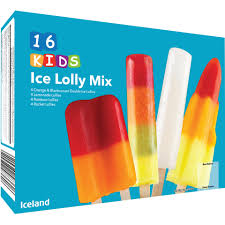
How long does it take an ice lolly to melt?
How would you stop it melting quickly?
What materials could you use?
How would you stop it melting quickly?
What materials could you use?
Ice Experiments during Science Week
Junior Infants busy with their experiments during Science Week
Ms. O'Brien's 3rd class were very busy in school during science week working on different ice experiments. It helped them understand about climate change and the ozone layer. It was really interesting.
|
|
|
Our work for Space Week.
Look at the lovely work we did in our classes. We learned a lot about our solar system and we had fun too!!!
Senior Infants: We had great week during Space Week. We even dressed up! We made the solar system using play dough.
Space Week Quiz Masters.
Great space knowledge!
Thank you to all! The Space quiz masters dressed up and asked Space questions of all the classes. Children learned so much and parents loved our displays in the hall. Well done everyone for your enthusiasm and all your hard work.
Space week 4th-10th October.
We are planning lots of activities for this week. "Astronauts " will visit classes with questions for all classes about space.
There will also be quizzes in the hall, some classes are making and testing rockets. Some classes are doing "Space" maths.
Here is a video you might like to watch
https://www.youtube.com/watch?v=Xyz0NpURbGY
Energy and forces .
Third class work on forces and upthrust!!!
They could feel the upthrust when trying to push a balloon underwater.....it's not as easy as it sounds! They then tried to float different plasticine shapes. After a bit of exploration they came up with their own designs for boats.
Which designs would hold the most passengers (marbles)? The record was nine marbles!
Which designs would hold the most passengers (marbles)? The record was nine marbles!
Junior Infants experiment with magnets.
First Class Investigation : Can you magnetise a scissors?
We stroked our big scissors more than 50 times with a large magnet to investigate whether we could magnetise it.
We tested the scissors with staples to see whether the scissors was now magnetic. It was.....
Here is how we recorded our findings in our Science copies.
Senior Infants: This is us experimenting ways to construct a building using big playing cards!
Second class design and make parachutes.
We selected our materials testing them for flexibility, strength and decided on how we would find out which was the best parachute.
We cut out card, plastic, pieces of wool.
We had to collaborate to decide hw and where to attach the wool.
We stood on our tables and dropped the parachutes.
We timed them from then to when they hit the floor.
(Step 4: we did graphs of the times)
We cut out card, plastic, pieces of wool.
We had to collaborate to decide hw and where to attach the wool.
We stood on our tables and dropped the parachutes.
We timed them from then to when they hit the floor.
(Step 4: we did graphs of the times)
Making a Greenhouse
Engineers week
Pfizer engineers came into First Class to make water fountains and to speak about the importance of water. We had a great time making fountains from a straw and listening to Ger and Maura speak about their careers. We made posters explaining the type of engineers there are in the world and who is our favourite scientists
Here are our answers Thomas Edison, Leonardo da Vinci Graham Alexander Bell. We also participated in " Im an Engineer, get me out of here" |
Making Bridges - Mr. Toomey's 2nd classEngineer's Week
|
Second class investigate what happens to plastic when heated.We put different types of crisp packets into the oven. They all shrank, but some remained the same shape.
STEP 2 TECHNOLOGYI`m an engineer, get me out of here
STEP 4: MATHS
First class
|
Nappy Experiment
Coding with Mr. Murray's 6th Class |
Garden Survey: The children of 2nd class explored the school garden and conducted a survey. The children worked in pairs and small groups and recording their findings using tally marks.
Second class design 3D shapes from 2D in preparation for designing and making bridges, towers and testing objects which will stack.
Step 2: Technology ; Recording our results in video
Mr Toomey's second class experiments on absorbency.
They tested a range of materials for absorbency. Here they are speaking about their results. They also tried to make an igloo!!
|
|
|
STEM SHOWCASE
Tidy Towns , Clondalkin came to help us during Spring Clean week to raise awareness of keeping our environment clean and tidy. Every class in the school collaborated to tidy and clean an area in the school.
First class had their work on magnetism published in "Eureka"
Well done to the super scientists. Now everyone can read about what we do!!!
We are very proud of ourselves. Read about our investigations on page 4.
Your browser does not support viewing this document. Click here to download the document.
The children from third class had work published in a publication called climate change. We had learned about how climate change is causing some animals to become extinct.
Your browser does not support viewing this document. Click here to download the document.
|
Your browser does not support viewing this document. Click here to download the document.
|
RDS-Children experimenting with all things Science!!
STEP 3
Engineer's Week in Clonburris
Engineers week second class
Making lighthouses in First Class
|
|
Using recyclable goods to make bird feeders for our garden
Some of our second class sketched and labelled bird feeders. They made a list of things they would need.
Everyone agreed that they should use recyclable goods, such as milk cartons, old pencils, bottles and string.
Everyone worked together, cutting and sticking, until the bird feeders were complete and
then they went to our school garden and hung the bird feeders on the trees.
It is important to leave out food for our feathered friends in the winter time!
Everyone agreed that they should use recyclable goods, such as milk cartons, old pencils, bottles and string.
Everyone worked together, cutting and sticking, until the bird feeders were complete and
then they went to our school garden and hung the bird feeders on the trees.
It is important to leave out food for our feathered friends in the winter time!
|
Investigating the growth of mould in various conditions.
Fizzing Raisins in 1st Class
|
Parachutes!
Dem bones, dem bones!
|
Acids and Alkalis
The Food Chain in 2nd class
|
STEP 1 SCIENCE
Recording signs of spring - Ms. Creed's Senior Infants |
Growing Hyacinths |
As part of the Junior Achievement programme, Naoise from Pfizer worked with one of our 6th classes. They looked at forensic science (chromatography), the heart and skeleton, renewable and non-renewable resources and made periscopes. Naoise talked about subject choices in secondary school which link with college courses and jobs.
Senior infants look for signs of winter
Investigating the strength of rocks.
Can you crush grains with two rocks?
We used a flat rock and a round rock to crush buckwheat seeds.
We investigated rocks to see if they contained smaller pieces or sediment.
We concluded that sand is pieces of rock crushed by the sea.
Making Play dough
